Coordinated JD/PhD Program
Harvard Law School and the Harvard Kenneth C. Griffin Graduate School of Arts and Sciences
The Coordinated JD/PhD Program is designed for students interested in completing interdisciplinary work at Harvard University and is founded on the belief that students’ legal studies and their arts and sciences graduate studies can be mutually enriched through this pursuit. Students completing the coordinated program receive a JD from Harvard Law School (HLS) and a PhD from the Harvard Kenneth C. Griffin Graduate School of Arts and Sciences (Harvard Griffin GSAS). It is expected that these students will be strong candidates for teaching posts at law schools and in arts and sciences programs, as well as for other positions in law and academia. Prospective students interested in the coordinated program may reach out to HLS J.D. Admissions and the Harvard Griffin GSAS Office of Admissions to learn more. Current and admitted students interested in the coordinated program are encouraged to contact April Pettit , in the Office of Academic Affairs at HLS for questions about the JD program, or Dan Volchok , Assistant Dean of Student Success at Harvard Griffin GSAS for questions about the PhD programs.
Prospective students must separately apply to and be admitted to both HLS and a Harvard Griffin GSAS PhD program in order to participate in the coordinated JD/PhD program.
- Students enrolled in HLS, but not yet admitted to Harvard Griffin GSAS, must apply to Harvard Griffin GSAS no later than the 2L year, meeting the Harvard Griffin GSAS application deadline for matriculation the following year.
- Students enrolled in Harvard Griffin GSAS, but not yet admitted to HLS, should apply to HLS no later than the G3 year, meeting the HLS application deadline for matriculation the following year.
- Please see below for details about participation in the coordinated program for Harvard Griffin GSAS students who apply and are admitted to HLS after the G3 year.
Once admitted to both schools, students must submit a proposed Plan of Study to the coordinated program no later than October 1 of the academic year following admission to both schools. Students should submit the Plan of Study to April Pettit in the Office of Academic Affairs at HLS.
Please note: Harvard Griffin GSAS students who apply to and are admitted to HLS after the G3 year at Harvard Griffin GSAS must then separately apply to the coordinated program. The application to the coordinated program should include (1) a statement detailing the way in which the student plans to integrate his or her legal studies with his or her graduate studies including how work done at HLS will inform the dissertation work and vice versa; and (2) a letter of support from the primary Harvard Griffin GSAS advisor; and (3) the Plan of Study.
The JD/PhD committee will review the applications to determine admission to the coordinated program.
Students will be registered in only one School during any given semester/term. Pursuant to ABA rules, students must complete all requirements for the JD degree within seven years of the date they first enroll in HLS ; they may graduate from HLS before completing the PhD. Students must have satisfactorily completed at least 16 half courses in their Harvard Griffin GSAS department to receive the PhD. Students in the coordinated program will have two primary faculty advisors, one at HLS and one at Harvard Griffin GSAS, who will jointly advise students.
Students will be expected to complete the first-year program, three upper-level fall or spring semesters, and two winter terms at HLS, for a total of five fall and spring semesters and three winter terms. In lieu of the sixth HLS semester generally required of JD students, students in the coordinated program may take a semester at Harvard Griffin GSAS, completing courses or dissertation work pre-approved by HLS, and equivalent to at least 10 HLS credits. This Harvard Griffin GSAS semester may be taken only after a student has matriculated at HLS and completed their entire first year of study there. Students and their faculty advisors will determine the most appropriate sequencing for each student’s course of study, keeping in mind the HLS course, credit, and residency requirements for this program.

Course and Credit Requirements
First-year program.
The first year at HLS consists of (1) Civil Procedure, Constitutional Law, Contracts, Criminal Law, Legislation and Regulation, Property, and Torts; (2) First-year Legal Research and Writing; (3) January Experiential Term; and (4) a spring upper-level elective at HLS of a minimum of 2 and a maximum of 4 classroom credits.
Upper-Level Years
Credit and residency requirements.
Students must earn no fewer than 52 credits beyond the first year, including 36 HLS classroom credits. Classroom credits include those connected to courses, seminars and reading groups, but not writing or clinical credits. The 36 required classroom credits also include the required minimum of two credits to satisfy the Professional Responsibility Requirement and credits from the required winter terms (provided that the course chosen offers classroom credits). Of the remaining 16 required HLS credits, a maximum of ten are earned through courses or tutorials taken in Harvard Griffin GSAS and/or for dissertation writing (see below). Note that students must have their advisor’s approval before engaging in a semester of Harvard Griffin GSAS dissertation writing that is expected to count toward the HLS credit requirements . The remaining six required HLS credits may be earned in classroom, writing or clinical courses.
While at HLS, students must be enrolled in a minimum of ten total credits each semester in HLS or Harvard Griffin GSAS, with no fewer than eight of these being HLS classroom credits toward the requirement of 36 HLS classroom credits.
Winter Term Requirement
Students also must enroll in the HLS winter term two times during their upper-level years in the program. Each of the winter terms must follow a fall term enrollment or precede a spring term enrollment at HLS. Students may register for a course of two or three credits. JD/PhD students will be permitted to spend one of the winter terms in the HLS Winter Writing Program, provided they are engaged in written work for HLS credit according to the rules of that program.
Written Work Requirement
JD/PhD students must complete the JD Written Work Requirement. Students are permitted to satisfy the requirement with a portion of their dissertation, provided this work meets HLS standards for written work. However, any portion of the dissertation counted toward the JD Written Work Requirement cannot also be used as part of the 10 HLS-equivalent credits earned during a student’s Harvard Griffin GSAS semester. Further information about the J.D. Written Work Requirement and the Winter Term Writing Program is available from the HLS Registrar’s Office .
Pro Bono Requirement
JD/PhD students must complete the HLS Pro Bono Requirement of 50 hours of public service.
Residency Requirement
A minimum of two years of full-time study in residence is required for all PhD programs in the Harvard Griffin GSAS. During the period of registration at HLS, coordinated JD/PhD students will have “study-at-another-Harvard-school” status in Harvard Griffin GSAS.
Structure of Academic Work
Students will ordinarily be enrolled for at least four years (8 terms) in Harvard Griffin GSAS. They must complete at least 16 half courses to receive their PhD. Students may cross-register for a limited number of Harvard Griffin GSAS courses during their upper-level terms at HLS. Depending on the Harvard Griffin GSAS department, these courses may count toward the PhD. However, JD/PhD students may count a maximum of 10 credits from Harvard Griffin GSAS coursework or dissertation writing toward the JD. Therefore, students planning to spend a semester enrolled at Harvard Griffin GSAS taking courses or writing the dissertation for which they will earn 10 HLS credits may not also count cross-registered Harvard Griffin GSAS courses toward the JD.
General Examinations
In most departments, once having completed the required coursework, students must pass a general examination or other preliminary or qualifying examinations before undertaking independent research on a dissertation. Normally, when the nature of the field and previous preparation permit, students should pass these examinations by the end of the second year of full-time academic residence.
PhD Dissertation
The student’s dissertation prospectus must be approved by the department. A student who wishes to present as a dissertation a published article, series of articles, book or other document, or a manuscript that has been accepted for publication, must have the approval of the department concerned. In no case, however, may a dissertation be presented that has already been submitted toward another degree, either at Harvard or elsewhere. The Dissertation Acceptance Certificate must be signed by at least three readers approved by the student’s department, two of whom must be members of the Faculty of Arts and Sciences (FAS). FAS emeriti (including research professors) and faculty members from other schools at Harvard who hold appointments on GSAS degree committees are authorized to sign the Dissertation Acceptance Certificates as FAS members. GSAS strongly recommends that the chair of the dissertation committee be a member of FAS. The third reader may be a member of the HLS faculty.
Requirement of Satisfactory Status
Continuous registration, a satisfactory grade record, and evidence that satisfactory progress is being made toward the degree are required of all candidates for graduate degrees offered by FAS. All students in Harvard Griffin GSAS must be making satisfactory progress in order to be eligible for any type of financial aid and teaching. The following five provisions are the general definition of satisfactory progress during registration in Harvard Griffin GSAS:
- During the first two years of graduate study any student who has completed expected requirements is considered to be making satisfactory progress.
- In each of the first two years, a student must have achieved the minimum grade-point average required by the faculty, a B average. (see Harvard Griffin GSAS Policies: Grade and Examination Requirements ).
- By the end of the third year, a student must have passed general examinations or the departmental equivalent.
- By the end of the fourth year, a student must have obtained approval of a dissertation prospectus or its departmental equivalent.
- By the end of the fifth year and each subsequent year during which a student is allowed to register, they must have produced at least one acceptable chapter of the dissertation.
For more information about satisfactory progress, please see Harvard Griffin GSAS Policies .
Other Requirements
Ordinarily, programs will have a language requirement and an expectation of teaching. Students should consult with their Harvard Griffin GSAS departments for more information about these requirements.
There are a number of possible academic schedules for students pursuing both degrees. Three sequences are outlined below, but students may propose alternative sequences. In considering their courses of study, students should be aware that their financial aid packages might be affected at the school in which they defer enrollment.
Year 1: HLS Year 2: Harvard Griffin GSAS Year 3: Harvard Griffin GSAS Year 4: HLS Year 5: 1st term, HLS Year 5: 2nd term, Harvard Griffin GSAS (earning the equivalent of 10 HLS credits in dissertation work) Following year(s): Harvard Griffin GSAS until completion of dissertation
Year 1: Harvard Griffin GSAS Year 2: Harvard Griffin GSAS Year 3: HLS Year 4: Harvard Griffin GSAS Year 5: HLS Year 6: 1st term, HLS Year 6: 2nd term, Harvard Griffin GSAS (earning the equivalent of 10 HLS credits in dissertation work) Following year(s): Harvard Griffin GSAS until completion of dissertation
Year 1: HLS Year 2: HLS Year 3: Harvard Griffin GSAS Year 4: Harvard Griffin GSAS Year 5: 1st term, HLS Year 5: 2nd term, Harvard Griffin GSAS (earning the equivalent of 10 HLS credits in dissertation work) Following year(s): Harvard Griffin GSAS until completion of dissertation
Updated Plans of Study
By October 1 each year, current JD/PhD students should submit an updated Plan of Study to April Pettit, in the HLS Office of Academic Affairs.
Other Academic Information
Faculty advising.
Students in the program will have primary faculty advisors at both HLS and at Harvard Griffin GSAS. If possible, HLS faculty advisors should be selected before the completion of the 2L year. The HLS faculty advisor must sign off on any dissertation writing a student expects to use for JD credit. In some Harvard Griffin GSAS departments, the director of graduate studies serves as the faculty advisor during the first two years of study. Faculty advisors will supervise students’ academic work, advise students on their courses of study and on specific classes appropriate for their PhD work, and approve the courses of study for their students on an annual basis. If appropriate, the HLS advisor will be the third reader on the student’s dissertation committee, with at least two readers required to be members of FAS.
Leaving the JD/PhD Program
If a student fails to make adequate progress toward the PhD, the student’s faculty advisors will be permitted to withdraw the student from the program. In such cases, in order to receive the JD degree, a student will still need to meet the graduation and credit requirements for the JD degree.
Tuition and Financial Aid
Harvard law school.
Students must pay five semesters of full tuition. Students will be eligible for HLS financial aid for all semesters during which they pay tuition to HLS. For more information on Financial Aid, visit the Student Financial Services Financial Aid webpage .
Harvard Kenneth C. Griffin Graduate School of Arts and Sciences
The minimum financial requirement for the PhD is at least four terms of full tuition followed by two years of reduced tuition and a facilities fee unless the degree is completed in less than four years. The financial aid awarded upon admission to the PhD program is available during those terms in which the student is enrolled in Harvard Griffin GSAS. Students should refer to their notice of financial support provided by their department upon admission to Harvard Griffin GSAS. Students should consult with their GSAS departments for more information.
Administrative Information
The HLS Registrar’s Office, the FAS Registrar’s Office, the GSAS Assistant Dean of Student Success, the HLS Associate Director of Academic Affairs, and the appropriate financial aid officers, will coordinate on students’ registration status and updated plans of study.
Housing and Student Life
GSAS and HLS will work together to ensure that the student services offered by both Schools are available to JD/PhD students during all their years in the Coordinated Program, including career and counseling offices, financial aid offices, student centers, and alumni offices. Students in the coordinated program will have email accounts at both schools throughout the program. Disability services and visa requirements will be coordinated on a case-by-case basis by the HLS Dean of Students and Registrar and by the Harvard Griffin GSAS Assistant Dean for Student Success. Students may apply for housing through either School for the years in which they are enrolled for at least one semester/term at both Schools. In all other years, students must apply for housing to the School in which they are enrolled.
Modal Gallery
Gallery block modal gallery.
- English Language Programs
- Postdoctoral Affairs
- Training Grant Support
- Request Information
THE GRADUATE SCHOOL
- Academic Programs
- Explore Programs
JD/PhD Combined Degree Program
- Degree Requirements
Learn more about the program by visiting the Northwestern's JD-PhD program
See related Interdisciplinary Clusters and Certificates
Degree Types: JD/PhD
Northwestern’s Graduate School and School of Law offer an integrated JD and PhD program for students interested in pursuing a career in academia or another research setting (e.g., a policy research organization) and whose teaching and research will be enriched by both the JD and PhD degrees. The JD/PhD Combined Degree Program prepares students to conduct innovative research on law at the cross section of disciplines. Recognizing that a growing trend among top law schools is to hire faculty who have PhDs as well as law degrees, Northwestern offers the most efficient, cohesive, and affordable option for future academics wishing to pursue their doctoral and law degrees simultaneously.
The program’s curriculum allows students to complete both degrees more efficiently than they would through consecutive degree programs. Students can complete the entire program (including dissertation) in as few as six years, depending on the requirements of the particular PhD program.
Students can select a doctoral program in any discipline, provided they can incorporate their interest in law with their graduate research and they can complete a dissertation that draws on both disciplines.
Application to the JD/PhD program requires acceptance into both The Graduate School and the Law School.
Additional resources:
- Department website
- Program handbook(s)
Program Statistics
Visit PhD Program Statistics for statistics such as program admissions, enrollment, student demographics and more.
Program Co-Director: Kyle Rozema Program Co-Director: Nadav Shoked
Program Overview
Northwestern's JD-PhD program is open to students who intend to pursue an academic or research career and whose teaching and research will be enriched by both degrees. The program is designed to allow students to complete both degrees more effectively than they would through consecutive degree programs.
Graduation Requirements
The JD and PhD degrees are awarded concurrently after all degree requirements are satisfied for both programs, including completion of:
- Two years of Law School credit (at least 59 credit hours) in addition to the 14 credit hours awarded for law-related interdisciplinary graduate course work,
- All Law School JD requirements (apart from course hours), and
- 12 credit hours will be awarded toward the JD upon completion of the dissertation
- JD-PhD students are required to have a member of the Northwestern Law faculty on their dissertation committee.
Typical Program Structure 1
Subject to PhD departmental requirements.
Last Updated: September 12, 2023
Support NYU Law
- JD Admissions
- Dual Degree Programs
JD/PhD and JD/MA Programs
New York University School of Law (Law) and Graduate School of Arts and Science (GSAS) offer coordinated dual degree programs leading to a Juris Doctor (JD) and either a PhD or MA degree in two Arts and Science disciplines:
Law and GSAS also offer dual degree programs leading to a JD and MA in the following disciplines:
- French Studies
- Latin American and Caribbean Studies
Law and GSAS also offer dual degree programs leading to a JD and PhD in the following disciplines:
- American Studies
- Comparative Literature
- Computer Science
- Hebrew and Judaic Studies
- Italian Studies
- Mathematics
- Middle Eastern and Islamic Studies
- Neural Science
- Psychology (Cognition and Perception)
Students enrolled in these dual degree programs will work closely with faculty advisors in both the School of Law and GSAS to develop an integrated program of study and research. The programs are particularly aimed at students interested in pursuing academic careers. We expect that students who complete the JD/PhD program will be strong candidates for faculty positions in both law schools and in arts and sciences programs. The JD/MA programs provide rigorous interdisciplinary training for students interested in legal academia, but also for students who plan to pursue other career paths related to law.
These coordinated programs reduce the amount of time required to complete both degrees. The School of Law will count 12 credits of GSAS coursework toward the total of 83 credits required for the JD degree, typically allowing dual degree students to complete their JD coursework in five semesters rather than the usual six. All coursework must be approved by the respective program to count towards the dual degree program. Likewise, some law school coursework will count toward the PhD and MA program requirements, allowing students to accelerate the completion of those degrees. For students in the JD/MA program, both degrees are typically conferred at the end of four years (eight semesters) rather than the usual five years to complete both degrees separately. For students in the JD/PhD program, the JD is typically conferred at the end of the fourth year, while the student continues to complete the PhD requirements.
Prospective dual degree students must apply independently to both the School of Law and GSAS and be admitted to both. Current law students or GSAS doctoral students may apply to enter a dual degree program during their first year. Students looking to start the JD/PhD program at GSAS should inquire with the School of Law about the program sequence. Please refer to the GSAS website for information regarding funding for PhD candidates.
Students interested in a dual degree program are encouraged to contact Amy Chu, Senior Director of Academic Services and Registration at the School of Law ( [email protected] or 212-998-6020) or Tania Barnes at GSAS ( [email protected] ) for more information.
© 2024 New York University School of Law. 40 Washington Sq. South, New York, NY 10012. Tel. (212) 998-6100
Academics & Clinical
Student Life
Faculty & Research
Campus Services

- Admissions Policy
- Our Interview Program
- Check Status
- Tuition and Financial Aid
- Consumer Information (ABA Required Disclosures)
- Class Profiles
- Recruitment Events
- Experiencing Northwestern Law
- Fast Facts for Prospective Students

- Degree Programs
- Curricular Offerings
- Bluhm Legal Clinic
- Public Interest Center
- Donald Pritzker Entrepreneurship Law Center
- Global Opportunities
- Continuing Legal Education
- Registration and Records
- Academic Calendar

- Student Services
- Student Organizations
- Sponsorship Opportunities
- Career Strategy Center

- Faculty Profiles
- Law Library
- Faculty Publications
- Conferences, Colloquia, and Workshops
- Center on Law, Business, and Economics
- Center for Racial and Disability Justice
- Gender Equity Initiative
- Policies and Recruitment

- Information Technology
- Facilities and AV Support
- Contacts and Directories

- Marketing and Communications
- Visit Campus

- About the Office of Diversity, Equity & Inclusion
- Scholarships and Opportunities
- Reporting Concerns
- News and Events
- Land Acknowledgment
- Policy on Discrimination, Harassment, and Sexual Misconduct

Northwestern's JD-PhD program is open to students who intend to pursue an academic or research career and whose teaching and research will be enriched by both degrees. The program is designed to allow students to complete both degrees more effectively than they would through consecutive degree programs. Students are able to complete the entire program, including dissertation, in as few as six years.
Northwestern JD-PhD graduates have obtained faculty positions in law and graduate schools as well as prestigious judicial clerkships.
Advantages of Northwestern's JD-PhD Program
The most integrated program of its kind.
The program offers a coherent course of study on a set track that integrates the rigorous terrains of doctoral and law studies. Faculty members from each of the schools jointly supervise students' research and dissertations.
An Accelerated Course of Study
Students can complete the entire program in as few as six years (varies by department). All students can earn both degrees more quickly than they would through consecutive degree programs. JD-PhD students spend the first two years doing graduate-level course work in various disciplines through The Graduate School, the following two years at the Law School, and the final years completing their dissertations.
A Strong Community
Students from various doctoral programs are treated as a cohort, so they have a community of peers in law, in their disciplines, and among those seeking the combined degree. Both law and graduate school faculty are involved at every step to support students' progress in the program and to ensure that each student progresses consistently.
An Important Qualification
There is a growing trend among top law schools to hire faculty who have PhDs as well as law degrees. Northwestern's JD-PhD program presents the most efficient option to obtain these credentials.
Outstanding Faculty
Interdisciplinary study is a hallmark of Northwestern and the Law School has a higher percentage of PhD-trained scholars than any top law school in the country.
The Most Generous Funding in the Country
Northwestern offers the most financially generous JD-PhD program in the country, typically providing full funding—including tuition and living expenses—for seven academic years and six summers.
Related Links
The Graduate School | Law School Course Catalog | JD-PhD Brochure (pdf)
What is the difference between a Juris Doctor and a PhD in law?
A Juris Doctor degree is technically a professional doctorate. But unlike other Ph. D. holders, lawyers don't hold the title of “Doctor.” Instead, they can choose to use the title “esquire,” which is shortened to “Esq.” and is fashioned after the lawyer's name.
Is a JD or PhD higher?
What is the phd equivalent in law.
A Juris Doctor, a Doctor of Jurisprudence, or a Doctor of Law (abbreviated JD) is a graduate-entry professional degree in law. The JD is the standard degree obtained to practice law in the United States; unlike in some other jurisdictions, there is no undergraduate degree to practice in the United States.
Is it easier to get a PhD or a JD?
In a PhD program, coursework is the easiest part , and the exams, while challenging, aren't a big deal; the real work is your research, where you are required to do something others haven't done. By comparison, for a JD, the coursework and the bar exam are the hard parts.
What is higher than a Juris Doctor?
Doctor of Juridical Science (SJD) A Doctor of Juridical Science degree is considered the highest level of a law degree and is designed for professionals who are looking to gain an advanced legal education after earning their JD and LLM.
Juris Doctor
What are the 4 main types of law?
When researching the law, it is important to remember the four main types of law: constitutional, statutory, administrative and case (common) law .
How do you put a JD after your name?
Use abbreviations without periods—such as AB, BA, MA, MS, MBA, JD, LLB, LLM, DPhil, and PhD—when the preferred form is cumbersome. Use the word degree after the abbreviation . Example: Louise has a JD degree from California Western School of Law. On occasion it may also be appropriate to use formal names of degrees.
How long is PhD after JD?
JD/PhD students spend the first two years doing graduate-level course work in a doctoral program at the Graduate School, the following two years at the Law School, with the option of up to 8 additional hours of class during the next year, and the final years conducting research and completing their dissertations.
Is it better to get a master's or JD?
Ultimately, the main question to keep in mind when choosing whether an M.A. in Law or a J.D degree would be right for you is what your professional goals are. If you are interested in becoming a lawyer, working in the law field with clients and in courtrooms, a J.D. program is likely to be the best path for you.
Is a JD degree useful?
There are many jobs you can do with a law degree and legal-related roles where having a J.D. may be an asset . Whether you're an arbitrator, law clerk, paralegal, banker, research fellow, or law librarian, there are multiple ways you can apply the skills you've gained in law school.
What is a lawyer with a PhD called?
The Doctor of Jurisprudence (Juris Doctor or J.D.) is the professional doctorate degree that is usually required for admissions to post-graduate studies in law.
Why aren t lawyers called dr?
The ABA committee also stated: “Until the time comes when the JD degree is the universal degree for the initial study of law (as the MD degree is in medicine) we can see no reason to permit the professional use of this degree, so as to distinguish its holder as compared with others who hold a different degree.”
How long does a PhD in law take?
The PhD in Law may be awarded after three to four years of full-time study or five to seven years of part-time study (including a probationary period) of supervised independent research on the basis of a thesis not exceeding 100,000 words exclusive of bibliography, table of contents and any other preliminary matter.
Is JD PhD paid for?
JD-PhD Funding Structure Students admitted to the JD-PhD program are typically granted full funding (including tuition and all living expenses) for six academic years and five summers .
Is a JD harder than a Masters?
Yes. A J.D. (Juris Doctor) takes longer to get. Your typical Master's takes one to two yours, a J.D. takes three years. However, a J.D. is not research-oriented as it is a professional degree.
Does law school give you a PhD?
The Ph. D. in Law prepares graduates for global leadership in the judiciary, academia, business and government. Since 1966, the program has offered a select number of diverse students the opportunity to attain their highest professional aspirations and career goals.
Why an MBA is better than a JD?
MBA vs. JD and MBA degrees offer various career paths. A JD is typically for people who want to become practicing attorneys, though there are other options. Some law school graduates clerk for judges or teach. An MBA helps prepare you to take on a leadership role in business .
What do the initials LLM stand for?
LLM stands for Master of Laws , and it is an advanced law certification for lawyers that is recognized globally. Attorneys typically pursue an LLM degree to further specialize their work in certain types of law or law-related topics, including tax law, human rights law, international law, or dispute resolution.
Is an MBA worth it if you have a JD?
If both apply to you, then a JD/MBA is a good idea . If you don't want to practice law, then I'd recommend avoiding the JD. The direct cost and opportunity cost of 2 years of post-MBA salary is extremely high, so it only makes sense if it's really a perfect fit for what you want to do.
Which PhD in law is best?
- PhD in Legal Studies.
- PhD in Jurisprudence.
- PhD in Administrative Law Studies.
- PhD in International Law Studies.
- PhD in Criminal Justice.
- PhD in Criminal Law Studies.
- PhD in Dispute Resolution Studies.
- PhD in National Law Studies.
Is a PhD in law useful?
You can use that credential to work as a legal research scholar or teach at a post-secondary level . This is not only a prestigious career path but also a lucrative one — today's law PhD holders have an average salary of $93,000.
What do you do with a PhD in law?
The Ph. D. in Law degree program is designed to prepare J.D. graduates for careers as legal scholars and teachers through a doctoral program aimed at the production of a substantial body of academic research and writing under the close supervision of a three-member faculty dissertation committee.
Does having a JD make you a lawyer?
A Juris Doctor (JD) degree is a professional degree required to practice law. A Juris Doctor (JD) degree is the professional degree necessary to become a lawyer . A JD degree is a terminal degree—or the highest level of degree you can achieve in a given discipline.
Is JD an Esquire?
J.D. stands for Juris Doctor, and signifies that someone has completed law school and earned their J.D. degree. Esq. stands for Esquire and this title typically signifies that someone has both completed law school and passed the bar exam.
Do attorneys use JD after their names?
Everyone who graduates from law school is a JD, but they will not use the title Dr or refer to themselves as JD . This is why it is not as well-known as Esq. A JD may not be qualified to practice law, as they will become a JD before they take the bar exam. However, you do not need a JD to take the bar exam.
Share this page
Interested individuals apply for the PhD through Harvard Griffin GSAS and for the JD through Harvard Law School.
APPLICATION DEADLINE
Questions about the program.

Law and Psychology
Jd/phd — law and psychology.
There are nearly as many intersections between law and psychology as there are areas of policy regulation. Conflict resolution and negotiation; judgment and decision-making capacity; prejudice and stereotyping; criminal responsibility; competency; assessment of evidence, including the reliability of eyewitnesses, and lie detection; hedonics; developmental psychology and educational policy; addiction and drug policy—these are just a few of the frontiers open to scholars and practitioners educated in both law and psychology.
Stanford has a rich tradition of collaboration between its psychology department and law school, with faculty members co-authoring publications, and students working together and enrolling in interdisciplinary programs. Stanford’s psychology department has long been considered the strongest in the nation, with an atypical breadth of scholarly strength that supports a wide range of student interests. Stanford is also one of the nation’s leading centers for neuroscience research , bringing together biologists, psychologists, social scientists, and policymaker-lawyers to deepen our understanding of the brain.
Students pursuing a JD/PhD in law and psychology generally go on to academic careers in law schools, psychology departments, policy jobs, and think tanks. However, issues pursued through this joint degree program are also highly relevant to legal practice. Every day, litigators and negotiators make strategic decisions based on accounts of human decision-making. Those who regulate markets make decisions based on accounts of how people process distinct sorts of information. Those who work with medical ethicists make judgments that depend on assumptions about competency or the nature of pain.
Special Requirements
Students must have completed a year of law school before entering the psychology department or have completed a year of psychology graduate school before applying to the law school.
Course Requirements
As many as 54 quarter units of approved courses may be counted toward both degrees. No more than 31 quarter units of approved courses that originate outside the law school may count toward the law degree.
The maximum number of law school credits that may be counted toward the PhD in psychology is the greater of: (i) 36 quarter units; or (ii) the maximum number of units from courses outside the department that PhD candidates in psychology are permitted to count toward the PhD under general psychology department guidelines or in the case of a particular student’s individual program.
Note to applicants: The Knight-Hennessy Scholars program awards full funding to Stanford graduate students from all disciplines, with additional opportunities for leadership training and collaboration across fields. Joint Degree applicants are encouraged to apply to the Knight – Hennessy Scholars Program. Please be aware that the Knight-Hennessy Scholars applications are due in early Autumn one year prior to enrollment. View dates and deadlines: knight-hennessy.stanford.edu/dates-and-deadlines .
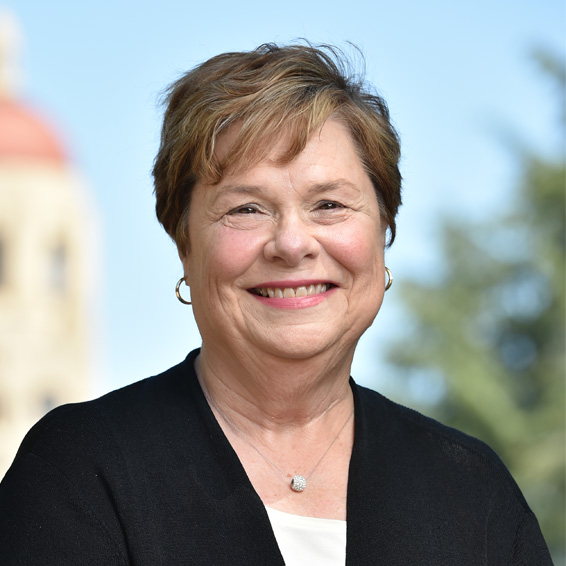
Janet Cooper Alexander
- Frederick I. Richman Professor of Law, Emerita
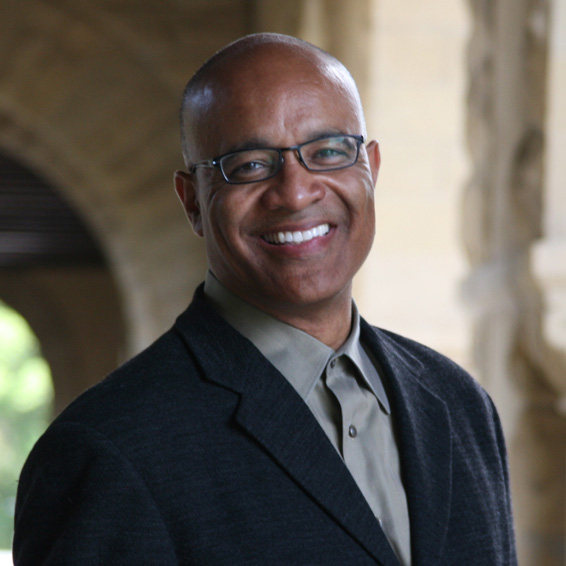
Ralph Richard Banks
- Jackson Eli Reynolds Professor of Law
- Faculty Director, Stanford Center for Racial Justice
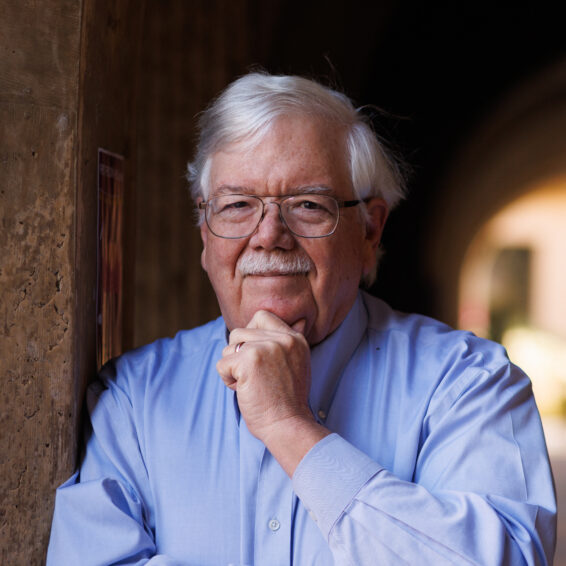
Henry T. Greely
- Deane F. and Kate Edelman Johnson Professor of Law
- Director, Center for Law and the Biosciences
- Professor, by courtesy, Genetics
- Chair, Steering Committee of the Center for Biomedical Ethics
- Director, Stanford Program in Neuroscience and Society
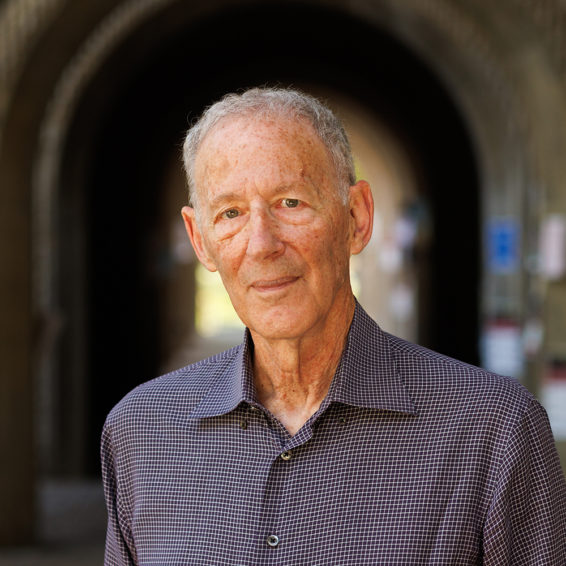
Mark G. Kelman
- James C. Gaither Professor of Law
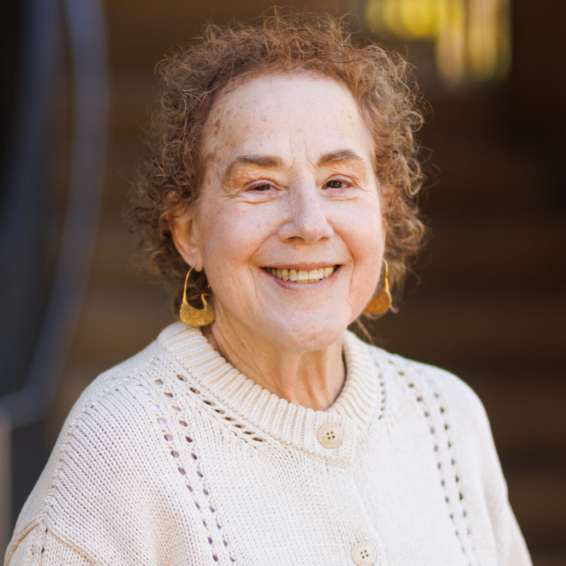
Deborah Hensler
- Judge John W. Ford Professor of Dispute Resolution
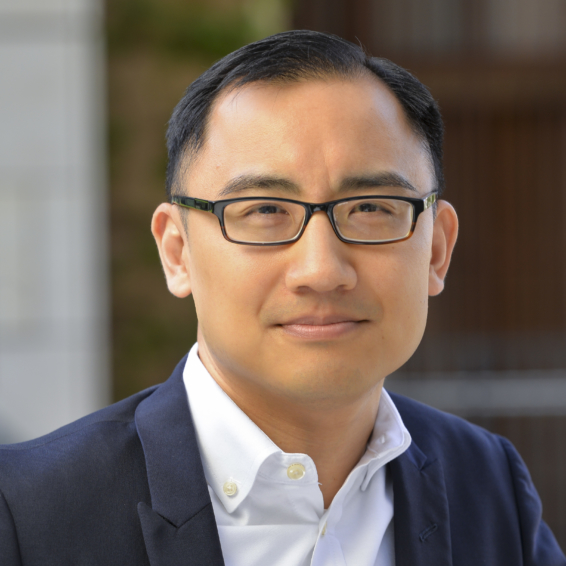
Daniel E. Ho
- William Benjamin Scott and Luna M. Scott Professor of Law
- Professor of Political Science
- Professor of Computer Science (by courtesy)
- Senior Fellow, Stanford Institute for Human-Centered Artificial Intelligence (HAI)
- Senior Fellow, Stanford Institute for Economic and Policy Research
- Director of the Regulation, Evaluation, and Governance Lab (RegLab)
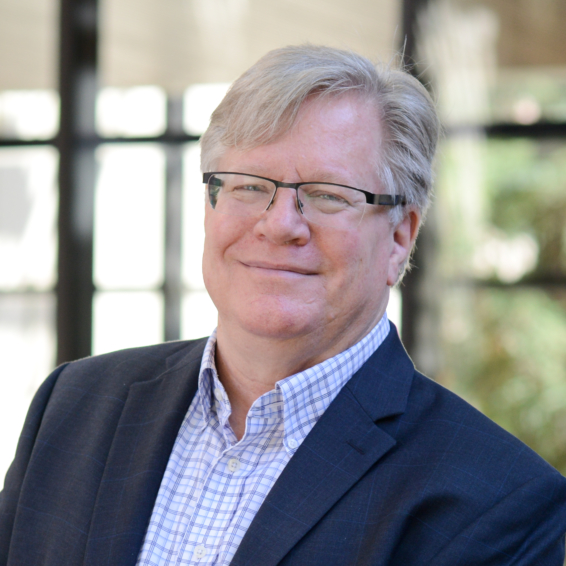
Robert J. MacCoun
- James and Patricia Kowal Professor of Law
- Senior Fellow at the Freeman Spogli Institute for International Studies
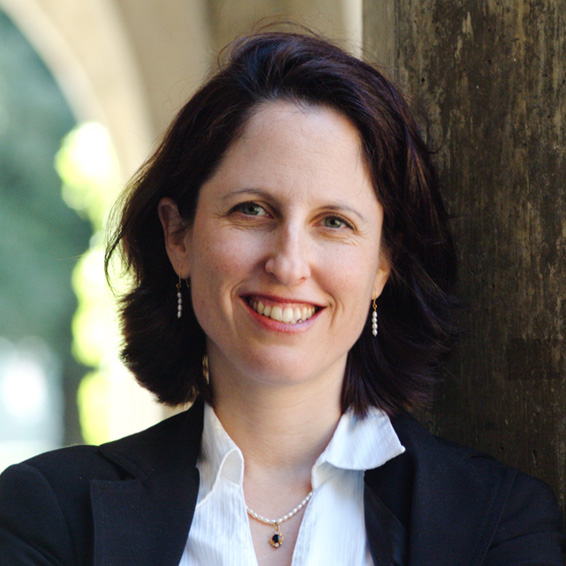
Alison D. Morantz
- James and Nancy Kelso Professor of Law
- Director of SIDDLAPP
- Senior Fellow, Stanford Institute of Economic Policy Research
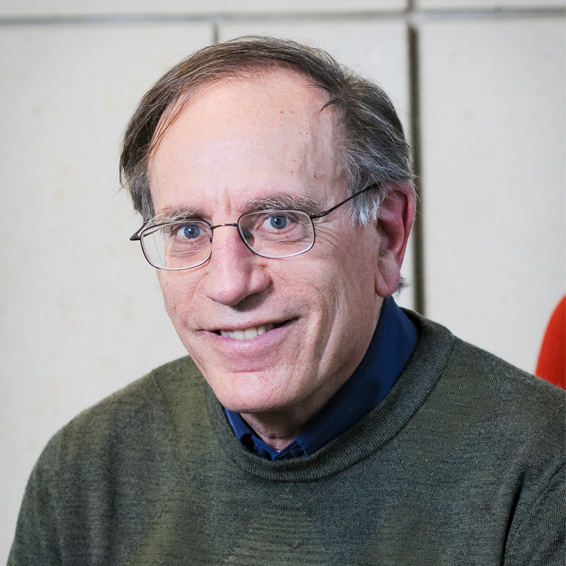
Robert Weisberg
- Edwin E. Huddleson, Jr. Professor of Law
- Faculty Co-Director, Stanford Criminal Justice Center
- JD/PhD Psychology
The JD/PhD Program is an in-depth, cross disciplinary path designed to expose lawyers and psychologists to the growing number of issues that involve both fields, such as competence, mental illness, and incapacity, and the field of behavioral law and economics.
- Degree Requirements
- JD/MBA (4 Year)
- JD/MBE Bioethics
- JD/MSSP Social Policy
- JD/MS Nonprofit Leadership
- JD/MSEd Education Policy
- JD/MSEd Higher Education
- JD/MA or MS Criminology
- JD/MD Doctor of Medicine
- JD/MSE Engineering
- JD/MCP City & Regional Planning
- JD/MPH Master of Public Health
- JD/AM Islamic Studies
- JD/PhD Legal Studies and Business Ethics
- JD/MA and JD/PhD Philosophy
- JD/PhD Anthropology
- JD/PhD Communications
- Certificates
- Legal Practice Skills
- Clinics & Externships
- Academic Support Program
- International Affairs
- Future of the Profession Initiative
- Legal Education Programs
- Executive Education
- Academic Calendar
- Learning Outcomes
- Advocacy Competitions
Program Course Overview
Financial aid.
Once admitted to both programs independently, students will be able to seek each school’s relevant financial support. Students can pay for Law School with standard methods like assets, loans, and need-based financial assistance (if qualified). The PhD program may provide tuition, fees, stipends, and health insurance support according to the Department’s requirements.
How to Apply
Students should apply contemporaneously for admission to both the Department of Psychology and the Law School, noting on both that they have applied to the other. There may be a rare case when a student who has been accepted into the PhD program may, in the first year of that course of study, apply for admission to the Law School and to the Dual Degree Program.
For more information, admitted or current JD students should contact Amanda S. Aronoff. Applicants or prospective applicants to the Law School should contact [email protected] .
Interested in other Phd joint degrees?
JD/Phd American Legal History
JD/PhD Philosophy

Sign up to our Newsletter
What is a juris doctor (jd) degree.
%20Degree_.png)
Reviewed by:
David Merson
Former Head of Pre-Law Office, Northeastern University, & Admissions Officer, Brown University
Reviewed: 4/12/24
If you’re considering joining the legal field, you’ve likely come across the term “JD.” To learn more about this term, read on! This guide will go over one of the most popular legal degrees pursued, a JD, and how it can be used.
What Is a JD Degree?
A Juris Doctor (JD) is a three-year professional graduate degree required to become a licensed lawyer. It signifies an advanced level of expertise and specialization as the highest degree that can be achieved in the legal field.
Juris Doctor Degree Requirements
Preparing for your JD will require meticulous groundwork to fulfill the lengthy list of application requirements and adhere to your desired law school’s application timeline :
- An undergraduate degree in a major of your choice
- A competitive LSAT or GRE score
- A resume detailing your work , volunteer, and extracurricular experience
- A personal statement
- Letters of recommendation
- Optional addendum for a low GPA or low LSAT score
- Optional diversity statement
Students often spend months of hard work perfecting their applications to ensure they stand out!
How Long Does It Take to Get a JD Degree?
You should know what you’re getting yourself into by pursuing a JD ! They typically take three arduous years to complete as a full-time student and are incredibly demanding.
However, there are several part-time JD programs that take four years to complete. These programs offer the same curriculums and opportunities as full-time JDs but have more flexibility!
What Can You Do With a JD Degree?
The majority of individuals who complete a Juris Doctor degree go on to work as practicing lawyers. For graduates seeking to practice law within the United States, it's also necessary to gain admission to the Bar in the specific jurisdiction you plan to practice.
The most common legal specialties Juris Doctor candidates pursue are:
- Animal law : handling cases involving animal cruelty, farming, natural land use, entertainment, and the rules around exotic animals
- Alternative dispute resolution : solving disputes without litigation
- Construction law : protecting construction workers, industry workers, architects, planners, and financial institutions; and ensuring construction organizations follow ethical work, safety, and administration regulations
- Maritime law : focuses on regulations affecting the economic transactions between sailors and maritime traders
- E-commerce law : supporting businesses and consumers navigate online transactions
- Criminal law : learning about liberties and violations of rights and public safety
- Corporate compliance : ensuring companies abide by all laws, regulations, and policies to avoid lawsuits or violations
- Cybersecurity law : protecting public and private information systems
- Family law : representing individuals within family units, most commonly handling divorce cases and those involving child welfare
- International law : involving the rules governing international relationships, such as those between the UN states and individuals
- Environmental law : protecting the environment by advocating for it and pushing for policies and regulation changes
- Education law : involving the policies involved in education systems
- Health law : involving any legislation that applies to healthcare systems and those within them
- Sports law : working with sports organizations, leagues, teams, or individuals to mainly ensure they receive fair contracts or represent them when accused of committing crimes
- Labor and employment law : ensuring employee-employer relationships follow the necessary standards and regulations
- Tax law : involving all regulations pertaining to state and federal taxes
- Real estate law : supporting buyers, sellers, and organizations in transactions involving properties
- Trust and estate law : protecting clients’ assets during their life and after their death
- Intellectual property law : protecting the intellectual creations of organizations and individuals, including art, music, inventions, brands, patents, trademarks, and more
- Civil rights law : advocating for and protecting the rights and liberties of individuals in areas related to social justice
- Human rights law : protecting the universal rights considered to be inherent to all human beings
- Personal injury law : providing compensation and justice to those injured due to the negligence of another party
- Immigration law : providing legal guidance and services to individuals, families, and businesses regarding various immigration matters
- Prosecution : prosecutors are district attorneys (DAs) who represent the government in criminal cases
- Public defense : public defenders are employed by the government to provide legal representation to individuals who cannot afford private attorneys
Alternatively, many law school graduates choose not to pursue licensure or leverage their degree in different career paths , including:
Lawyers can eventually also become judges without any further education. However, this typically involves over a decade of experience working as an attorney and is a highly revered and selective career.
Some JD holders may choose to become mediators instead of lawyers. Mediators are neutral third parties that help resolve conflicts to reach agreeable settlements.
Jury Consultant
Jury consultants assist attorneys in identifying and evaluating potential biases, attitudes, and perceptions of prospective jurors. Through careful research and consideration, their goal is to ensure the right and least biased jurors are chosen.
Legal Secretary
Legal secretaries play an integral role in any law firm by helping with administrative tasks to ensure smooth operation.
While paralegals often only hold degrees or certificates in paralegal studies, JD students are more than qualified to pursue this role. Paralegals work closely with attorneys and provide them with a range of support services.
Teachers or Professors
You may also pursue a teaching career with a JD but will need to obtain higher education to teach at the postsecondary level.
Now you know what careers are open to Juris Doctor graduates, book a call with a law school admissions expert to secure your spot at law school today!
Are There Other Law Degrees Besides a JD?
While schools offered bachelor’s degrees in law in the past, the main types of law degrees besides a JD are master’s, such as a Master’s of Law (LLM), and doctoral degrees, such as a Doctor or Juridical Science (JSD). These degrees allow students to gain more in-depth knowledge of a specific specialty.
FAQs: What Is a JD Degree?
For any remaining inquiries, here are the answers to frequently asked questions about this legal degree.
1. What Is a JD Equivalent To?
A JD is unlike any other degree. It is a graduate-level degree that offers you specialized training in law and valuable experience to prepare you for your career. In this way, it can be compared to an MD, as an MD also offers advanced training in medicine and considerable hands-on experience.
But, MD students must also complete residencies to practice medicine. Lawyers can begin practicing right after their JDs, assuming they pass the bar exam !
2. Is a JD Equivalent to a PhD?
No, a JD is not equivalent to a PhD. PhDs require research, independent study, and thesis components that JDs do not. While PhD holders are considered doctors, JD holders are not.
3. Is a JD the Same as a Bachelor’s Degree?
No, a JD is much more extensive than a bachelor’s degree. A bachelor’s degree is a prerequisite to a JD.
4. Is a JD a Doctorate?
Yes, a JD is considered a professional doctorate degree.
5. Should I Pursue a JD for a Non-Lawyer Career?
Getting into a JD program will be difficult. It will require you to write the LSAT, maintain a high GPA, and submit a standout application to admissions committees that have seen thousands of applications. Once you’re in a JD program, the difficulty will only increase . These programs are also extremely expensive !
Considering these factors, pursuing a career as a lawyer ensures all of this time, effort, and money is not spent in vain. Lawyers are well-paid and can often handle their student debt when working full-time. However, if you pursue another job, such as a mediator, you will not make as much and may struggle with your student loans.
Additionally, you do not need a JD to pursue other legal careers! There are other cheaper and less competitive options that would serve you better.
Final Thoughts
Bearing in mind the high costs and competitiveness of these programs, it’s essential you carefully consider if this degree is right for you! After going through this guide, you should be able to come to a decision easier!

Schedule A Free Consultation
You may also like.

What Is the LSAT? Your Burning FAQs Answered

How to Become a Criminal Lawyer - Step-by-Step Guide

- Search Search Please fill out this field.
What Is a Juris Doctor (JD)?
- Understanding the JD Degree
- Requirements
- Two-Year JD Degrees
Common Coursework for JD Programs
- Job Prospects
- Job Responsibilities
The Bottom Line
- Government & Policy
Juris Doctor (JD): Definition, Requirements, History, and Jobs
James Chen, CMT is an expert trader, investment adviser, and global market strategist.
:max_bytes(150000):strip_icc():format(webp)/photo__james_chen-5bfc26144cedfd0026c00af8.jpeg)
A Juris Doctor (JD) is a three-year professional degree that confers recognition that the holder has a professional degree in law. Upon completion of a JD. program and passing the bar exam, individuals are eligible to practice law in their jurisdiction. This means they can represent clients, provide legal advice, and advocate for their clients in court.
Key Takeaways
- The American law degree, called a Juris Doctor (JD), is a three-year professional degree.
- Law school applicants must already have a bachelor's degree.
- It typically takes three years to complete the J.D. degree, after which the graduate must pass the bar exam to practice law.
- Drexel, Rutgers, Columbia, and Fordham are among the schools that offer a two-year J.D. degree option.
Understanding Juris Doctor (JD)
A JD degree is a professional graduate degree in law. It is the standard degree required to practice law in the United States and in most other common law jurisdictions. Most JD programs typically involves three years of full-time study or its equivalency in part-time studies.
Some schools offer a joint J.D. and MBA degree so that students can complete both degrees in less time than it would take to complete each separately. Other combined graduate degrees include public policy, medicine, and bioengineering.
Law school applicants must already have a bachelor's degree . It typically takes three years to complete the J.D. degree, after which the graduate must pass the bar exam to practice law. Each state and the District of Columbia has its own bar exam.
Obtaining a JD degree is different than passing the bar. Most often, students pursue the materials needed to pass the bar as part of their JD studies.
History of the JD Degree
The first lawyers trained in the United States underwent an apprenticeship and training with a lawyer who served as a mentor. The first formal law degree granted in the country was a Bachelor of Law from the College of William and Mary in 1793. Harvard University changed the name of the degree to the Latin "Legum Baccalaureus," known as the LL.B., and led the 19th-century movement for a scientific study of law. The LL.B. remains the standard degree in most of the Commonwealth of Nations.
The faculty of Harvard Law School first suggested changing the degree from LL.B. to J.D. in 1902 to reflect the professional nature of the degree. In 1903, the University of Chicago, which was one of only five law schools that required students to have a bachelor's degree before enrollment, granted the first J.D. degree. Many law schools offered both an LL.B. to students who entered without a bachelor's degree and a J.D. to students entering with a bachelor's degree.
By the early 1960s, most students entered law school with a bachelor's degree. In 1965, the American Bar Association recommended the standard law degree be the J.D., and that decree took effect by the end of the decade.
Requirements for a JD Degree
In order to get into law school, you must have an undergraduate degree, have passed the Law School Admission Test (LSAT), request your official transcripts from your undergraduate institution(s), obtain letters of recommendation, and write a personal statement.
Complete a Bachelor's Degree
While many graduate programs require the completion of certain prerequisite courses, there are no such requirements for prospective law students. However, you must have earned (or be on track to earn) an undergraduate degree from an accredited institution. Your undergraduate grade point average (GPA) is a key indicator law schools consider when evaluating applicants.
Take the Law School Admission Test (LSAT)
You'll also need to take the LSAT. The basic fee for the LSAT during the 2023-2024 academic year is $222 plus $200 for Credential Assembly Service (CAS) and an additional $45 fee for each CAS report sent to the law schools you apply to. Most people end up paying $500 or more in total LSAT fees.
It is generally recommended that you spend at least three months studying for the exam, although many people dedicate up to a year studying for the exam. There are many resources online to help you study for the LSAT, including free resources. Organized prep courses that guide you through the different components of the LSAT can be quite expensive. Some individuals opt to hire a private tutor to help them prepare for the LSAT.
Request Your Official Transcripts
Law schools require official transcripts from all undergraduate, graduate, and certificate programs. Each copy of your official transcript can cost between $10 and $20, so depending on how many schools you apply to, this amount can add up. The process of requesting your transcript and then getting them sent to the appropriate institution can take several days, so make sure that you give yourself adequate time.
Write a Personal Statement
A personal statement is your opportunity to reveal your personality to the admissions committee. It's a good idea if your personal statement covers your career goals and academic achievements, although there are many different approaches. Some schools may have specific prompts they want you to address in your personal statement.
Obtain Letters of Recommendation
Most law schools will require at least one letter of recommendation. Your letters of recommendation can be from undergraduate professors or former employers that can speak to various elements of your success.
Tuition varies dramatically between law schools. In 2023, top law schools will cost nearly $70,000, while there are plenty of laws schools that charge less than $20,000.
Two-Year JD Degrees
Job prospects for lawyers fell sharply following the 2008 financial market collapse, and law school enrollment dropped by 24% from 2010 to 2013. With tuition continuing to rise, some schools have looked at shortening the program. Drexel, Rutgers, Columbia, and Fordham are among the schools that offer a two-year J.D. option or allow students to start their first year of law school after completing the third year of college.
JD programs typically structure their coursework to provide students with a fairly comprehensive study. During the first year, commonly referred to as the 1L year, students delve into foundational subjects such as contracts, torts, property law, criminal law, civil procedure, and constitutional law. These courses lay the groundwork for legal analysis and reasoning, both of which are leveraged as the student progresses with their degree.
As students progress into their second and third years, they often explore more specialized areas of law through. These may include corporate law, environmental law, intellectual property, family law, international law, or tax law. Students usually also get exposure to legal writing and research courses regardless of their specialization.
In addition to classes, many law schools offer clinical programs, externships, and internships where students can apply their legal knowledge in real-world settings. This gives prospective JDs an opportunity to function under the supervision of licensed attorneys.
Job Prospects for JD Degrees
According to the U.S. Bureau of Labor Statistics, the employment outlook for lawyers is promising with a projected 8% growth from 2022 to 2032. This growth rate exceeds the average for all occupations. This growth is expected to result in approximately 39,100 job openings annually during this decade.
The demand for legal services remains high, driven by the legal needs of individuals, businesses, and government entities. However, increasing price competition may lead law firms to reconsider staffing and cost-saving measures.
Job Responsibilities for JD Holders
A juris doctor graduate performs a wide range of legal tasks and responsibilities which can vary depending on their specialization and practice area. Here are some common things that a JD holder may do.
- Legal Research: Lawyers use their research skills to investigate and understand the relevant laws, regulations, precedents, and case law that pertain to their clients' cases. They analyze legal sources to build strong arguments and support their clients' positions.
- Client Consultation: Lawyers meet with clients to discuss their legal issues and provide guidance. During these consultations, they assess the situation, offer legal advice, and discuss potential strategies or courses of action.
- Document Drafting: Lawyers are responsible for drafting various legal documents, including contracts, wills, deeds, legal briefs, pleadings, and agreements. These documents serve as formal records of legal transactions and arguments.
- Negotiation: Many lawyers engage in negotiation on behalf of their clients to reach mutually beneficial settlements and agreements. Negotiation skills are crucial in areas like family law, personal injury, and business transactions.
- Legal Analysis: Lawyers analyze complex legal issues, breaking them down to identify relevant laws, regulations, and case law. They assess the strengths and weaknesses of legal arguments and provide strategic advice to their clients.
- Mediation and Arbitration: Some lawyers specialize in alternative dispute resolution methods, like mediation and arbitration. They act as neutral parties to facilitate negotiations and resolve disputes without the need for a court trial.
- Compliance and Regulatory Work: Lawyers in areas such as corporate law, environmental law, and healthcare law ensure their clients comply with relevant laws and regulations. They help clients navigate complex regulatory frameworks and minimize legal risks.
- Specialized Work: Many lawyers specialize in specific practice areas, such as criminal defense, family law, intellectual property, tax law, immigration law, or corporate law. Specialization allows them to focus on particular legal issues and become experts in their chosen field.
What Is a JD Degree Equivalent to?
A JD degree, the American law degree, is a three-year professional degree. A JD is the minimum educational level for lawyers. The JD is considered a professional doctorate.
Is a JD a Lawyer?
To become a lawyer, you'll need to earn a Juris Doctor (JD) degree. Once you graduate, you are entitled to take the bar exam and begin the practice of law. Obtaining a JD degree alone does not permit you to practice law. You must also pass the bar exam. Every state (and the District of Columbia) has its own bar exam.
Is a JD Higher Than a Masters?
While the JD is the only degree necessary to become a professor of law or to obtain a license to practice law, it is not a research degree. However, there are two types of research degrees available to individuals who are interested in studying law. These are the Master of Laws (LL.M.) degree, which typically requires a JD as a prerequisite before pursuing study, and the Doctor of Juridical Science (SJD/JSD) degree, which typically requires a Master of Laws as a prerequisite.
Is Someone With a JD a Doctor?
It is not customary in the U.S. to address individuals who hold a JD as a "Doctor." In the late 1960s, the Canons of Professional Ethics issued a full ethics opinion regarding whether lawyers could ethically use the title "Doctor." The organization came down against this usage, with some exceptions. It is permissible for lawyers to use the title "Doctor" when dealing with countries where the use of "Doctor" by lawyers is standard practice. In addition, lawyers are allowed the use of the title in academia as long as the school of graduation considers the JD degree a doctorate degree.
How Many Years Is a JD Degree?
A traditional, full-time JD program lasts three years. There are some accelerated programs that allow individuals to complete their degrees in just two years or their undergraduate and JD degrees in a total of six years. Part-time JD programs usually take four years (or more) to finish.
A Juris Doctor is a professional graduate degree in law, typically required to become a practicing attorney in the United States and some other countries. It involves a comprehensive study of legal principles, statutes, and case law, equipping graduates with the knowledge and skills needed for a legal career.
Stanford Law School. " A Brief History of Stanford Law School: Seventy Fifth Anniversary ."
Harvard Law School Library. " What Is the Difference Between LL.B Degree and the J.D. Degree? "
LSAC. " LSAT & CAS Fees ."
PublicLegal. " Law School Rankings By Tuition ."
The New York Times. " Law Schools’ Applications Fall as Costs Rise and Jobs Are Cut ."
University of Wisconsin-Madison. " J.D. Curriculum ."
U.S. Bureau of Labor Statistics. " Occupational Outlook Handbook: Lawyer ."
American Bar Association Journal. " Summaries of Informal Opinions on Professional Ethics ."
:max_bytes(150000):strip_icc():format(webp)/GettyImages-1058294748-9f8e02c780ba42d69bb02fd2c25a1ac5.jpg)
- Terms of Service
- Editorial Policy
- Privacy Policy
- Your Privacy Choices

- Career Services

- About USC Gould
- Commencement
- Mission Statement
- Message from the Dean
- History of USC Gould
- Board of Councilors
- Jurist-in-Residence Program
- Social Media
- Consumer Information (ABA Required Disclosures)

- Academic Calendar
- LLM Programs
- Legal Master’s Programs
- Certificates
- Undergraduate Programs
- Bar Admissions
- Concentrations
- Corporate & Custom Education
- Course Descriptions
- Experiential Learning and Externships
- Progressive Degree Programs

Faculty & Research
- Faculty and Lecturer Directory
- Research and Scholarship
- Faculty in the News
- Distinctions and Awards
- Centers and Initiatives
- Workshops and Conferences

- Alumni Association
- Alumni Events
- Class Notes
- USC Law Magazine

- Student Affairs Office
- Student Life and Organizations
- Academic Services and Honors Programs
- Student Wellbeing
- Diversity, Equity, Inclusion and Belonging
- Law School Resources
- USC Resources
- Business Law & Economics
- Constitutional Law
- New Building Initiative
- Law Leadership Society
- How to Give to USC Gould
- Gift Planning
- BS Legal Studies

Explore by Interest
- Legal Master’s Programs
Give to USC Gould
- Giving to Gould
- How to Give
Application Information
Quick links.
- Graduate & International Programs
- Juris Doctor (JD) Degree & Program

The first law school in Southern California and among the most distinguished nationwide, the USC Gould School of Law is committed to providing a legal education that trains tomorrow’s leaders in law and society.
USC Gould’s Juris Doctor (JD) degree program prepares students to pursue their passions and launch meaningful careers across legal practice, business, government and public service.
- Learn the foundations of law in the heart of Los Angeles, the second largest legal market in the U.S.
- Immerse yourself in real-world, practice-focused experience at the school that helped pioneer clinical and interdisciplinary legal education
- Shape your academic journey through multidisciplinary offerings, study abroad programs, and dual degrees
Incoming USC Gould students receive scholarship funding
Increase in financial aid for USC Gould students since 2011
California Bar pass rate in 2022 (among top 3 in the state)
Employed full-time 10 months after graduation (2021 JD Class)

At USC Gould, we are focused on honing your expertise in a wide range of legal specialties and providing the skills to reach your professional goals.
Combining world-class scholarship with exceptional experiential learning, USC Gould puts legal knowledge in your mind — and the future in your hands.
“It was definitely USC Gould’s Public Interest Scholars program. Plus, when I visited campus, everyone was so warm and genuine. Within the first hour, I knew I’d be coming here.”
— Mirelle Raza JD 2021

At the heart of our educational philosophy is a deep-rooted commitment to student success. At USC Gould, you are part of a scholarly community that is not only vibrant and diverse, but also supportive and collegial. You also have access to resources, programming and dedicated staff that will help you throughout your law school journey.
With a student-to-faculty ratio of 12:1, you are able to learn, interact and engage directly with our renowned faculty — who know you by your first name.
One of the hallmarks of USC Gould is our collaborative learning environment, where fellow students are your colleagues, not your competition. We are also home to over 40 student groups that match your breadth of interests.
USC is proud to be among the nation’s most diverse law schools. Nearly 50% of JD students come from underrepresented minority backgrounds and more than 10% are first-generation college students.
From our wide range of course offerings to study abroad alliances with leading global universities, you will find – and explore – your passion through a customized course of study. Our hands-on clinics enable you to represent clients and make a vital impact on people’s lives and the community.
Our dynamic University Park Campus is located in the heart of sunny Los Angeles — the country's second-largest legal market — a nexus of entertainment, business and culture, a gateway to the Pacific Rim, and a burgeoning technology hub known as Silicon Beach.
From the beginning of your legal studies, Gould’s Career Services Office works one-on-one with you to tailor your plan for a seamless transition to the practice of law.
When you graduate from USC Gould, you join USC's famed Trojan Family.
An alumni network nearly 480,000 strong, the Trojan Family spans the globe and will remain one of your most valuable — and lifelong — professional resources. Our more-than 15,000 law alumni share a steadfast commitment to nurturing the next generation of students.
Learn more about our JD application process and admissions requirements.
Through the legal knowledge and analytical skills gained at USC Gould, our students are well-positioned for careers that effectuate great change and bring great benefit to society. We tend to attract students who are not only academically accomplished, but who also have a strong moral and ethical fiber — which is very important for practicing law and serving as a leader.
Franita Tolson Dean and Carl Mason Franklin Chair in Law, USC Gould School of Law

Follow JD Admissions on Instagram

@USCGouldAdmissions

USC Gould School of Law 699 Exposition Boulevard Los Angeles, California 90089-0071 213-740-7331
USC Gould School of Law
699 Exposition Boulevard
Los Angeles, California 90089-0071
- Academic Programs
- Acceptances
- Articles and Book Chapters
- Awards and Honors
- Book Chapters
- Book Reviews
- Business Law and Economics
- Center for Dispute Resolution
- Center for Law and Philosophy
- Center for Law and Social Science
- Center for Law History and Culture
- Center for Transnational Law and Business
- Centers and Institutes
- Continuing Legal Education
- Contribution to Amicus Briefs
- Contributions to Books
- Criminal Justice
- Degree Programs
- Dispute Resolution
- Election Law
- Environmental Law
- Experiential Learning
- Externships
- Graduate & International Programs
- Hidden Articles
- Housing Law and Policy Clinic
- Immigration Clinic
- Immigration Law
- Initiative and Referendum Institute
- Institute for Corporate Counsel
- Institute on Entertainment Law and Business
- Intellectual Property and Technology Law Clinic
- Intellectual Property Institute
- International Human Rights Clinic
- International Law
- Jurist in Residence
- Legal History
- Legal Theory and Jurisprudence
- LLM On Campus
- Media Advisories
- Media, Entertainment and Technology Law
- Mediation Clinic
- MSL On Campus
- Other Publications
- Other Works
- Planned Giving
- Post-Conviction Justice Project
- Practitioner Guides
- Presentations / Lectures / Workshops
- Public Interest Law
- Publications
- Publications and Shorter Works
- Publications in Books
- Publications in Law Reviews
- Publications in Peer-reviewed Journals
- Real Estate Law and Business Forum
- Redefined Blog
- Research & Scholarship
- Saks Institute for Mental Health Law, Policy, and Ethics
- Scholarly Publications
- Short Pieces
- Small Business Clinic
- Tax Institute
- Trust and Estate Conference
- Uncategorized
- Undergraduate Law
- Working Papers
- Works in Progress
Copyright © 2024 USC Gould. All Rights Reserved
- Media Contacts
- Make a Gift
- Emergency Information

- Privacy Policy
- Notice of Non-Discrimination
- Digital Accessibility
- Contact Webmaster

Juris Doctor, JD
On this page: -->, how does the juris doctor (jd) degree work at asu law.
The Juris Doctor (JD) degree at ASU's Sandra Day O'Connor College of Law is a three-year full-time program that incorporates practical learning and experiences.
ASU Law first-year JD students take courses in civil procedure, contracts, torts, legal method and writing, property, constitutional law, criminal law, legal advocacy, and professional responsibility. Courses in the first-year curriculum are required and are administratively assigned. Generally, the required course load for the first year is 15 assigned credits in the fall and spring semesters. Several focused programs can enhance JD students' experiences.
You can pursue a JD concurrently with other degrees from ASU like a Master in Business Administration (MBA), Master in Social Work (MSW), Master of Sports Law and Business (MSLB), or a PhD in Justice Studies. Mayo Clinic School of Medicine students also have an opportunity to pursue a dual JD/MD degree .
Enrollment options
Select Section
Quick facts
Next start date: August 2024
Total credit hours: 88
Students who receive scholarships: 100%
Year full-time program: 3
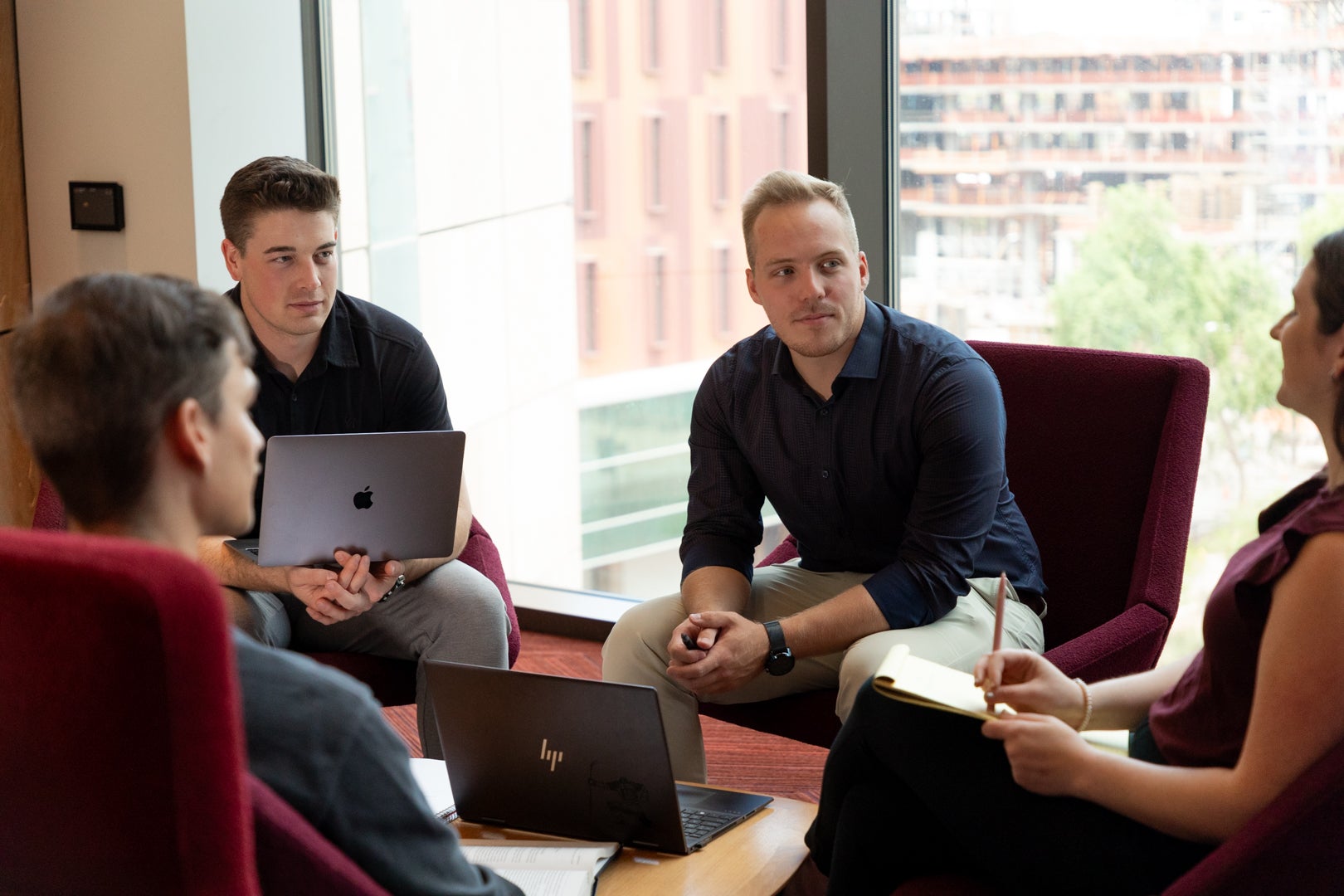
Request JD information
By completing and submitting your information to ASU, you consent to:
1. ASU using this information to contact you regarding information as you request. 2. The terms of ASU's Privacy Statement. 3. If you are in the European Union or another country or state that has adopted GDPR. (General Data Protection Regulation) or similar privacy protection, please also read ASU European Supplement to ASU's Privacy Statement.
How can a Juris Doctor degree help you?
The Juris Doctor (JD) degree at ASU's Sandra Day O'Connor College of Law is a three-year full-time program that incorporates practical learning and experiences. Learning outcomes for the JD degree include competency in the following:
- Knowledge and understanding of substantive and procedural law;
- Legal analysis and reasoning, legal research, problem-solving, and written and oral communication in the legal context;
- Exercise of proper professional and ethical responsibilities to clients and the legal system; and
- Other professional skills needed for competent and ethical participation as a member of the legal profession.
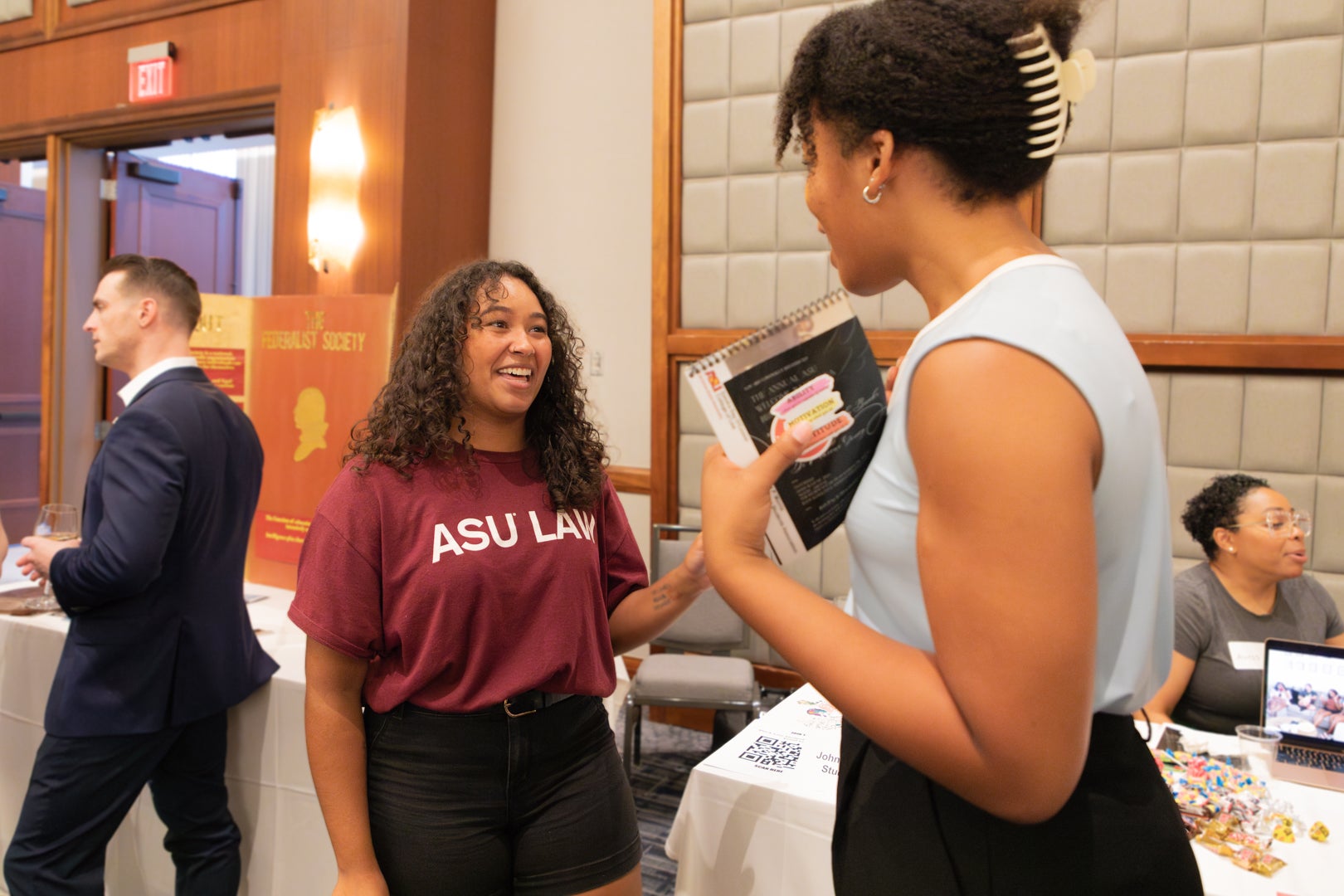
Why ASU Law?
ASU Law is a highly-ranked and highly respected public law school dedicated to educating the next generation of legal professionals. In honor of its namesake Justice Sandra Day O’Connor, ASU Law graduates are prepared to shape the legal field, both in and out of the courtroom.
The highest-ranked law school in Arizona and the No. 15 public law school in the U.S., ASU Law is proven to train skilled lawyers and leaders. The school abides by the ASU charter and is measured not by whom it excludes, but by whom it includes. That philosophy is baked into everything ASU Law does.
Learn more about ASU Law
Juris Doctor program details
JD students must complete 88 credit hours and a written substantial paper in order to meet graduation requirements.
For those who have been wanting to go to law school but could not eliminate all of the other obligations in their lives to allow for full-time enrollment, we also offer a Flexible Schedule.
Attendance is on a full-time basis - first-year JD students are not permitted to work, and second- and third-year students may not work more than 20 hours per week. If you cannot attend law school full-time, please review the information about the Flexible Schedule option .
Learn more and apply
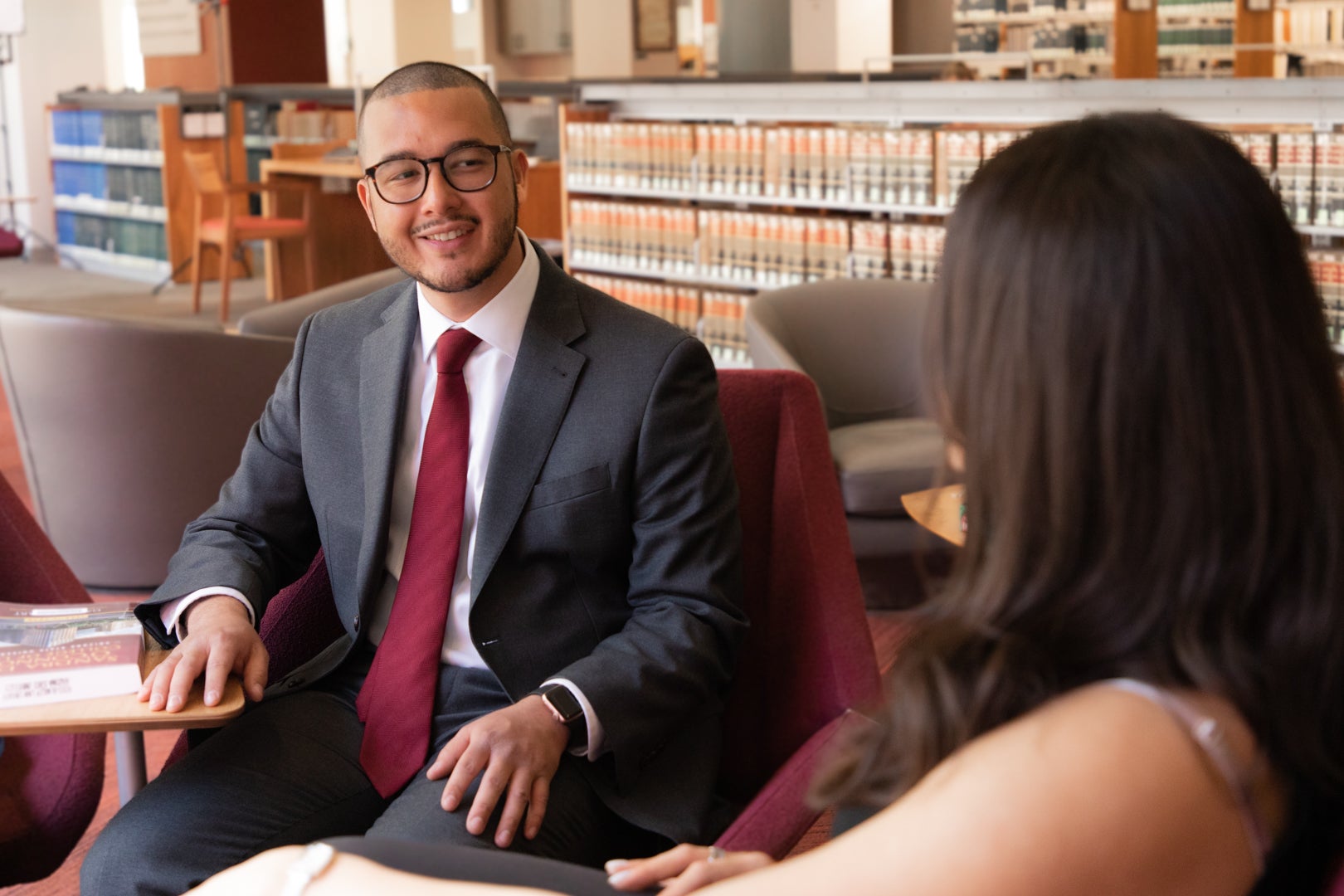
Kurt “KJ” Russell Jr., Juris Doctor
"During my time at ASU Law, one of the most profound lessons I learned was the paramount importance of relationships with classmates, mentors and sponsors. While I anticipated the academic rigor and legal knowledge gained in the classroom, what truly surprised me was the transformative impact of forging meaningful connections with my peers and mentors. In the classroom, collaborating with classmates on group projects and engaging in discussions opened my eyes to diverse perspectives and approaches to legal issues.
"I realized that these relationships with my fellow students weren't just about studying together; they were about cultivating a network of future colleagues and industry mates. As we shared ideas, debated legal theories and supported each other through the challenges of law school, I came to understand the invaluable role that these relationships would play in my future career. These classmates would be my coworkers and potential collaborators, referral sources and lifelong friends within the legal profession."
Read KJ's story
Juris Doctor Certificates
Juris Doctor (JD) students have a unique opportunity to pursue the following certificates:
Juris Doctor degree emphases
Why should you select an emphasis.
As a student of ASU Law, you have the opportunity to customize your degree to your area of interest. Take advantage of popular emphases listed below to fit your interests and career goals. Learn to master legal principles in a variety of fields and be well-prepared to thrive within an evolving legal landscape across a variety of industries.
Student life
ASU's Sandra Day O'Connor College of Law offers a rich and vibrant student life. Students are involved in range of activities such as public service and pro bono work, student organizations , academic law journals , externship programs and moot court competitions.
Students also participate in professional conferences and events organized by the law school or student groups in order to broaden their perspective, gain practical experience, and network.
The Student Portal is a one-stop shop to find student resources, fellowship applications , clinic applications, academic information, and more.
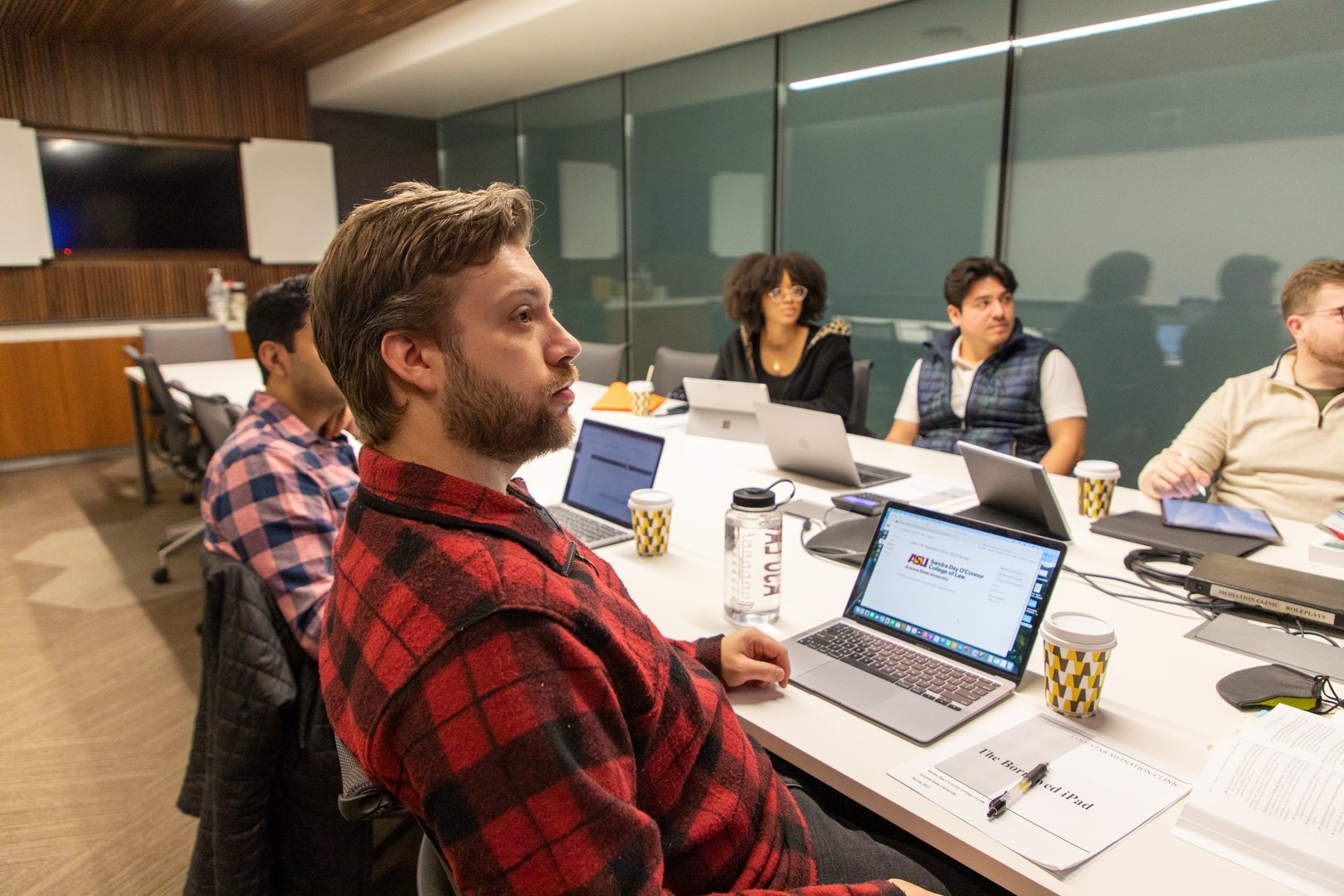
World-class faculty
A law school is only as strong as its faculty. At the Sandra Day O’Connor College of Law at Arizona State University, students learn from some of the nation’s foremost scholars and innovative legal instructors . They have played an integral role in ASU Law establishing itself as one of the highest ranked public law schools in the nation, a leading center of scholarly exchange with a tradition of exceptional bar-passage and quality job-placement rates.
Employers - after ASU Law
Juris Doctor graduates go on to join law firms, start their own companies, move up in their existing careers or find a passion for the law. In every case, knowledge of the legal field enhances their professional life and shapes their way of thinking.
Career Services at ASU Law can help students identify goals, find employment opportunities and help students pursue their passions. The career services team offers hands-on interview preparation, resume reviews and the guidance job seekers need as they enter the workforce. That resource is available to students the moment they start their ASU Law journey and lasts long after graduation.
Recent law firm placements include Ballar Spahr, Bryan Cave Leighton Paisner, Polsinelli, Squire Patton Boggs, Greenberg Traurig LLP, Fennemore, Kirkland & Ellis, White & Case, Kutak Rock LLP, Jones Day, Morrison & Foerster LLP, Perkins Coie LLP, Quarles & Brady LLP, and Snell & Wilmer LLP. Our past student have also gone on to work at many Federal Counts including the U.S. District Court in Arizona, the U.S. Court of Appeals, and many more.
Learn more about Career Services ASU Law employment
Living in Phoenix
Downtown Phoenix is the main location for ASU Law. Students who study in Phoenix at the Beus Center for Law and Society gain access to a quality education in a state-of-the-art facility. Located just steps from government agencies and large law firms, the Phoenix location offers everything that a fast-growing metropolis can.
largest city in the U.S. according to U.S. Census Bureau
days of sunshine a year
is the average temperature in Phoenix
miles of hiking trails to explore
state for job growth, according to Forbes
The largest state capital in the nation, Phoenix offers a unique confluence of city, county, state and federal courts, along with numerous prominent law firms and nonprofit organizations – many within walking distance or a short light-rail ride from ASU Law’s campus.
An outdoor enthusiast’s paradise, Arizona offers many places to explore that you won’t find anywhere else. Whether you love to hike, hit the water, relax, challenge yourself, learn something new, explore history in person, Arizona has it all.
Phoenix is one of only 13 metro areas in the U.S. that has professional teams in all four major sports — MLB, NBA, NFL and the NHL — with the Arizona Diamondbacks, Phoenix Suns, Arizona Cardinals and Arizona Coyotes.
Learn more about Phoenix
Florida State University
FSU | College of Law
College of Law
- Academic Programs
Juris Doctor Program
Research Center | News & Events | Administration | Make a Gift | Journals and Advocacy Teams | Technology Services
The College of Law's three-year curriculum for the Juris Doctor degree begins with traditional courses and expands to include the latest in theoretical and interdisciplinary analyses.
The first-year curriculum provides the foundation in history, doctrine, process and analysis that students need to fully appreciate more specialized courses offered later in law school. In the second and third years of law school, our program is almost entirely elective. It includes a wide range of courses and approaches. Some of our classes are purely theoretical and doctrinal. Some focus on particular industries, such as health, pharmaceuticals, and entertainment and sports law. We also offer many opportunities for experiential learning and other courses designed to enable students to be sophisticated entrants into the worlds of business, government and law practice.
In addition to our especially strong programs in business , environmental law and international law , we have one of the best criminal law programs in the region. Students can also take advantage of one of ten joint graduate pathway programs , offered in cooperation with other colleges, schools, and departments at Florida State University.
We have live-client clinics in family law, children’s advocacy, and law and business. We also have extensive externship offerings throughout Florida and elsewhere.
Finally, our co-curricular organizations provide students a wealth of ways to earn credit for “hands-on” legal activities. Our Mock Trial and Moot Court programs prepare students to be trial and appellate advocates, and our three student-run scholarly journals give students additional opportunity to hone their research and writing skills.
If you're interested in applying for the J.D. Program at the College of Law, please visit the J.D. Admissions Procedures page for more information.
Specialized J.D. Programs
Business and Tax Law
Environmental, Energy and Land Use Law
International Law

Juris Doctor (JD) Program
- Degrees & Programs
Experience a Transformative Legal Education
Pepperdine Caruso School of Law awards the Juris Doctor (JD) degree after the successful completion of 88 units of course work which includes the completion of the upper-division writing requirement, the upper-division skills requirement, the experiential learning requirement, along with other requirements.
Pepperdine Caruso Law strives to prepare students to graduate practice-ready. We offer co-curricular experiential learning that includes clinical work, externship experience, and various international study programs. In addition, students participating in our advocacy programs compete at the highest levels of moot court competition against law schools from across the nation and world.
Program Benefits
Experiential learning.
In 2020, National Jurist ranked Pepperdine Caruso Law 10th in the nation for Practical Training. It is our goal that students graduate practice-ready.
Professional Development
We work closely with our current students and alumni as they pursue meaningful career outcomes, and value our strong relationships with legal employers.
Customized Curriculum
Tailor your studies to prepare for careers in areas such as criminal law, entertainment, media, and sports, public interest, and real estate.

Nationally Recognized
Thanks to nationally recognized faculty and programs and a truly inspiring location, the study of law at Pepperdine University is a one-of-a-kind experience. Caruso Law is a top 50 "Best Law School" per U.S. News and World Report.

Commitment to Diversity
We are committed to being a place where all belong. Our community is rich in political, racial, and spiritual diversity which has formed a strong culture of connection among our students, faculty, and staff.

Values Centered Community
Our highly accessible faculty and more than 30 student-led organizations give students the opportunity to explore varied interests and supplement their classroom experience while in law school and contribute to the unique experience that is Pepperdine Caruso Law.

Global Programs
Students can explore opportunities to study abroad in London, England or Augsburg, Germany, as well as participate in externships and service projects around the world.
Why Pepperdine
Pepperdine has risen further and faster than any law school in America. No other place can match our distinctive Pepperdine community marked by excellence, Christian values, and rigorous legal training. Diverse in our background and faiths, we are united in our commitment to embolden you to reach higher than you ever thought possible.
Beautiful Malibu, CA Campus
Flexible Course Schedules
Small Class Sizes 7:1 Student:Faculty
Accepts GRE for Admissions
Global Alumni Network
Take the Next Step
Reach out to us to learn more about Pepperdine's Juris Doctor program.
Get In Touch
Fill out the Request Information form to learn about the opportunities that await you and get in contact with a recruiter.
Attend an Info Session
Join us to get an in-depth look into Caruso Law, our distinct program offerings and our admissions process, while engaging in Q&A.
Start Your Application
Accepted on a rolling basis, applications need to be submitted prior to the intended start date and up to one year in advance.
Request Information
Admission and tuition, admission deadlines.
Final Deadline for Accelerated Two-Year Program
Priority Deadline for Traditional Three-Year Program
Final Deadline for Traditional Three-Year Program
Application Requirements
All applicants for admission must have received a bachelor's degree from a regionally accredited college or university prior to law school registration. To be considered for admission, each candidate must submit the following:
- $60 non-refundable application fee - Waived for the 2021 application
- Completed, signed, and dated application
- Personal Statement
- Optional Statement
- Two Letters of Recommendation
- Law School Admission Test (LSAT) Score or Graduate Records Examinations (GRE) score
- Registration with the Credential Assembly Service (CAS)
- International Student Data Form (for visa holders)
Learn more about application requirements
Financial Aid
We are committed to providing students with financial aid resources to meet the educational costs of attending law school. Our staff assists students with all financial aid processes including application procedures, resource comparison, and the utilization of funds.
Learn more about Financial Aid

The Pepperdine Advantage
At the Caruso School of Law, you will find that our legal training, fused with our faculty's faith-fueled devotion to your success, is second to none. Our accomplished teachers and scholars get to know you personally, opening their offices, homes, and hearts to you on day one. Our personalized approach will equip you to thrive in law school today and in the legal marketplace tomorrow.

Personal Attention
The practice of law today requires communication skills, ethical standards and stamina that first-year students have often not yet developed.
Our new, million-dollar Parris Institute for Professional Excellence begins assessing and equipping students to be professionals on their very first day on campus. The Parris Institute provides the inspiration and substance for students to learn how legal training can be the foundation for professional careers that combine service, purpose, and leadership.
Let Us Show You Around
Newly renovated in 2018, the law school is perched atop the iconic Pepperdine University Malibu, California campus. Let us take you on a tour through the entire law school, from the classrooms to the on-campus housing and show you all of the people and resources available to equip you with all you need to succeed in your legal education.
Class Profiles
See Who You'll Be Studying With
64% White/Caucasian
6% Black/African American
10% Hispanic
4% Two or more races
8% Asian
6% Choose not to disclose
2% Nonresident Alien
LSAT Median
Testimonial

I can look back at my law school experience fondly because of the people I've met here. Caruso Law professors want to see their students succeed beyond just the classroom or in their careers, but also in their personal lives. And some of my classmates have come to be some of my very best friends.
Office of Admissions Pepperdine Caruso Law 24255 Pacific Coast Highway Malibu, CA 90263
310.506.4631
Copyright © 2024 Pepperdine University
- Privacy Policy
- GDPR Privacy Notice
- Clery Notice
- Terms of Use
- Title IX
- Web Accessibility
Juris Doctor (JD)
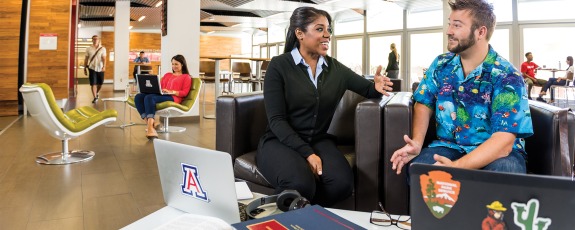
Overrule the Ordinary
Your legal education will teach you to “think like a lawyer,” honing your analytical skills, developing better critical thinking, and acquiring the professional skills you need no matter where your education takes you.
University of Arizona Law offers a mix of qualities no other school can match: a small, top-ranked program in the heart of a nationally acclaimed university , exceptional employment outcomes, the most global JD program in the country, and the chance to spend your law school years in Tucson , a cool, eclectic city with a diverse population of nearly one million people named the #4 best city for millennials by Money magazine .
Apply today
LSAT and GRE
of students received scholarships (2022-23)
ultimate bar passage (Class of 2021)
On-Demand Info Session
Register for an on-demand video information session to learn even more about earning a JD from University of Arizona Law.
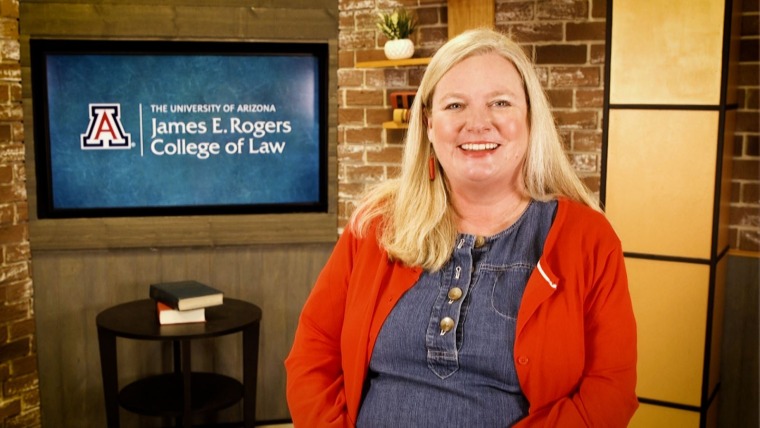
Register for the Online Info Session
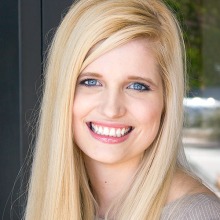
"I applied to Arizona Law because I was impressed with its reputation for helping graduates find jobs that actually require a JD, and because it has a fantastic student-to-professor ratio.
But with such an important decision at stake, I wasn’t completely convinced until I visited the campus. Arizona Law is a famously collegial law school, but you don’t fully appreciate what that means until you experience it firsthand. It’s a different atmosphere than I expected to find at a top-tier law school.
That first impression has held true throughout my time here. For instance, when I missed class because my son was sick, I had class notes waiting in my inbox from three different classmates before I even had a chance to ask! I am grateful every day that I chose to come here. Frankly, I couldn't imagine going anywhere else!”
— Kate Hollist, Class of 2016

Get the Job You Want
Learn at Arizona Law, and practice law anywhere. Our Career Development Office, led by former practicing attorneys, helps our graduates achieve a record of strong employment.
Learn about careers
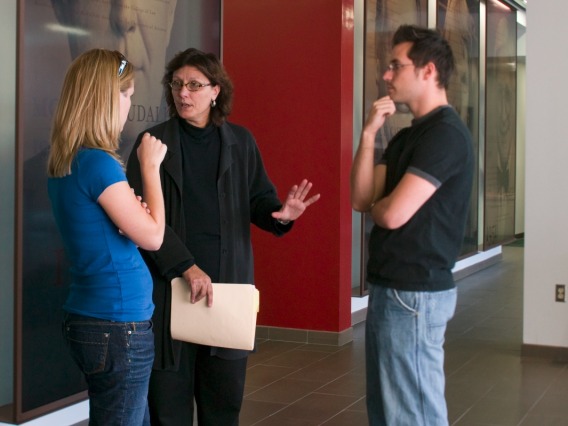
Direct Access to Faculty
Our faculty actively practice, shape and teach the law, and students cite their accessibility as one of Arizona Law’s best features.
Meet our faculty
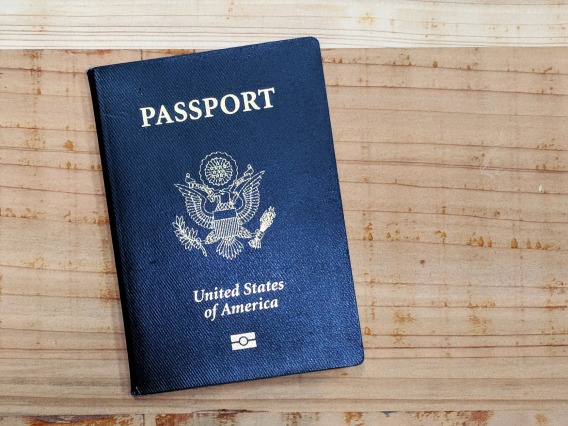
Inherently Global
With one of the most globally diverse student bodies and myriad international dual degree partners, Arizona Law prepares you for the global workforce.
Explore our global reach
Tuition and Costs
University of Arizona Law provides an outstanding legal education at a cost lower than private law schools and many public university law schools, particularly those of comparable quality.
Our robust scholarship program reduces the cost of law school even further, and you will be automatically considered for scholarships when you apply.
Our competitive TechLaw Fellowship for STEM students and professionals offers full-tuition scholarships plus an additional stipend and unique academic and career opportunities that cannot be matched by any law school in the country.
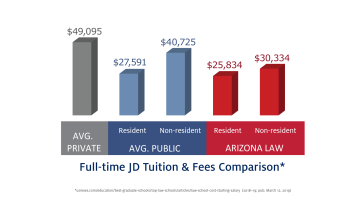
See JD program tuition and costs
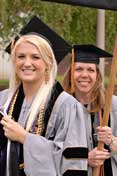
See why the U of I College of Law is an excellent choice for your academic and professional success. See our viewbook
- Admitted Students
- Application Status
- Tuition & Costs
Emphasis Areas
- Business Law
- Environmental Law
- LSAT Prep Courses
- Student Accounts

Academic Administration
Important dates, class schedules, registration, honor code, and other general information for students. More Information
- Academic Calendar
- Room Calendars
Get Involved
- Student Organizations
- Pro Bono Program
- Externships
- Student Handbook
- Academic Success
- Law IT Services
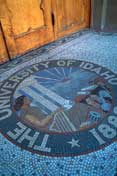
Faculty-Staff Handbook
The Faculty-Staff Handbook provides an online reference for University of Idaho policies. View the FSH
Common Tools
- Human Resources
- Recreation and Wellbeing
- Administrative Procedures Manual (APM)
- Dates & Deadlines
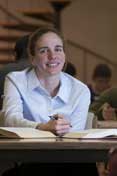
You Can Inspire The Future
Support our students and programs at the College of Law. Inspire the future
Stay Connected
- Meet our Alumni
- Alumni Awards
- Law Advisory Council
- U of I Alumni Assoc.
- Law Library Service
- Find a Vandal
- VandalStore
- Liberty Mutual Benefits
College of Law
Email: [email protected]
Web: College of Law
Physical Address: Menard 101 711 S. Rayburn Drive
Mailing Address: College of Law University of Idaho 875 Perimeter Drive MS 2321 Moscow, ID 83844-2321 Main Office: 208-885-2255 Admissions: 208-885-2300 Legal Clinic: 208-885-6541 Office of the Dean: 208-364-4620
Fax: 208-885-5709
Physical Address: 501 W Front St, Boise, ID 83702
Mailing Address: 501 W Front St, Boise, ID 83702
Phone: 208-885-2255
Fax: 208-334-2176
Juris Doctor
Career information is not specific to degree level. Some career options may require an advanced degree.
Current Job Openings and Salary Range
in ID, WA, OR, MT and HI
Entry-Level
Senior-Level

- Career Options
- Judicial Law Clerk
- Administrative Law Judge, Adjudicator, or Hearing Officer
- Arbitrator, Mediator, or Conciliator
- Judge, Magistrate Judge, or Magistrate
- Law Teacher, Postsecondary
Regional Employment Trends
Employment trends and projected job growth in ID, WA, OR, MT & HI
*Job data is collected from national, state and private sources. For more information, visit EMSI's data sources page .
- Degree Prep
A Bachelor degree in any field is required. Applicants must also take the Law School Admissions Test (LSAT).
- Degree Roadmap
Juris Doctor takes three years. Concurrent degree programs vary.
- Professional Licensing
Completion of the program will make you eligible for the standard license to practice Law by individual state by taking the Bar Exam for that state.
- Scholarships
Over $700,000 awarded annually
- Financial Aid
To find out about deadlines, scholarships and eligibility requirements, please visit the University of Idaho Financial Aid Office .
- Hands-on Learning
- Live Client Clinics
- Externship Program
- Practice Skills Taught in Doctrinal Courses
- Multicultural Law Student Association
- Federalist Society
- American Civil Liberties Union
- Board of Student Advocates (Moot Court & Mock Trial)
- Business Law Society
- Internships
- Idaho Legal Aid Services
- Ada County Prosecutor’s Office
- Holland & Hart LLP
- Stoel Rives LLP
- St. Lukes Health Systems
- Job Openings and Salary Range
- Employment Trends
Training for Public Service
Through intensive training, you will gain the skills needed to analyze, interpret and apply the law in your future career in law, business or public service. Students learn through hands-on externships, a pro bono program and six legal clinics. You will graduate qualified to take the bar exam anywhere in the US. The program offers eight areas of emphasis and dual-degree options.
- Comprehensive emphasis areas of study in Business Law & Entrepreneurship, Native American Law, Natural Resources & Environmental Law, and Litigation and Alternative Dispute Resolution
- Innovative second and third year in Boise
- Nationally recognized experiential clinic, semester in practice, and externship programs
- Small student body that promotes excellent faculty relationships and engagement
Recent News
Read about our students, our faculty and the latest happenings within the College of Law.
Read about our students and faculty
Meet our Faculty
Our faculty members have diverse backgrounds in judiciary, government service, private practice and more.
Cybersecurity Guide
From scholar to expert: Cybersecurity PhD options
In this guide
- Industry demand
- 2024 rankings
- Preparation
- Considerations
- School listings
The cybersecurity landscape is not just growing—it’s evolving at a breakneck pace. And what better way to stay ahead of the curve than by pursuing a PhD in cybersecurity?
This advanced degree is no longer confined to the realm of computer science. Today, it branches into diverse fields like law, policy, management, and strategy, reflecting the multifaceted nature of modern cyber threats.
If you’re looking to become a thought leader in this dynamic industry, a PhD in cybersecurity offers an unparalleled opportunity to deepen your expertise and broaden your horizons.
This guide is designed to give prospective cybersecurity PhD students a general overview of available cybersecurity PhD programs. It will also outline some of the factors to consider when trying to find the right PhD program fit, such as course requirements and tuition costs.
Industry demand for PhDs in cybersecurity
Like other cutting-edge technology fields, until recently, cybersecurity PhD programs were often training grounds for niche positions and specialized research, often for government agencies (like the CIA, NSA, and FBI), or closely adjacent research organizations or institutions.
Today, however, as the cybersecurity field grows to become more pervasive and consumer-oriented, there are opportunities for cybersecurity PhDs to work at public-facing companies like startups and name-brand financial, software, infrastructure, and digital service firms.
One trend that is emerging in the cybersecurity field is that cybersecurity experts need to be well-versed in a variety of growing threats. If recent headlines about cybersecurity breaches are any indication, there are a number of new attack vectors and opportunities for cybercrime and related issues. Historically, committing cybercrime took resources and a level of sophistication that required specialized training or skill.
But now, because of the pervasiveness of the internet, committing cybercrime is becoming more commonplace. So training in a cybersecurity PhD program allows students to become an experts in one part of a growing and multi-layered field.
In fact, this trend of needing well-trained, but adaptable cybersecurity professionals is reflected by the move by cybersecurity graduate schools to offer specialized master’s degrees , and many companies and professional organizations offer certifications in cybersecurity that focus on particular issues related to cybersecurity technology, cybersecurity law , digital forensics , policy, or related topics.
That said, traditional research-oriented cybersecurity positions continue to be in demand in academia and elsewhere — a trend that will likely continue.
One interesting facet of the cybersecurity field is trying to predict what future cybersecurity threats might look like and then develop tools and systems to protect against those threats.
As new technologies and services are developed and as more of the global population begins using Internet services for everything from healthcare to banking — new ways of protecting those services will be required. Often, it’s up to academic researchers to think ahead and examine various threats and opportunities to insulate against those threats.
Another key trend coming out of academic circles is that cybersecurity students are becoming increasingly multidisciplinary.
As cybersecurity hacks impact more parts of people’s everyday lives, so too do the academic programs that are designed to prepare the next generation of cybersecurity professionals. This emerging trend creates an enormous amount of opportunity for students who have a variety of interests and who are looking to create a non-traditional career path.
The best cybersecurity PhD programs for 2024
Capella university, georgia institute of technology, northeastern university, marymount university, school of technology and innovation, nova southeastern university, college of computing & engineering, purdue university, stevens institute of technology, worcester polytechnic institute, university of illinois at urbana-champaign, mississippi state university, new york institute of technology.
These rankings were compiled from data accessed in November 2023 from the Integrated Post-Secondary Education Data System (IPEDS) and College Navigator (both services National Center for Education Statistics). Tuition data was pulled from individual university websites and is current as of November 2023.
What is required to get a PhD in cybersecurity?
Good news first: Obtaining a PhD in a field related to cybersecurity will likely create tremendous employment opportunities and lead to interesting and dynamic career options.
Bad news: Getting a PhD requires a lot of investment of time and energy, and comes with a big opportunity cost (meaning you have to invest four to five years, or longer, or pursue other opportunities to obtain a doctoral degree.
Here’s a quick breakdown of what is required to get a PhD in cybersecurity. Of course, specific degree requirements will vary by program. One growing trend in the field is that students can now obtain degrees in a variety of formats, including traditional on-campus programs, online degree programs , and hybrid graduate degree programs that combine both on-campus learning with online learning.
Related resources
- Online PhD in cybersecurity – A guide to finding the right program
- Cybersecurity degree programs
- Podcast episodes and expert interviews
Preparing for a cybersecurity doctorate program
Cybersecurity is a relatively new formalized technology field, nonetheless, there are several ways that students or prospective PhD candidates can get involved or explore the field before and during a graduate school program. A few examples of ways to start networking and finding opportunities include:
Join cybersecurity organizations with professional networks
Specialized professional organizations are a good place to find the latest in career advice and guidance. Often they publish newsletters or other kinds of information that provide insights into the emerging trends and issues facing cybersecurity professionals. A couple of examples include:
The Center for Internet Security (CIS) is a non-profit dedicated to training cybersecurity professionals and fostering a sense of collaboration. The organization also publishes information and analysis of the latest cybersecurity threats and issues facing the professional community.
The SANS Institute runs several different kinds of courses for students (including certification programs) as well as ongoing professional cybersecurity education and training for people working in the field. The organization has several options including webinars, online training, and live in-person seminars. Additionally, SANS also publishes newsletters and maintains forums for cybersecurity professionals to interact and share information.
Leverage your social network
Places like LinkedIn and Twitter are good places to start to find news and information about what is happening in the field, who the main leaders and influencers are, and what kinds of jobs and opportunities are available.
Starting a professional network early is also a great opportunity. Often professionals and members of the industry are willing to provide guidance and help to students who are genuinely interested in the field and looking for career opportunities.
Cybersecurity competitions
Cybersecurity competitions are a great way to get hands-on experience working on real cybersecurity problems and issues. As a PhD student or prospective student, cybersecurity competitions that are sponsored by industry groups are a great way to meet other cybersecurity professionals while getting working on projects that will help flesh out a resume or become talking points in later job interviews.
The US Cyber Challenge , for example, is a series of competitions and hackathon-style events hosted by the Department of Homeland Security Science and Technology Directorate and the Center for Internet Security to prepare the next generation of cybersecurity professionals.
Internships
Internships also continue to be a tried and true way to gain professional experience. Internships in technical fields like cybersecurity can also pay well. Like the industry itself, cybersecurity internships are available across a wide range of industries and can range from academic research-oriented to more corporate kinds of work.
Things to consider when choosing a cybersecurity PhD program
There are many considerations to evaluate when considering any kind of graduate degree, but proper planning is essential to be able to obtain a doctoral degree. It’s also important to note that these are just guidelines and that each graduate program will have specific requirements, so be sure to double-check.
What you will need before applying to a cybersecurity PhD program:
- All undergraduate and graduate transcripts
- A statement of intent, which is like a cover letter outlining interest
- Letters of reference
- Application fee
- Online application
- A resume or CV outlining professional and academic accomplishments
What does a cybersecurity PhD program cost?
Obtaining a PhD is a massive investment, both in terms of time and money. Cybersecurity PhD students are weighing the cost of becoming an expert in the field with the payoff of having interesting and potentially lucrative career opportunities on the other side.
Degree requirements are usually satisfied in 60-75 hours, so the cost of a doctoral degree can be well into the six-figure range. Here’s a more specific breakdown:
Tuition rates
The Cybersecurity Guide research team looked at 26 programs that offer a cybersecurity-related PhD degree. Here’s a breakdown of tuition rates (all figures are based on out-of-state tuition).
$17,580 is the most affordable PhD program option and it is available at the Georgia Institute of Technology.
$86,833 is the average cost of a cybersecurity PhD and is based on tuition rates from all 26 schools.
$197,820 is the most expensive cybersecurity PhD program and is available at Indiana University Bloomington.
The good news is that by the time students get to the PhD level there are a lot of funding options — including some graduate programs that are completely funded by the university or academic departments themselves.
Additionally, funding in the form of research grants and other kinds of scholarships is available for students interested in pursuing cybersecurity studies.
One example is the CyberCorps: Scholarships for Service program. Administered by the National Science Foundation, PhD students studying cybersecurity are eligible for a $34,000 a year scholarship, along with a professional stipend of $6,000 to attend conferences in exchange for agreeing to work for a government agency in the cybersecurity space after the PhD program.
Frequently asked questions about cybersecurity PhD programs
Most traditional and online cybersecurity graduate programs require a minimum number of credits that need to be completed to obtain a degree. On average, it takes 71 credits to graduate with a PhD in cybersecurity — far longer (almost double) than traditional master’s degree programs. In addition to coursework, most PhD students also have research and teaching responsibilities that can be simultaneously demanding and great career preparation.
At the core of a cybersecurity doctoral program is a data science doctoral program, you’ll be expected to learn many skills and also how to apply them across domains and disciplines. Core curriculums will vary from program to program, but almost all will have a core foundation of statistics.
All PhD candidates will have to take a series of exams that act as checkpoints during the lengthy PhD process. The actual exam process and timing can vary depending on the university and the program, but the basic idea is that cybersecurity PhD candidates generally have to sit for a qualifying exam, which comes earlier in the program (usually the winter or spring of the second year of study), a preliminary exam, which a candidate takes to show they are ready to start the dissertation or research portion of the PhD program, and a final exam where PhD students present and defend their research and complete their degree requirements.
A cybersecurity PhD dissertation is the capstone of a doctoral program. The dissertation is the name of a formal paper that presents the findings of original research that the PhD candidate conducted during the program under the guidance of faculty advisors. Some example cybersecurity research topics that could potentially be turned into dissertation ideas include: * Policies and best practices around passwords * Ways to defend against the rise of bots * Policies around encryption and privacy * Corporate responsibility for employee security * Internet advertising targeting and privacy * The new frontier of social engineering attacks * Operation security (OpSec) strategy and policy * Network infrastructure and defense * Cybersecurity law and policy * The vulnerabilities of biometrics * The role of ethical hacking * Cybersecurity forensics and enforcement
A complete listing of cybersecurity PhD programs
The following is a list of cybersecurity PhD programs. The listing is intended to work as a high-level index that provides enough basic information to make quick side-by-side comparisons easy.
You should find basic data about what each school requires (such as a GRE score or prior academic work) as well as the number of credits required, estimated costs, and a link to the program.
Arizona State University
- Aim: Equip students with in-depth expertise in cybersecurity.
- Study Modules: Delve into advanced computer science subjects and specific cybersecurity courses.
- Research Component: Students undertake groundbreaking research in the cybersecurity domain.
Carnegie Mellon University
- CNBC Collaboration: A joint effort between Carnegie Mellon and the University of Pittsburgh to train students in understanding the brain's role in cognition.
- Training Program: Students take four main neuroscience courses and participate in seminars and ethics training.
- Course Integration: Whether students have a B.S. or M.S. degree, they can combine the CNBC and ECE Ph.D. courses without extra workload.
Colorado School of Mines
- Research Focus: Cybersecurity: Studying online security and privacy.
- Cost and Financial Aid: Provides details on program costs and available financial support.
- Current Mines Community: Offers specific information for those already affiliated with Mines.
Indiana University Bloomington
- Focus Areas: Options include Animal Informatics, Bioinformatics, Computer Design, and more.
- Information Sessions: The university holds events to guide potential students about admissions and study options.
- Minor Requirement: All Ph.D. students must complete a minor, which can be from within the Luddy School of Informatics or from another approved school at IU Bloomington.
Iowa State University
- Details: The program is open to both domestic and international students.
- Time to Complete: Ph.D.: About 5.2 years
- Goals: Students should gain deep knowledge, follow ethics, share their findings, and do advanced research if they're writing a thesis.
- Learning Goals: Master core areas of Computer Science, achieve in-depth knowledge in a chosen subfield, obtain expertise to perform original research, and demonstrate the ability to communicate technical concepts and research results.
- Duration: Median time to earn the doctorate is 5.8 years.
- Application Information: The program is open to both domestic and international students.
- Program's Aim: The Ph.D. program is tailored to produce scholars proficient in leading research initiatives, undertaking rigorous industrial research, or imparting high-level computer science education.
- Entry Routes: The program welcomes both students holding a B.S. degree for direct admission and those with an M.S. degree.
- Dissertation's Role: It stands as the pivotal component of the Ph.D. journey. Collaboration between the student, their dissertation director, and the guiding committee is essential.
Naval Postgraduate School
- Program Essence: The Computer Science Ph.D. is a top-tier academic program in the U.S.
- Admission Criteria: Open to military officers from the U.S. and abroad, U.S. governmental employees, and staff of foreign governments.
- Curriculum: Designed to deepen knowledge in computing, with a focus on the needs of the U.S. Department of Defense.
- Emphasis on Research: The college showcases its strength in research through sections dedicated to Research Areas, affiliated Institutes & Centers, ongoing Research Projects, and specialized Labs & Groups.
- Holistic Student Growth: The college promotes a comprehensive student experience, spotlighting Clubs & Organizations, campus Facilities, and tech Systems.
- Guidance for Future Students: Provides tailored insights for students considering joining at various academic levels, from Undergraduate to PhD.
- Broad Learning: The program covers many areas, from software and policy to psychology and ethics, reflecting the wide scope of cybersecurity.
- Course Design: Students learn foundational security topics first and then dive into specialized areas, like cyber forensics.
- Successful Alumni: Past students now work in places like NASA, Amazon, and Google.
- Feature: Students can apply to up to three different campuses and/or majors using a single application and fee payment.
- Preparing for a Globalized World: Courses such as Global Supply Chain Management equip students for international careers.
- Tech-Forward Curriculum: Purdue's commitment to advanced technology is evident.
Rochester Institute of Technology
- Cyberinfrastructure Focus: The program dives deep into how hardware, data, and networks work together to create secure and efficient digital tools.
- Broad Applications: The program uses computing to solve problems in fields like science, arts, and business.
- Success Rate: All RIT graduates from this program have found relevant roles, especially in the Internet and Software sectors.
Sam Houston State University
- Program's Objective: The course aims to nurture students to be technically adept and also to take on leadership roles in the digital and cyber forensic domain across various industries.
- Assessments: Students undergo comprehensive tests to evaluate their understanding.
- Research Paper (Dissertation): Once students reach the doctoral candidacy phase, they must produce and defend a significant research paper or dissertation.
- Funding: All Ph.D. students get financial help, so they can start their research right away.
- Teachers: The program has top experts, including those who've made big discoveries in computer science.
- Research Areas: Students can study the latest topics like AI, computer vision, and online security.
The University of Tennessee
- Study Areas: Options include Cybersecurity, Data Analytics, Computer Vision, and more.
- Tests: You'll have to pass a few exams, including one when you start, one before your final project, and then present your final project.
- Courses: Some specific courses are needed, and your main professor will help decide which ones.
- Big Exam: Before moving forward, you'll take a detailed exam about your research topic.
- Final Step: You'll present and defend your research project to experts.
- Overview: This program is for those with a degree in Computer Science or similar fields. It has special focus areas like Cybersecurity and Machine Learning.
University of Arizona
- Study Plan: Students start with learning research basics and then dive into modern tech topics.
- Support for Students: All PhD students get funding that covers their studies, a stipend, and health insurance. Money for travel to conferences is also available.
- After Graduation: Alumni work at top universities and big companies like Google and Microsoft.
University of California-Davis
- About the Program: Students engage in deep research, ending with a dissertation.
- Jobs After Graduation: Roles in companies or academic positions.
- Vibrant Community: Beyond academics, students join a supportive community, enriching their Ph.D. experience.
University of Colorado - Colorado Springs
- Recognition: UCCS is recognized by the National Security Agency (NSA) and the Department of Homeland Security for excellence in Information Assurance Education.
- Course Approval: The NSA has approved UCCS's courses as meeting national security training standards.
- Overview: This program focuses on vital areas like cyber security, physical security, and homeland security.
University of Idaho
- Partnership with NSA and DHS: The university is part of a program to boost cyber defense education.
- Recognition: The University of Idaho is among the institutions recognized as Centers of Academic Excellence in Cyber Defense.
- Objective: To minimize vulnerabilities in the national information infrastructure.
- Overview: This program is meticulously crafted to deliver premier legal education to its students.
- Courses: Encompasses a balanced mix of traditional legal doctrines, theoretical viewpoints, and hands-on practical experiences.
- Aim: The primary objective is to equip students with top-notch legal education.
University of Missouri-Columbia
- Seminars: PhD students should attend 20 seminars. If they were previously Master's students, their past attendance counts.
- Timeline Requirements: Comprehensive Exam must be completed within five years of starting the program.
- Dissertation and Publication: At least one journal paper must be submitted, accepted, or published.
University of North Carolina at Charlotte
- Faculty: The faculty members are renowned for their impactful research contributions on a global scale.
- Curriculum: The curriculum is versatile, catering to individuals aiming for academia as well as those targeting roles in the corporate, commerce, or public sectors.
- Program: A blend of theoretical and hands-on research is emphasized, offering a well-rounded educational experience.
Virginia Tech
- Seminars and Ethics: Students attend special seminars and complete training on scholarly ethics and diversity.
- Guidance: Each student gets a faculty advisor. A group of faculty members, called a committee, also guides them.
- Major Exams: Students go through four main stages: a qualifying process, a preliminary proposal, a research presentation, and a final defense.
- Strong Research: WPI's PhD program is recognized for its excellent research contributions.
- Practical Focus: The program teaches students to tackle real tech challenges.
- Modern Labs: Students use the latest labs like the Human-Robot Interaction Lab.
Dakota State University
- Program Goal: Train students to handle and prevent cyber threats.
- Awards: The university has received top cybersecurity awards.
- What You'll Learn: Research skills, cyber defense techniques, and ethical decision-making.
New Jersey City University, College of Professional Studies
- About: Focuses on best practices in areas like national security, cyber defense, and crisis communication.
- Recognitions: The program has been honored by the National Security Agency since 2009 and was recognized for excellence in intelligence studies.
- Jobs: Graduates are prepared for top roles in sectors like government and education.
- Program Content: The course dives deep into modern cybersecurity topics, from new tech and artificial intelligence to specialized research areas.
- Location Benefits: The university is near many cybersecurity companies and government agencies, giving students unique opportunities.
- For Working People: It's crafted for professionals, allowing them to experience various cybersecurity roles, from tech firms to government.
- Completion Time: Students have up to ten years from starting to finish their dissertation.
- Program: Trains students for roles in academia, government, and business.
- Multidisciplinary Approach: The program combines both technical and managerial aspects of cybersecurity, offering a comprehensive understanding of the field.
The University of Rhode Island
- Research Focus: The Ph.D. program is centered around a big research project in Computer Science.
- Qualifying Exams: Students take exams on core topics, but some might get exemptions if they're already skilled in certain areas.
- Equal Opportunity: The University of Rhode Island is committed to the principles of affirmative action and is an equal opportunity employer.
University of North Texas
- Team Effort: The program is a collaboration between various UNT departments for a well-rounded view of cybersecurity.
- Goals: The course aims to develop critical thinkers who are passionate about the role of information in our lives and can work across different fields.
- Skills Gained: Students will learn about research, teaching methods, decision-making, leadership, and analyzing data.
New York University Tandon School of Engineering
- Scholarships: Many students get scholarships that pay for tuition and give a monthly allowance.
- Research Interest: Research areas include cybersecurity, computer games, web search, graphics, and more.
- Experience: Students can also research in NYU's campuses in Shanghai or Abu Dhabi.
- One Degree for All: Every student gets the same Ph.D., regardless of their specific area of study.
- Research Focus: The program emphasizes deep research and prepares students for advanced roles.
- Major Project: Students work on a big research project, adding new knowledge to the computing world.
- Program: Prepares students for leadership roles in different sectors.
- Opportunities: Qualified students might get opportunities as Research or Teaching Assistants.
- Overview: Focuses on advanced research and modern technologies.
Augusta University
- Goal: The program prepares students for research roles and to make new discoveries in tech.
- Benefits: A Ph.D. opens up leadership opportunities in tech sectors.
- Overview: It focuses on new discoveries in areas like security, artificial intelligence, and virtual reality.
University of Texas at San Antonio
- Financial Support: Full-time students can get funding, which covers tuition and offers roles like teaching assistants.
- Job Prospects: UTSA trains students for jobs that are in high demand, using data from official sources.
- Overview: The program focuses on in-depth research and teaching.
University of Central Florida
- Mix of Subjects: Students can take courses from different areas, giving them a broad view of security topics.
- Many Job Options: Graduates can work in government, big companies, or teach in universities.
- Hands-on Learning: The program offers research, study projects, and internships for real-world experience.
International and Comparative Law Research Scholars

Each year we welcome 15 to 25 scholars from around the globe into our community as non-degree International and Comparative Law Research Scholars to conduct research and engage fully in the intellectual and social life of Michigan Law School. Visits vary in length from a few weeks to one year.
As you can imagine, we receive many more excellent applications than we could ever accept, so those chosen are senior scholars with impressive accomplishments, mid-career intellectuals who are beginning to make their mark, or early-career researchers who show special promise for the future. While they may come from many walks of life—junior or senior faculty members in law or related fields, doctoral or postdoctoral students, and public service practitioners—in all cases, they are exploring areas of law that intrigue our faculty members and for which we can provide meaningful academic support.
International and Comparative Law Research Scholars pay a fee of $2,500 for each semester or $5,000 for each full academic year in residence, prorated for stays of less than a semester. Requests for fee reductions or waivers are considered on a case-by-case basis.
Research Scholar Program Privileges
With the intention of ensuring that all our Research Scholars have productive, lively and satisfying experiences while they are with us, our program includes the following privileges:
- Assigned personal workspace (private office or individual workstation) within a large suite that is dedicated solely to Research Scholars and SJD students.
- Attend JD classes with the permission of the professor.
- Access the Law School’s extensive library collections and first-rate research facilities, including Westlaw and Lexis/Nexis.
- Access the library resources of the larger University.
- Participate in a weekly colloquium of Michigan Research Scholars and SJD students to discuss works in progress.
- Assist in organizing the Michigan Law School Junior Scholars Conference.
- Attend workshops, lectures, and other events.
- Engage with the broader University campus, including other schools, departments and centers.
Program Participants
Most recently, our research scholar program has included faculty members from Kyoto University in Japan, the University of Osnabrueck in Germany, Peking and Renmin universities in Beijing, the University of the Philippines and of Aix-Marseille in France, as well as the University of St. Gallen in Switzerland; a counsel to the Slovenian Ministry of Justice, the former chairperson of the Irish Society for European Law; staff members of the Japanese and Korean Ministries of Justice; a consultant to the UNHCR office in Morocco and a policy adviser to the Danish Refugee Council; counsel to the Brazilian legislature; a deputy chief at the Supreme Commercial Court of the Russian Federation; and doctoral students from major universities all over the world. Their research interests have encompassed a broad array of legal and interdisciplinary subjects.
How to Apply
You will need a Google account to access, save, and submit applications.
Next, please complete the online Michigan Law Research Scholar application form. The application form asks for biographical data, educational and work history, proposed dates of stay, and the names of the University of Michigan Law faculty with whom you would like to confer during your stay.
Please note that you are not expected to contact Michigan Law professors in advance of your application. We will notify the appropriate faculty on your behalf as part of the admission process to gauge their level of interest.
You will also be asked to upload the following materials with your application:
- CV or resume
- Description of your intended research project and its purpose (e.g. doctoral thesis, journal publication), as well as a description of how a research scholar visit will be of value
- Two letters of reference from academics familiar with your work
- Level of English fluency, in particular speaking and listening comprehension, and a description of your training and experience in EnglishTOEFL or IELTS score and/or academic records may be requested on a case by case basis.
Apply Now
International and Comparative Law Research Fellowships
Applicants to the Law School’s research scholar program may be eligible for very limited supplemental funding, which is granted on a competitive basis and considerate of need.
After submission of the applicant’s International and Comparative Law Research Scholar application, those interested in being considered for these fellowships will be asked to submit a separate fellowship application.
International and Comparative Law Research Fellowships are intended to assist with living expenses while researchers are in full-time residence. Most research scholars are supported by funds from other sources, such as Fulbright or sabbatical leave salary from their home university. Because of stiff competition for Michigan Law funding, applicants are encouraged to seek alternate sources of support.
Due to funding limitations, we are not in a position to provide support for accompanying family members.
Deadline: January 15
The application deadline for the International and Comparative Law Research Scholar Program and for International and Comparative Law Research Fellowships is January 15 for visits proposed in the following summer, fall, or winter terms (June through May).
Applicants are encouraged to apply to multiple institutions as the selection process is competitive. Although applications are welcome at any time during the year, those who apply after January 15 risk that space and funding may no longer be available.
Research Scholars
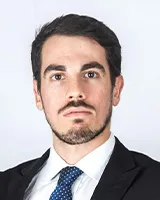
Bio: Luís Armando Saboya is a Brazilian lawyer and professor. He holds a degree in Law from the University of Fortaleza, a postgraduate degree in Business Law and Management from the University of Fortaleza, and a master’s degree in Constitutional Law from the University of Fortaleza. Currently, he is a Ph.D. candidate in Commercial Law at the University of São Paulo.
Research Focus: Luis’ research focuses on the rights of minority shareholders in cases of Judicial Recovery.
Languages: Portuguese (native), Spanish (fluent), French (beginner-level proficiency)
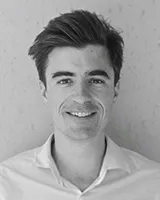
Bio: Maxim Bönnemann is a research fellow at Humboldt University Berlin and the Kassel Institute for Sustainability. In 2022 he defended his PhD in the law and politics of Special Economic Zones at Humboldt University for which he was awarded the Law School Prize for Best Dissertation in Public Law. Since 2021, he has also been a permanent editor of the Verfassungsblog, covering comparative constitutional and environmental law. Maxim has been a visiting researcher at the National Law University, Delhi, and at the Centre for Policy Research ( CPR ). Before his legal studies, he worked for a human rights NGO in Moscow. Maxim has authored several papers and book chapters on comparative legal theory and has edited a book on “The Global South and Comparative Constitutional Law” ( OUP , 2020).
Research Focus: Maxim’s main research interests lie in comparative legal theory, political institutions and international economic law. During his stay at Michigan he will pursue a project on the role of non-majoritarian institutions in environmental and climate governance, in addition to a comparative project on the evolution of national Special Economic Zone laws.
Languages : German (native), Russian (proficient), French (elementary)
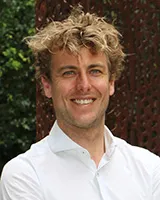
Bio: Jonathan Bonnitcha is an Associate Professor, in Law at the University of New South Wales. He holds the degrees of DP hil, MP hil and BCL from the University of Oxford, where he studied as a Rhodes scholar, and the degrees of LLB and BE c from the University of Sydney.
Jonathan’s research examines international and domestic legal regimes governing foreign investment. He is the author of two books on investment treaties, including (with Lauge Poulsen and Michael Waibel) The Political Economy of the Investment Treaty Regime.
Much of Jonathan’s research is inter-disciplinary. His article (with Emma Aisbett) ‘A Pareto Improving Compensation Rule for Investment Treaties’ won the John Jackson prize for the best article published in the Journal of International Economic Law in 2021. A forthcoming article (with Zoe Phillips Williams) in Law & Policy empirically examines the impact of investment treaties on domestic governance in developing countries, through cross-country quantitative analysis and a detailed qualitative case-study on Myanmar.
Research: Jonathan is currently working on two research projects. The first (with Taylor St John) is a comparative study of domestic investment laws. The project seeks to identify and explain shifts in the functions and content of national investment laws over time and space. The second (with Zhenyu Xiao) uses a series of case studies from across the Belt and Road Initiative to explore the legal and political dynamics in renegotiation of infrastructure contracts between Chinese foreign investors and host governments.
Languages: Spanish (intermediate); Burmese (basic)

Bio: Mireille is a doctoral student in legal history and civil law at Université Laval’s Faculty of Law in cotutelle with the Sciences Po Law School in Paris. She is a member of the Groupe de recherche sur les humanités juridiques. Mireille holds a bachelor’s degree in civil law and common law from the McGill Faculty of Law (2016) and a master’s degree in law and society from the University of Victoria (2018). Her master’s thesis focused on the intellectual contexts of the 1900 Comparative Law Congress in Paris. A member of the Quebec Bar since 2018, she worked as a law clerk at the Quebec Court of Appeal from 2018 to 2020.
Research Focus: Mireille’s research focuses on the contributions of civil society to the development of the civil law in the controversy over the nature and origins of legal personality in 19th-century France. In particular she looks at the way legal arguments published by lawyers and non-lawyers in the public press contribute to transforming the formal legal landscape in caslaw and doctrinal works. She is interested in developing a law and humanities research framework that can be applied in civil law countries, by mobilizing existing French-language theoretical resources and translating some English theoretical pieces to French.
Languages : French, Spanish
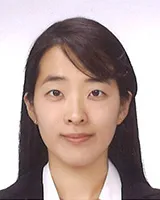
Bio : Jiwon Jheong has been a presiding judge of Geochang Branch of Changwon District Court of the Republic of Korea since 2020. She served as an associate judge of Seoul Central District Court from 2018 to 2020, and served as an associate judge of Ansan Branch of Suwon District Court from 2015 to 2018. She worked as a law clerk at Seoul High Court from 2014 to 2015. Before entering her profession, from 2012 to 2013, she was assigned to the two-year program at the Supreme Court of Korea’s Judicial Research and Training Institute. As a judge and a former law clerk, she has dealt with a wide range of labor cases as well as civil and criminal cases. She won 2020, 2021 Outstanding Judge of the Year by Gyeongsangnam-province Bar Association.
Jiwon is also a member of the Labor Law Community of the Supreme Court of Korea. She is one of the co-authors of the revised edition of “The Commentary on the Trade Unions and Labor Relations Adjustment Act ( TULRAA )”, a notable legal commentary in Korea.
She obtained a Bachelor of Arts degree from Seoul National University College of Humanities in 2012 and a Master of Laws degree in administrative law from Seoul National University School of Law in 2018.
Research Focus : Jiwon’s research first focuses on the criteria for deciding an appropriate bargaining unit in the U.S. legal system. Korea’s collective bargaining system is unique in that the TULRAA defines the bargaining unit as a business or workplace. However, the Labor Relations Commission ( LRC ) may divide the bargaining unit if there is any considerable disparity in working conditions, employment status, and bargaining practices. As there is a scarcity of precedents on the separation criteria of bargaining units, she hopes to deepen her understanding of the concrete criteria for determining an appropriate bargaining unit in the U.S.
The second part of her research focuses on the legal principle of joint employment in the U.S. A segment of Korean legal society argues that the adoption of the U.S. approach will represent an expansion of the nature of employers as a party to collective bargaining compared to the currently dominant interpretation under TULRAA . Scrutinizing the legal principle of joint employment in the U.S. will provide an additional perspective on the concept of an employer in a collective bargaining setting and determining whether it is possible to expand the concept of a client company in an in-house subcontracting relationship.
Languages : Korean (native), Chinese (intermediary), Japanese elementary)
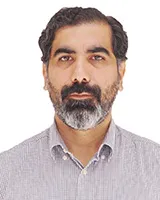
Bio: Dr. Muhammad Asif Khan is an Associate Professor at the Department of Law at the School of Social Sciences and Humanities in the National University of Science and Technology Islamabad, Pakistan. He is also the Head of the Department of Law. He holds an LL .B. from University of Peshawar (Pakistan), and an LL .M. from the University of Liverpool ( UK ) in Public International Law. He defended his PhD thesis “Adjusting Business Entities in a Globalized World: The Concept of an International Treaty Regulating Transnational Corporations against Violations of International Law” at the University of Salzburg (Austria) in May 2015. He has vast experience in teaching Public International Law and has served in different public sector universities in Pakistan. He has worked as a consultant with the International Committee of the Red Cross ( ICRC ) in Pakistan. He has also worked as a Business and Human Rights Specialist with the United Nations Development Program ( UNDP ) in the Decentralisation, Human Rights and Local Governance Project ( DHL ) in Pakistan. He has remained a member of the governance committee of teaching business and human rights forum for one year (2021-2022). He is an associate editor of the Manchester Journal of Transnational Islamic Law and Practice and the NUST Journal of Social Sciences and Humanities . His teaching activities include undergraduate and postgraduate courses on Public International Law, International Humanitarian Law, Business and Human Rights, Human Rights Law and Jurisprudence.
Research Focus: Dr. Khan’s research activities focus on Business and Human Rights along with issues related with International Humanitarian Law including cyber warfare. Previously, his research has focussed on the regulation of transnational corporations and other business entities through an international treaty. At Michigan he will be focussing on human rights protection through international investment law. The major outcome will be to explore the possibility of including human rights protection clauses in bilateral investment treaties and international investment agreements from the perspectives of South Asian states.
Languages: Pashto (native), Urdu and English
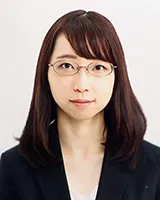
Bio: Kana Koyasu is a public prosecutor in Japan. She graduated from Waseda Law School with a Juris Doctor degree. After she passed the Japanese Bar Exam, she was appointed Public Prosecutor in December 2017 and has been working at the Sapporo District Public Prosecutors Office since 2023. She has been working in both the criminal and trial division of a number of District Public Prosecutors Offices for six years, gaining experience as a public prosecutor.
As a practicing lawyer, she has handled a number of difficult and complex criminal cases and has successfully prosecuted and argued a number of them. She was recommended by the Public Prosecutors Office in Japan and is currently beginning studies and research at the University of Michigan Law School as a research scholar.
Research Focus: Kana’s research focuses on recent developments in the legislation and practice of the criminal justice system in the U.S. In general, the U.S. is much quicker than other countries in reflecting changes in socioeconomic conditions in its legal systems and practice. There are many lessons that Japan should learn in order to timely catch socioeconomic changes and expeditiously take legislative and other actions in line with such changes. A general study of such recent legislation and its practice will be indispensable for the future development of the criminal justice system in Japan.
Languages: Japanese (native)
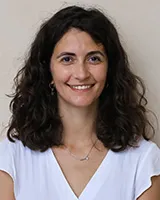
Bio: Isola Clara Macchia is a Ph.D. Researcher at the European University Institute in Florence, Italy. Her Ph.D. project investigates how the European Union enforces sustainable development clauses in its Free Trade Agreements, and whether variations in enforcement can be detected. She holds a Law degree from the University of Bologna and an MS c in European and International Public Policy from the London School of Economics. Isola Clara is a member of the Jean Monnet Module “Reforming the Global Economic Governance: The EU for SDG s in International Economic Law” research team at the University of Bologna, funded by the European Union. Before her Ph.D., she worked at the European Commission in the Directorate-General for Employment as a trainee on Directives’ implementation and infringement proceedings. She also served as a researcher at the Attorney General’s Office in Bologna working on regional cooperation in law enforcement and as a research assistant in international law at the University of Bologna.
Research Focus: At Michigan Law School, Isola Clara’s research will focus on the comparison between the EU ’s and U.S.’ approaches to enforcing international law, specifically in the area of trade and sustainable development. The choice to compare these two legal systems stems from the recurrent juxtaposition of the EU ’s cooperation-based model with the U.S.’ sanction-based one. The doctoral project investigates the mutual supportiveness of these two different approaches and whether their combination can help in ensuring a more consistent enforcement.
Languages: Italian (native), Spanish (intermediate), French (elementary)
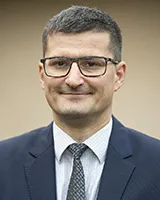
Bio: Csongor István Nagy is professor of law at the University of Szeged and research professor at the Center for Social Sciences of the Hungarian Research Network. He is a recurrent visiting professor at the Central European University (Budapest/New York/Vienna) and the Sapientia University of Transylvania (Romania), and an associate member at the Center for Private International Law at the University of Aberdeen, Scotland.
Csongor graduated at the Eötvös Loránd University of Sciences (dr. jur.), where he also earned a Ph.D. He received master ( LL .M.) and S.J.D. degrees from the Central European University and a D.Sc. degree from the Hungarian Academy of Sciences. He pursued graduate studies in Rotterdam, Heidelberg and Ithaca (New York) and had visiting appointments in the Hague, Munich, Brno, Hamburg, Edinburgh, London, Riga, Bloomington (Indiana), Brisbane, Beijing, Taipei and Rome.
He has more than 260 publications in English, French, German, Hungarian, Romanian and (in translation) in Croatian and Spanish.
Research Focus: The purpose of Csongor Nagy’s research in Ann Arbor is to put the current European rule-of-law debate in the context of comparative federalism and to provide a normative analysis through the lens of US constitutional ideas. Benchmarking Europe’s idiosyncratic “federalism” should be an important facet of the social discourse on the “European project”, and comparative federalism could contribute significantly to the resolution of the EU ’s current constitutional crisis. The path the EU is walking in the direction of an “ever closer Union” is far from unprecedented and, as far as multilevel constitutionalism is concerned, EU law may draw on the experiences of various regimes where centralized human rights protection and state constitutional identities coexist.
Languages : German (fluent), Hungarian (native), Romanian (fluent), French (working knowledge), Spanish (basic)
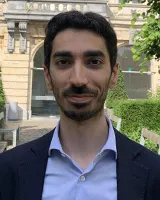
Bio : Since November 2021, Orlando has been a postdoctoral researcher at the Institute for European Law, KU Leuven. He obtained his master’s degree in law from the University of Pisa and his LL .M. in European, Comparative and International Law from the European University Institute. He holds an Honors Degree and a PhD in Law from Sant’Anna School of Advanced Studies in Pisa. He was a visiting graduate student at the University of Toronto. After his PhD, Orlando was an Emile Noël Global fellow at NYU School of Law and a postdoctoral researcher at LUISS Guido Carli in Rome. He is admitted to the Italian Bar and is author of Radical Constitutional Pluralism in Europe (Routledge, 2023).
Research Focus: At Michigan, Orlando will be working on the incorporation of federal rights and on the subsequent emergence of New Judicial Federalism in the United States. This study of the American system is part of a broader research project on the incorporation of rights and on the reaction at the level of the constituent units in federal and quasi-federal systems. Part of the broader ERC RESHUFFLE at the KU Leuven, the project aims at comparing the twofold dynamic of incorporation and subsequent contestation in the United States, Canada, and the European Union.
Languages : Italian (native), French (advanced).
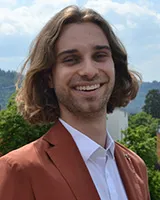
Bio: Johannes Thierer is a PhD student at the Chair of Constitutional Law (Professor Johannes Masing) at the University of Freiburg (Germany) where he also worked as a research assistant from 2020 till 2023. He studied law at the University of Freiburg and the School of Business, Economics and Law, University of Gothenburg (Sweden) and graduated in 2020. In his position as research assistant, he taught first and second semester students in constitutional law and European law.
He currently works on his thesis about the European and American single market. His doctoral research is funded the German National Academic Foundation.
Johannes’ interests include European law, constitutional law and comparative law.
Research Focus: Johannes’ PhD-project explores constitutional constraints against economic regulation of single member states in federal systems. It compares the fundamental freedoms of the European Union with the dormant Commerce Clause of the American Constitution. Whereas the doctrines and tests of the European Court of Justice and the US Supreme Court seem strikingly similar at first glance, Johannes’ aim is to examine the different notions and concepts behind the norms. Building on this, the project intends to rethink the EU ’s fundamental freedoms.
Languages: German (native), Swedish (intermediate), French (elementary)

Bio: Holding a Master’s Degree in Law magna cum laude , Justin started his career as a researcher at KUL euven (Belgium). After completing this first professional experience, he wanted to gain practical experience and help disadvantaged groups. Therefore, Justin worked as a legal counsel in an association helping young people. After this first practical experience, he undertook the bar traineeship. Justin was fully admitted to the bar after successfully passing the bar exam in 2016. While doing his bar traineeship, he also started working at UCL ouvain (Belgium) in 2012. Justin has been lecturing various courses as a teaching assistant and, since 2020, as a lecturer. In 2021, he defended his Ph.D. thesis dealing with distressed sovereign debts. Justin will conduct postdoctoral research at the University of Michigan Law School as a B.A.E.F. Fellow.
Research Focus: In his Ph.D. thesis, Justin analyzed the regulation of the so-called “vulture funds” and proposed a new judicial approach in order to better address their speculation on sovereign debts. He wishes to expand the scope of his research findings and undertake a deeper comparative analysis during a one-year postdoctoral research stay at the University of Michigan Law School. The goal of this research project is to outline a legislative proposal concerned with profiteering in sovereign debts. Such a proposal appears to be of paramount importance given the boom in borrowing following the pandemic crisis.
Languages : French (native) and Dutch (proficient)
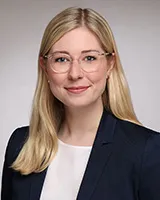
Bio : Eva-Maria Wettstein is a PhD student at the University of Cologne in Germany. She completed her state exam in law in 2022, which included a specialization on private international law, civil litigation, and economic law. Wettstein currently works as a trainee lawyer at Osborne Clarke’s Dispute and Risk Team in Cologne, where she is involved in an investor state arbitration proceeding. Additionally, she is a research fellow with the International Investment Law Centre Cologne ( IILCC , University of Cologne). In this capacity, Wettstein contributes to research and teaching in international investment law, arbitration law and public international law. As speaker of the German doctoral researchers’ network for international investment law, Wettstein regularly organizes events and encourages interaction between practitioners and academics.
Research Focus : Wettstein’s research focuses on the enforcement of investor-state arbitration awards between European investors and European Union member states (“intra- EU arbitration awards”) in the USA . The heart of the research question – whether intra- EU arbitration awards are enforceable in the USA – lies in the relationship of public international law, EU law and US law. Against this background, the research project aims to explore the interaction between courts of both sovereign EU member states and the USA as well as the interaction between their laws from an international legal perspective.
Languages : German (native), French (intermediate), Portuguese (elementary)
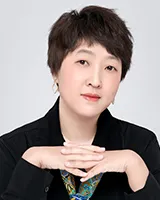
Bio: Ms.Xiaodan ZHU is a Chinese professor specialized in International Tax Law. In this capacity, Xiaodan works at the Law School, Dalian Ocean University, where she also is the director of both Bachelor and Master Degree programs in Law. Prof. Zhu obtained a Ph.D. in International Tax Law from Xiamen University of China in 2013. She has been a Grotius Research Scholar of the University of Michigan Law School during 2015 and 2016. Her teaching activities include courses on international economic law, China’s tax law, and international tax law. Her wiritings (including journal articles and monographs) have appeared in many Chinese and English academic publications. Moreover, Professor Zhu is also a brilliant practical expert in tax law. She has been seconded to the Department of Tax Policy, Ministry of Finance of China in 2020, and she has been a part-time tax lawyer for almost six years in China.
Research Focus: Professor Zhu’s research is titled “ Interaction Between the OECD ’s Global Minimum Tax Proposal and Tax Competition Rules: From the Perspective of China”, and the project addresses the following key issues: (1) What is the impact of OECD ’s Global Minimum Tax
Proposal (Pillar 2) on China’s tax competition rules and domestic tax law? (2)Is there any legal experience in US tax law relating to minimum income tax which is valuable for China? (3) How would China figure out the tax reforms conflict between international “Global Minimum Tax ” and domestic “Tax and Fee Reduction Policy”?
Languages: Mandarin Chinese (native)
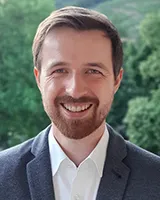
Bio: Niklas Burkart is a research assistant at the Institute for Public Law, Department of Constitutional Law at University of Freiburg. He currently works on his thesis about the conflict between Freedom of Art und Copyright. Burkart studied Law at Freiburg and Speyer. He was a research assistant at the Max Planck Institute for the Study of Crime, Security and Law. During his legal clerkship he worked at a law firm specialized in administrative law and at the German Federal Foreign Office, Department of Human Rights, in Berlin. Burkart coordinates the DFG (German Research Council) project “Handbook of Constitutional Law – German Constitutional Law from a Transnational Perspective”. In his position as research assistant, he teaches first and second semester students in constitutional law.
Research Focus: Burkart’s PhD-project explores the relationship between Freedom of Art and Copyright from a fundamental law perspective. The thesis is driven by the idea of strengthening Art without threatening Copyright. This requires to reveal the parts of Copyright that are not based on Freedom of Property but on Personality Rights. Given the fact that German Copyright Law is regulated by European Law, the thesis has to address not only German but also European Fundamental Rights. To contrast the results, the conflict between Freedom of Art and Copyright shall also be examined under US Law.
Languages: German (native), French (elementary)
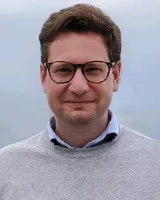
Bio: Andrew Cecchinato is a Marie Skłodowska-Curie Global Fellow at the University of Michigan Law School and the School of History at the University of St Andrews. He is PI of the Horizon 2020 project on John Selden’s Harmonic Jurisprudence. A European Interpretation of English Legal History . Previously, he was a postdoc in St Andrews, working on the ERC project Civil Law, Common Law, Customary Law: Consonance Divergence and Transformation in Western Europe from the late eleventh to the thirteenth centuries .
Andrew is book review editor for the American Journal of Legal History. He has received scholarships from the Max-Planck-Institute für europäische Rechtsgeschichte and the Robert H. Smith International Center for Jefferson Studies. He has also been a visiting researcher at the Robbins Collection in Civil and Religious Law, the Georgetown University Law Center, and the Library of Congress. He studied law at the University of Trento, where his PhD on The Legal Education of Thomas Jefferson won the faculty prize.
Research Focus: Andrew’s main research aims to repurpose the idea of Europe by studying how the seventeenth-century jurist, historian, and Hebraist John Selden harmonized the history of English law and the authority of the European legal tradition. His project will center on Selden’s effort to preserve and harmonize the history of English law within the inclusive order of nations recognized by a distinct reading of medieval and modern European jurisprudence. The research will thus focus on the cogent yet overlooked reasoning by which Selden proved that no law, however discrete, can rightfully be understood if isolated from the continuum of legal experience.
Languages: English and Italian (native), French and German (elementary)
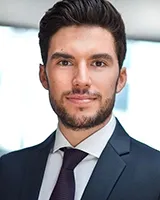
Bio: Fabian is a PhD Candidate in public international law at Gonville & Caius College, University of Cambridge. His doctoral research is funded by a W.M. Tapp Studentship and the German National Academic Foundation. Previously, Fabian was a Research Fellow at the Max Planck Institute for Comparative Public Law and International Law, Heidelberg, and read law in Hamburg (Dipl. Jur.) and Oxford (M.Jur.).
At the University of Cambridge, Fabian has supervised undergraduates and conducted workshops for Cambridge LL .M. students in International Investment Law and International Law as a Legal System. He is currently an Associate Editor at International Law in Domestic Courts ( OUP ) and an Assistant Editor for Investment Arbitration at Kluwer Arbitration Blog.
In recent years, Fabian has worked as a research assistant for Professor Campbell McLachlan, Professor Eyal Benvenisti and Sir Christopher Greenwood. In 2022, his article on informal communications to the ICJ was awarded the Rosalyn Higgins Prize of The Law & Practice of International Courts and Tribunals.
Research Focus: Fabian’s research interests lie in the areas of general international law, international dispute settlement, international investment law and German public law. His PhD project (“Self-Judgment in International Law”) investigates to what extent states can authoritatively auto-interpret international law. It traces the evolution of self-judgment throughout the history of international law, unearths links between self-judgment and the concept of obligation in international law, and assesses the approach of international courts and tribunals. Against this background, the project develops a theoretical and doctrinal framework to accommodate self-judgment in international law.
Languages: German (native), French (proficient, C1 ), Spanish (advanced, B1 / B2 ), Hindi (Basic), Italian (Basic)
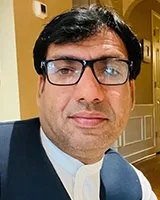
Bio : Hijratullah Ekhtyar is an International & Comparative Law Research Scholar of the University of Michigan Law School. He served as a lecturer at the Nangarhar University Faculty of Law and Political Science since 2012 to 2021, and also was provincial director for the Independent Administrative Reform and Civil Services Commission of Afghanistan in Nangarhar province since 2018 to 2021. Ekhtyar also worked as a local coordinator and journalist for the Institute for War and Peace Reporting ( IWPR ) in eastern provinces (Laghman, Nangarhar, Kunar, and Noristan) from 2011 to 2014. He served as a Lawyer and Provincial Commissioner for the Independent Electoral Compliant Commission ( IECC ) of Afghanistan in Nangarhar province from 2009 to 2011. Moreover, he served as an administrative clerk for the Economic Committee of the House of Representatives of the National Assembly of Afghanistan from 2008 to 2009. He also worked for Mediothek Afghanistan, a German based NGO as an in-charge of Academic and Cultural Affairs from 2007 to 2008.
He obtained LL .M degree in Sustainable International Development ( SID ) program from the University of Washington Law School in 2017, and completed his undergraduate studies in the Nangarhar University Faculty of Law and Political Science in 2008.
Ekhtyar participated in the University of Washington School of Law visiting scholar program in 2015, and attended the International Visitor Leadership Program ( IVLP ) of the State Department of the United States in 2013.
Ekhtyar also run Ekhtyar Legal Services ( ELS ), a non-profit legal assistance provider organization in Nangarhar province from 2009 to 2015. He was a certified defense lawyer under the Afghanistan Independent Bar Association during 2009-2015.
After completion of his graduate studies in the University of Washington Law School, he served as a Legal Research Intern in the Library of Congress in 2017.
During his tenure with IWPR , Ekhtyar wrote about 30 articles for www.iwpr.net . He also published an article about combating corruption in Afghanistan in https://nsuworks.nova.edu/ilsajournal/vol24/iss1/4/ and https://www.ijlsr.in/ijlsr_special_issue_june_2018 . Furthermore, he wrote/ translated more than 20 books and numerous articles that are published in national language, Pashto.
Ekhtyar received a Medal of Excellence from Zhwand Group of Companies and Green Motion for his writings in 2014.
Research Focus : Ekhtyar’s research focus is on International Law of Armed Conflicts, Good Governance, Corruption, and Constitutional Law. He recently completed his research project on the Hiring Process of lecturers in Afghanistan universities. He is currently working on another research project focusing on Constitutionalism in Afghanistan. The main theme of his research is how to adopt a comprehensive constitution for Afghanistan to end up the long-lasting crises and war in that country.
Languages : Pashto and Dari (native), English (excellent), and Urdu (elementary).
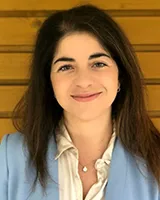
Bio: Giulia Giusy Cusenza is a postdoctoral researcher at the Faculty of Law at the University of Udine in Italy, where she is also an adjunct professor of administrative law at the Engineering Faculty. She earned her Ph.D. in administrative law from the University of Trento in 2020, and in 2018 she obtained an Intensive International Master of Laws ( I.I.LL.M. ) held by the European Public Law Organization in Athens. In recent years she has been lecturing various courses as a teaching assistant and as a lecturer. Moreover, she became a lawyer in 2018, and she was awarded the title of lawyer specialized in administrative law in June 2022 by the Italian National Bar Council.
Research Focus: Giulia’s research investigates the implications of the digitalization process and the application of artificial intelligence on public administrations and judicial activities. She is conducting comparative research on assessment procedures for developing algorithmic systems within the public administration. Her current project aims at studying the benefits of prioritizing stakeholders’ welfare in algorithm design for public administrations by implementing democratic and participatory processes. Her research interests revolve around administrative law and comparative administrative law.
Languages: Italian (native)
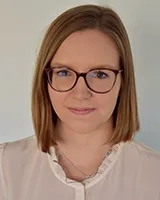
Bio: Maria Haag is a lecturer of European law at Tilburg University Law School (Netherlands). She holds an LL .B. from Durham University (United Kingdom), and an LL .M. from the European University Institute (Italy). She defended her PhD thesis “A Sense of Responsibility: The Shifting Roles of the Member States for the Union Citizen” at the European University Institute in October 2019. She has previously worked as a trainee at the Legal Service of the European Commission and a research assistant at the Robert Schuman Centre for Advance Studies (Italy). From August to December 2016, Maria visited Michigan Law School for the first time as a Grotius Research Scholar. She is an editor for the European Law Blog and an external editor for the European Journal of Legal Studies. Her teaching activities include undergraduate and postgraduate courses on EU constitutional law, internal market and free movement law, judicial protection, and migration law.
Research Focus: Maria previously developed the concept of responsibility as a prism to re-evaluate the case law of the Court of Justice of the European Union, and to differentiate between the roles that the home and the host Member States play for EU citizens. Building on this, she now wishes to examine further aspects of the concept of responsibility: the responsibilities of citizens in EU law, on the one hand, and the responsibility of the Union as whole for its citizens, on the other.
Languages : German (native), French, Dutch
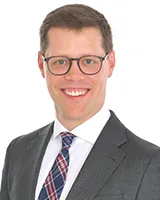
Bio: Lucas Hartmann is a Senior Research Fellow at the Institute for Legal Theory at the University of Freiburg, Germany. Prior to that, he conducted research at the Institute for German and European Administrative Law at the University of Heidelberg. Lucas’ research interests focus on legal theory, on comparative law studies, and on European Union Law.
Lucas defended his PhD entitled “The Codification of EU Administrative Law” (“Die Kodifikation des Europäischen Verwaltungsrechts”) at the University of Heidelberg in 2019. He was also a visiting researcher at Université Paris 1, Panthéon-Sorbonne (France) in 2021 and was awarded a three-year full-time Senior Researcher Fellowship (“Eigene Stelle”) from the German Research Foundation (Deutsche Forschungsgemeinschaft – DFG ) in 2020.
Research Focus: At Michigan, Lucas will focus on his comparative research project on judicial lawmaking. The aim of this research project is to compare German concepts of dynamic interpretation with similar understandings concerning the role of judicial lawmaking in the USA , France, and the EU that allow or forbid courts to develop the constitution, statutes, or “the law” in general. In particular, he intends to learn about the American practice and literature on constitutional and statutory construction, common law reasoning, and judicial activism/restraint.
Languages: German, English and French
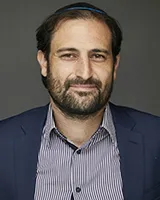
Bio: Moshe Jaffe is a JSD candidate at Bar Ilan University, and an LLM Graduate from Columbia Law School. Jaffe is a constitutional law Adjunct Professor at the Academic Center of Law and Science in Israel, and an Adjunct Professor at Cardozo School of Law. As an Israeli lawyer, Jaffe represented dozens of cases before the Israeli Supreme Court with emphasis on Religion and State, Human Rights, and National Security. Simultaneously, Jaffe serves as a legal advisor for the Counter-Terrorism section in the IDF ’s Department of the Legal Advisor to Judea and Samaria. Jaffe also serves as an administrative judge on the Confiscation of Funds Committee of the Money Laundering Headquarters tribunal.
Research Focus: Jaffe’s research comparatively addresses the constitutionality and the use of proportionality tests in judicial review of tax legislation. The research focuses on three different judicial systems — Israel, the U.S, and Jewish Law. Alongside the main issue, the research addresses the questions of tax definitions and equality in tax law. The research’s main argument is that the Israeli proportionality doctrine is the most effective and correct instrument for applying judicial review to tax legislation. This stands in contrast to the use of the scrutiny doctrine, which struggles to adapt itself to the flexibility and balances that tax laws require.
Languages : Hebrew – native, Spanish – proficient, France – elementary.
Bio: Shajan Kreuter is a PhD student at the University of Freiburg in Germany. He studied law at the University of Frankfurt and spent his clerkship at the Higher Regional Court in Frankfurt.
Shajan Kreuter is admitted to the bar and works at Sullivan Cromwell LLP in Frankfurt.
Research Focus: In his PhD thesis Kreuter portrays the regulation of crypto assets in Germany, the EU and the US . The thesis examines the current regulation of crypto assets in Germany and the EU and analyses the digital finance package of the European Commission which contains three draft legislations constituting the first comprehensive regulation of crypto assets in the EU . Furthermore, the thesis describes the current regulatory landscape and developments in the US and compares the EU draft legislation with the US regulatory regime.
Languages: German (native), French (proficient)
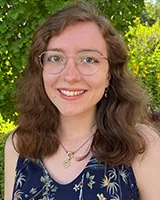
Bio: Linda Meister is a PhD student at the Department for Private International Law, International Civil Litigation and Comparative Law at the Eberhard Karls University of Tuebingen in Germany. After her state exam in 2020 which included a specialization on Private International Law, International Civil Litigation and Comparative Law, she started working as a Research, Teaching and Grading Assistant at the University of Tuebingen. In this capacity she has taught courses in Public Law, Private Law and Private International Law. During her undergraduate and doctoral studies, she also participated successfully in the certificate programs “Law, Ethics, Economics” and “Human Rights Law in Practice”.
Her interests include Principles of Private International Law, International Civil Litigation, Comparative Law and Human Rights Law.
Research Focus: Linda’s research focuses on the principle of neutrality in Private International Law. This area of law determines which country’s law is applicable in a case with connections to multiple countries. The classical European approach aims to treat all legal systems equally and abstracts the question of applicable law from the content of the different laws. This abstraction is called the principle of neutrality. However, this principle is being challenged. Developments in Europe and especially teachings in the US focus on a just outcome rather than a neutral decision. Linda tries to substantiate the principle of neutrality and assess deviating developments.
Languages: German (native), French (intermediate), Spanish (intermediate), Turkish (elementary)
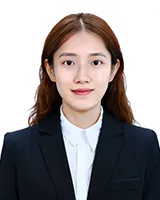
Bio: Zhiruo Ni is a PhD candidate in the College of Comparative Law, China University of Political Science and Law, in Beijing. Prior to her PhD studies, she received a Master of Laws at King’s College London and a Bachelor of Laws at the University of International Business and Economics in China. In 2017 she was a Visiting Student at Bar-Ilan University, Tel Aviv (Israel). From 2016 to 2018, she held legal internships in the China International Economic and Trade Arbitration Commission ( CIETAC ) and JunHe LLP , China. Her research interests mainly include Antitrust Law and Comparative Law.
Research Focus: Ni’s research focuses on antitrust regulation toward vertical integration. She has found that antitrust law is getting primary attention in China, but there is still a lack of Law & Economics studies and relevant cases, due to a long-term regulatory and judicial oversight before the information age. As vertical integration has been a dominant characteristic of some major
industries in the U.S., she hopes to build a comparative antitrust study on the issue between both jurisdictions, where the digital platforms could be the most suitable legal subjects for antitrust analysis at present.
Languages: Chinese (native)
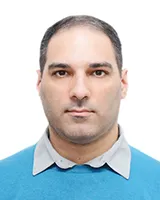
Bio: Saba Pipia holds a Ph.D. degree in Law from Tbilisi State University (Tbilisi, Georgia). He taught international law at several universities in Tbilisi, Georgia. Throughout his doctoral and post-doctoral studies, he was a visiting researcher at Michigan State University ( USA ), The Max Planck Institute for Comparative Public Law and International Law (Germany); The University of Groningen (The Netherlands); Aristotle University of Thessaloniki (Greece); Max Planck Institute for Comparative and Private International Law (Germany), Peace Palace Library (The Netherlands) and Jerusalem Institute of Justice (Israel). He was an invited lecturer at the University of Porto (Portugal) and the University of Iasi (Romania). He is a recipient of multiple research scholarships including from the Georgian National Scientific Foundation, German Academic Exchange Service ( DAAD ), European Commission (Erasmus program), and the US State Department (Fulbright Visiting Scholars program). Areas of his research include international humanitarian law, international criminal law, global animal law, and international environmental law. He has published academic publications in Georgia and abroad.
Research Focus: Saba’s research project is about missing persons. He intends to study the issue of missing persons from all possible international legal angles and provide an analysis, which will be useful for various target groups, including academics, students, governments, and armed forces. Saba thinks that there is a need to develop the concept of ‘international law of missing persons’ and examine this multi-dimensional issue through the lens of various international law instruments to determine the body of law, that regulates the issue of missing persons, and which can be
applied whenever there is a need to deal with missing persons. The most important goal of this research visit is to promote legal scholarship in the emerging field of international law – missing persons law – and eventually to produce an academic publication on this topic.
Languages : Georgian (native), Russian (limited working proficiency), Hebrew (elementary proficiency)
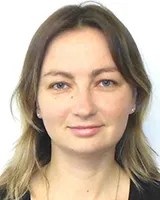
Bio: Dr. Elena Pribytkova is a Lecturer in Law at Southampton Law School. She received a Doctor of the Science of Law ( J.S.D. ) degree from Columbia Law School and is a Habilitation candidate at the Faculty of Law of the University of Basel. She held various research and teaching appointments at leading universities and research institutes all over the world, including Columbia Law School, New York University School of Law, University of Oxford, European University Institute, Max Planck Institute for Comparative Public Law and International Law, Heidelberg University, Swiss Institute of Comparative Law, University of Basel, Radboud University Nijmegen, and National University of Singapore. She has more than fifty publications, including publications in top U.S. law reviews and internationally recognized peer-reviewed law journals, such as the Chicago Journal of International Law , University of Pennsylvania Journal of International Law , Archiv für Rechts- und Sozialphilosophie , RphZ – Rechtsphilosophie – Zeitschrift für Grundlagen des Rechts , and N.Y.U. Journal of International Law & Politics .
Research Focus: Elena has worked extensively on individual and collective multidisciplinary research projects on theories of justice, human dignity, law and morality, governance, and human rights, in particular, socio-economic rights and their role in reducing poverty and inequality as well as in promoting social, global, and environmental justice, and sustainable development. Her current project Towards a World of Accountability: Extraterritorial Obligations in the Area of Socio-Economic Rights from Philosophical, Legal and Practical Perspectives pays special attention to human rights obligations of non-state actors. Her Habilitation monograph A Decent Social Minimum in the Language of Human Rights focuses on mechanisms for ensuring the social minimum guarantees in international, regional, and national orders.
Languages: Russian (native speaker); English & German (fluent); French (intermediate); Slavic languages & Swiss German (basic knowledge)
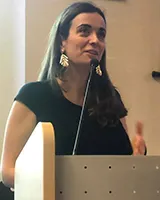
Bio: Sabrina Ragone (PhD) teaches comparative law at the University of Bologna’s Department of Political and Social Sciences, where she holds the post of Head of International Relations. She is also a member of the scientific committee of the Buenos Aires Campus and the excellence college of the University. She is Senior Research Affiliate of the Max Planck Institute for Comparative Public Law and International Law (Heidelberg), where she pursued her research between 2015 and 2017. Previously, she was a García Pelayo Fellow at the Centro de Estudios Políticos y Constitucionales – Madrid (2012-2015) and researcher at the Universidad Autónoma de Barcelona (2011-2012). She has taught comparative law in Italy, Germany, France, Spain, Colombia, Chile, Mexico, and Argentina.
She has collaborated with several competitive national research projects funded by the Italian and Spanish ministries of education as well as by research institutes in Latin America. Between 2018 and 2021 she was the PI of the Jean Monnet Module CRISES “Critical Risks for Integration and Solidarity in the European Space”, Erasmus+ Program. See: https://www.unibo.it/sitoweb/sabrina.ragone2/cv-en
Research Focus: Sabrina Ragone’s research comparatively addresses constitutional adjudication, territorial organization, and the interaction between international and domestic laws. She deals with Latin American constitutionalism from a comparative perspective, taking into account its transnational dimension. Her book on constitutional adjudication on constitutional amendments was the first comprehensive assessment of the issue (“I controlli giurisdizionali sulle revisioni costituzionali” 2011 in Italian, 2012 in Spanish). She then focused on the core constitutional issues of European integration, publishing several pieces on the issue, among them, the edited book “Managing the Euro Crisis. National EU policy coordination in the debtor countries”, Routledge 2018, and the volume “Parlamentarismos y crisis económica: afectación de los encajes constitucionales en Italia y España”, Bosch, 2020.
Languages : Italian (native); Spanish (proficient); German (good); French (intermediate); Portuguese (working knowledge); Catalan (working knowledge)
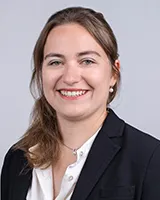
Bio : Lea Schneider is a PhD student at the Institute for International Law and Comparative Constitutional Law at the University of Zurich in Switzerland. From 2020 to 2022, she served as Research and Teaching Assistant at the University of Zurich, where she taught courses and co-organized the 22nd Conference of Young Research Scholars in Public Law ( Junge Tagung Öffentliches Recht ) and co-edited the annual anthology for young legal researchers of the University of Zurich ( APARIUZ ). Prior to pursuing her PhD studies, she received an LL .M. in Transnational Law from King’s College London and a Master of Laws from the University of Zurich. Her interests include public international law, public law, international economic law, transnational law and human rights law.
Research Focus : Lea Schneider’s research centers on the regulatory landscape of transnational corporations ( TNC s) regarding human rights and environmental standards. In her PhD thesis she analyses what insights are gained from a transnational perspective on the regulatory landscape of TNC s. Schneider conceptualizes transnational law, along the lines of Peer Zumbansen, as a methodology. In her thesis, she claims, for example, that a transnational perspective allows us to gain an enhanced understanding of the role and functioning of international soft law-initiatives in this regulatory area.
Languages : German (native), French (proficient), Italian (elementary)
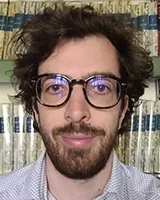
Bio: Francesco Tumbiolo is a Ph.D. student in Legal Sciences at the University of Milan-Bicocca. He was awarded a doctoral scholarship for his research project about cryptocurrencies’ taxation. Francesco is also a teaching assistant at the University of Insubria (Como), where he graduated in law. He was admitted, ranking among the top five students, to the School of Specialization in Legal Professions of the University of Milan. After getting the specialization diploma, he passed the bar exam, and he is currently an attorney-at-law in Italy at a renowned tax law firm with branches in Rome and Milan.
Research Focus: Francesco’s research focuses on cryptocurrencies’ taxation, especially from the Italian tax law point of view. However, he is now interested in giving his doctoral thesis a comparative perspective: his aim is to find what are the solutions adopted by different OECD members, like the US , to fix the same problems every country faces in taxing cryptocurrencies. Since they are in rapid development, he agrees that policymakers have to progress in considering cryptocurrencies’ tax implications in order to find a shared best practice.
Languages : Italian (native)
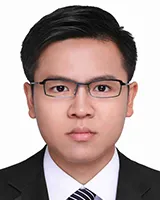
Bio : Wu Weiding is currently a Ph.D. candidate at the School of Law of Renmin University of China ( RUC ). His areas of interest include corporate and securities law and arbitration law. He received his Bachelor of Laws degree and Juris Master degree respectively from China University of Political Science and Law ( CUPL ) and Peking University ( PKU ). Wu has participated in several research programs, such as “Research on Major Problems of Bankruptcy of Listed Companies” and “Improvement of Governance Mechanism of Listed Companies”. He has worked as an intern in Beijing JunZeJun (Changsha) Law Firm, Beijing Tiantong Law Firm and the People’s Court of Changping District. Currently, he is an editor of Renming University Law Review . Wu has also already published a number of academic papers in core journals of China.
Research Focus : Wu has been focusing on social enterprises in the form of companies in China. Social enterprises are the types of enterprises pursuing both profits and public welfare. In China, there are a large number of social enterprises taking the form of companies. The core problem is that in China, the company is an organizational form purely pursuing profit-making goals, and Company Law of the People’s Republic of China does not provide any strong institutional guarantee for social enterprises to achieve social goals. Questions to be addressed in Wu’s research are as follows: Why do an increasing number of social enterprises exist in the form of companies in China? How can these social enterprises achieve their social goals without “mission drift”?
Languages: Chinese (native) and German (elementary)
Bio: Ms.Xiaodan Zhu is a Chinese professor specialized in International Tax Law. In this capacity, Xiaodan works at the Law School, Dalian Ocean University, where she also is the director of both Bachelor and Master Degree programs in Law. Prof. Zhu obtained a Ph.D. in International Tax Law from Xiamen University of China in 2013. She has been a Grotius Research Scholar of the University of Michigan Law School during 2015 and 2016. Her teaching activities include courses on international economic law, China’s tax law, and international tax law. Her writings (including journal articles and monographs) have appeared in many Chinese and English academic publications. Moreover, Professor Zhu is also a brilliant practical expert in tax law. She has been seconded to the Department of Tax Policy, Ministry of Finance of China in 2020, and she has been a part-time tax lawyer for almost six years in China.
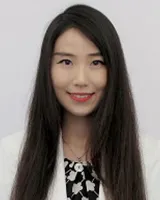
Bio: Zhiyu Li is an Assistant Professor in Law and Policy at Durham Law School and a Fellow at the Durham Research Methods Centre. She holds undergraduate degrees in law and economics from the East China University of Political Science and Law and a J.S.D. from the University of California, Berkeley.
Zhiyu’s research investigates issues that lie at the intersection of law and policy, with a particular emphasis on the role of courts in democratic and authoritarian regimes. The findings of her research have been published in or accepted by U.S. and international journals, including the Harvard International Law Journal , the Columbia Journal of Asian Law , and the Cornell International Law Journal , and presented at various fora, such as the Stanford International Junior Faculty Forum and the Annual Meeting of the American Society of Comparative Law.
Research Focus: Zhiyu’s current research asks whether the rejection of the separation of powers principle in socialist jurisdictions makes it easier for courts to take on extrajudicial functions and exercise influence in ways that are salutary but forbidden to their liberal democratic cousins.
At Michigan, she will work on a joint project that aims to study cognitive biases of legal professionals and lay persons through survey experiments fielded on judges and university students. The project findings are expected to have normative implications for institutional choices in the civil and criminal justice system. She will also further her work on specialized judicial empowerment.
Languages: Mandarin Chinese (native)
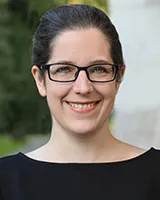
Bio: Sarah Zimmermann is a PhD student at the Max-Planck Institute for Legal History and Legal Theory in Frankfurt am Main (Germany) where she also works at the European and Comparative Legal History department.
Zimmermann studied Law and European Studies in Mainz (Germany), Maastricht (Netherlands) and Dijon (France). Prior to pursuing her PhD, she obtained the German State Exams and a Masters (Maîtrise en Droit) from the University of Dijon with a focus on European economic law. She also holds a joint LL .M in international private law and European Law from the universities of Mainz and Dijon. She has received various scholarships during her studies and for her PhD research. During her legal clerkship she worked at the Frankfurt office of WilmerHale obtaining professional experience in the field of regulatory affairs and European Law.
Her interests include European law, procedural law, comparative law and administrative law.
Research Focus: Zimmermann’s PhD research focuses on the procedural law of the Courts of the European Union. It looks at the emergence of these rules in the 1950s from a historical and comparative legal perspective. She is evaluating to which extent the ECJ procedural rules during that time were comparable to the national procedural rules of the member states and to those of international courts. She is using sources from the archives of the European institutions and the relevant ministries of the founding states and seeks to give insight into one of the first decision making processes of the Community.
Languages : German (native), French (proficient), Dutch (elementary)
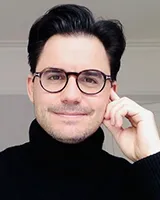
Bio: Alain is a Senior Lecturer (Associate Professor) at the School of Law, University of Glasgow ( UK ). Alain holds graduate degrees in Philosophy ( MS c, London School of Economics), History ( MA , Graduate Institute) and Law ( LL .M., Toronto). He was awarded his doctoral degree at the University of Fribourg (Switzerland) funded by the Swiss National Science Foundation. His doctoral dissertation was published as a monograph with Routledge ( The ECHR and Human Rights Theory ). Alain subsequently obtained three post-doctoral fellowships funded by the Swiss National Science Foundation, the European University Institute in Florence (Max Weber Fellowship) and the University of Oslo (PluriCourts Centre of Excellence).
Research Focus: Alain’s research aims to reconstruct and evaluate the practices of constitutional law, human rights law and international law from the perspective of normative theory. In particular, Alain has examined the practice of the European Court of Human Rights, UN treaty bodies and the International Criminal Court. His research has appeared in leading peer-reviewed journals such as International Journal of Constitutional Law (2019, 2022), Global Constitutionalism (2016, 2021, 2022), Ratio Juris (2019), Critical Review of International Social and Political Philosophy (2019, 2021), Canadian Journal of Law and Jurisprudence (2016) and Criminal Law and Philosophy (2018), among others. Alain is also currently Senior Research Fellow at the University of Oslo (PluriCourts Center for Excellence) for a two-year project (2021-23) studying the nexus between theories of populism and the practice of the European Court of Human Rights. His monograph on the topic is under contract with Cambridge University Press.
Languages : English, French, German, Spanish
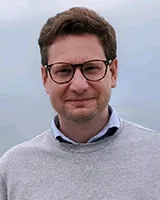
Andrew Cecchinato is a Marie Skłodowska-Curie Global Fellow at the University of Michigan Law School and the School of History at the University of St Andrews. He is PI of the Horizon 2020 project on John Selden’s Harmonic Jurisprudence. A European Interpretation of English Legal History . Previously, he was a postdoc in St Andrews, working on the ERC project Civil Law, Common Law, Customary Law: Consonance Divergence and Transformation in Western Europe from the late eleventh to the thirteenth centuries .
Andrew is a book review editor for the American Journal of Legal History. He has received scholarships from the Max-Planck-Institute für europäische Rechtsgeschichte and the Robert H. Smith International Center for Jefferson Studies. He has also been a visiting researcher at the Robbins Collection in Civil and Religious Law, the Georgetown University Law Center, and the Library of Congress. He studied law at the University of Trento, where his Ph.D. on The Legal Education of Thomas Jefferson won the faculty prize.
Research Focus
Andrew’s main research aims to repurpose the idea of Europe by studying how the seventeenth-century jurist, historian, and Hebraist John Selden harmonized the history of English law and the authority of the European legal tradition. His project will center on Selden’s effort to preserve and harmonize the history of English law within the inclusive order of nations recognized by a distinct reading of medieval and modern European jurisprudence. The research will thus focus on the cogent yet overlooked reasoning by which Selden proved that no law, however discrete, can rightfully be understood if isolated from the continuum of legal experience.
English and Italian (native), French and German (elementary)
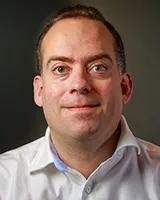
Apostolos Chronopoulos is Senior Lecturer in Intellectual Property Law at the Centre for Commercial Law Studies, Queen Mary University of London.
Apostolos has studied law at the National and Kapodistrian University of Athens. He continued his studies at Queen Mary University of London ( LLM Lond.) and the Ludwig-Maximilian University of Munich ( LLM Eur. and Dr. Jur.). During his Ph.D. studies, he was supported by a scholarship from the Max Planck Institute for Intellectual Property, Competition, and Tax Law (now MPI for Innovation and Competition). At the postdoctoral level, he has received scholarships that allowed him to conduct research as a visiting scholar at Stanford Law School and as an invited overseas researcher at the Institute of Intellectual Property in Tokyo, Japan.
His research interests span the broader field of intellectual property and competition law. Currently, his focus is on US and EU trademark law, unfair competition law, patent law, economic analysis of intellectual property law, comparative intellectual property law, the relationship of intellectual property law and general private law, the interface between Intellectual property and antitrust law.
His latest publications include: Exceptions to Trade Mark Exhaustion: Inalienability Rules for the Protection of Reputational Economic Value [2021] 43(6) European Intellectual Property Review 352-365; Reconstructing the Complete Patent Bargain: The Doctrine of Equivalents , [2020] Intellectual Property Quarterly, Issue 2, 138-160; Strict Liability and Negligence in Copyright Law: Fair Use as Regulation of Activity Levels , 97 Nebraska Law Review 384-468 (2018).
English, German, Greek
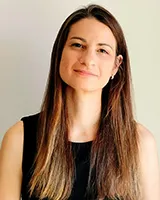
Viviana Galletto Farro graduated from the Catholic University of Uruguay with a Juris Doctor degree. She has been a professional judge in Uruguay since 2014, and she is currently nominated by the Supreme Court of Justice of this country for an upcoming promotion. She has attended on a wide range of cases in both civil and criminal law matters, gaining experience as a judge.
She is a contract law specialist and holds an LL .M degree in Contract Law. In addition, she is pursuing an LL .M degree in Criminal Procedure Law, while she currently works on her Ph.D. thesis in Legal and Research Sciences from the Catholic University of Argentine.
She is a graduate teaching assistant in civil and procedural law at the Catholic University of Uruguay. Her writings have been published in numerous legal publications. She has received multiple scholarships and awards, including the Fulbright Scholar grant to study at the University of Michigan Law School as a research scholar.
The purpose of the research will be to identify the relevant legal standards for the admission, evaluation and sufficiency of the evidence presented by the parties in the intermediate stage of the criminal process, in order to discover the truth and achieve effective, fast and fair solutions.
The main focus will be to analyze the objective parameters that constitute the rules of evidence by which judges issue their rulings, so these criteria could be used as a framework in the Uruguayan Criminal Procedure System during the intermediate stage of trials.
Spanish (native), Italian (elementary).

Jaka Kukavica is a Ph.D. Researcher at European University Institute in Florence, Italy. His Ph.D. project comparatively examines consensus analysis as an interpretative method in various multilevel polities. He is also working as a researcher on “The Court of Justice in the Archives” project at the Academy of European Law and the “Judicial Networks between Supreme Courts in Europe” project led by Prof. Mathias Siems. Before commencing his doctoral project, Kukavica studied law at Ljubljana and Cambridge. He is the Head of Section for European Law at the European Journal of Legal Studies and he served as an Editor of the Cambridge International Law Journal in the past. He has received multiple scholarships and awards, including the Mary Higgins Scholarship and the Lilian Knowles Prize awarded by Girton College, University of Cambridge.
Kukavica’s doctoral research examines the relationship between the structure of multilevel polities and the types of consensus analysis courts use when interpreting legal norms. Kukavica argues that different types of consensus analysis imply different understandings of the value of state autonomy. On these grounds, he examines whether courts use consensus analysis in a way that fits the structure of the multilevel system in which they operate. In particular, he focuses on the jurisprudence of the United States Supreme Court, the Court of Justice of the EU , the European Court of Human Rights, and the UN Human Rights Committee.
Slovenian (native), Serbo-Croatian, and Italian (proficient)

Caroline Maciel is a doctoral researcher in open data of the Quality of Law Research Clinic, which is a member of the International Association of Legislation. She works as Regulatory Affairs and Government Relations at Stone Co (financial and software solutions) and is interested in Big Techs entrance in financial markets and how regulation should approach this matter. She studied Law at UFMG (Brazil) and University of Leeds ( UK ) and won two of the university’s prizes (best in civil and procedure law). Her master degree Institutions and Public Policies (Arraes: 2019) won two awards. She was a Research Fellow at AI Labs in a project on artificial intelligence to understand Congress. Her teaching and academic activities include courses on law and technology, constitutional law, administrative law and legal theory. Her writings have been published in numerous peer-reviewed publications, some in english.
Caroline’s research addresses how technology, such as machine learning-based systems, can be used to improve regulatory and legislative risk management. She argues that Brazil has substantial unequal access to public data and political players. Given this, tools to automatically process, analyze and categorize data, identify trends and predict best courses of legal action could change how advocacy is done, reducing this asymmetry. She analyzes some of these situations in financial market, as Big Tech’s started to provide payment services in Brazil. She chose to collect improvements from the US private and public sector because it is one of the front-runners in AI and algorithmic transparency, which can be used in Regulatory Impact Assessment Brazilian models. She evaluates how to decipher the government’s decision-making process patterns (without losing the political aspect) and the possible benefits to the democratic and economic development.
Portuguese (native), English (proficient) and Spanish (intermediate)

Veena Manikulam is a PhD student at the Institute for International Law and Comparative Constitutional Law at the University of Zurich in Switzerland. From 2019 to 2021, she served as Research and Teaching Assistant at the University of Zurich, where she taught several courses and co-authored three articles in the area of international economic law. Prior to pursuing her PhD studies, she received an LL .M. in Transnational Law from King’s College London and a Master of Laws from the University of Zurich. In 2016, she was an exchange student at the National Law School of India University. Her interests include international economic law, transnational law and human rights law.
Veena Manikulam’s research centres on the reform of international investment law. In her PhD thesis she addresses to what extent the concept of investor accountability has been incorporated in investment law. Based on the insufficient adoption of investor accountability in existing investment agreements, her research focuses on the question how mechanisms to enforce substantive standards (including human rights, labour and environmental standards) could be designed to adequately incorporate the notion of investor accountability in investment law. Manikulam argues that a transnational approach to this question presents the chance to propose innovative enforcement mechanisms.
German (native), Malayalam (native), French (proficient), Hindi (limited working proficiency), Arabic (limited working proficiency)
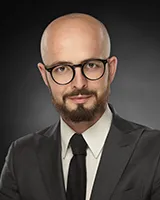
Marcin Menkes is an Associate Professor at Warsaw School of Economics, in the Department of Business Law, where he also heads the Post-Graduate Studies of Law and Economics of the Capital Market. He is a member of the International Law Association Committee on the Rule of Law in International Investment Law and the Investor-States Dispute Settlement Academic Forum. He has held visiting fellowships at top universities including Cornell University, Cambridge University, Università di Torino, Università degli Studi di Firenze, and Università di Bologna.
His research interests include international investment arbitration, international monetary and financial matters, sovereign debt restructuring, sovereign immunities, and economic sanctions. He has published four books, over 100 scientific articles, and more than 1,000 blog posts, newspaper articles, etc.
Besides his academic work, he is also Of Counsel in Queirtius, an international litigation and arbitration law firm.
Menkes’s recent piecemeal projects are part of a larger research agenda on the evolution of public international law. His overarching hypothesis is that current diagnoses of the Westaphalian international order crisis are superficial and address only symptoms, not the roots of change.
While at Michigan Law School, he will examine the extent to which blockchain carries the potential to go beyond what has been debated and analyzed so far: to undermine the legal personality of states, to recognize the personality of MNE s, to open up the catalog of sources of law, and, ultimately, to undermine the foundations of the entire system.
Polish (native), French (proficient), Italian (proficient), Spanish (Intermediary), Dutch (elementary)
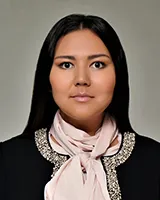
Zarina Mussakhojayeva is a lawyer specializing in international trade law and compliance, focusing particularly on regulatory compliance, international sanctions, and anti-bribery regulations. Zarina has worked for multinational companies, advising on corporate compliance and governance issues in the areas of Antitrust, U.S. Foreign Corrupt Practices Act, U.K. Bribery Act, Antiboycott and economic sanctions. Zarina is an experienced lawyer qualified to practice law in Kazakhstan with professional experience covering matters related to mining operations, corporate finance, and mergers and acquisitions in the oil and gas industry.
Zarina received her B.A. in law from Kazakh Humanitarian Law University in 2006, where she received the University President’s Scholarship award. In 2008 she obtained her LL .M. degree at Duke University School of Law. Zarina was awarded a prestigious Kazakhstan Government-sponsored International Scholarship to pursue her studies at Duke. Zarina studied at American University in Washington, D.C. and Minnesota State University as an exchange student under the U.S. Department of State “Freedom Support Act” Fellowship Program.
Zarina’s research focuses on regulatory and legal aspects of implementing global compliance practices in Russia and Kazakhstan. The research is intended to identify regulatory compliance challenges faced by multinational corporations operating in the region. It is aimed at analyzing applicable regulatory environment in these post-Soviet countries, understanding available compliance function and established practices, and investigating recent FCPA enforcement actions. The research identifies the OFAC -imposed economic sanctions and Russian countersanctions and conflict between Russian antimonopoly legislation and U.S. anti-boycott regulations as key areas for further examination. In addition, some of the essential legal concepts are proposed to overcome the identified challenges.
Kazakh (native), Russian (native), and English (fluent)
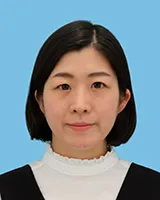
Azusa Ogasawara has been a public prosecutor in Japan for six years. She graduated from Kyoto University Law School with a Juris Doctor degree. She has worked on a wide range of cases in both the investigation and trial departments, gaining experience as a practicing lawyer. She was recommended by the Public Prosecutors Office in Japan and is currently studying at the University of Michigan Law School as a research scholar.
Azusa’s research investigates legislative and operational issues related to laws against money laundering. In recent years, Japan has seen an increase in the amount of money laundering cases. However, the reaction of Japan to these crimes has not been fulfilling due to the lack of our experience in this field; thus, Japan must consider further strengthening its regulations while referring to the efforts of other countries. She chose these issues, because she believed that studying in the U.S., where research in this field is more advanced, would provide meaningful results for Japanese criminal justice.
Japanese (native)
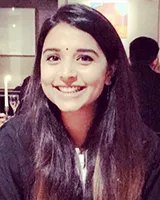
Aparna Singh is a lawyer licensed to practice in India. She holds law degrees from the University of Cambridge ( U.K. ) and the University of Delhi (India).
After graduating from Cambridge with an LL .M. degree in International Law, she joined Fietta LLP (London). At Fietta LLP , she assisted in ongoing investor-state arbitrations and even worked on several maritime law issues including, but not limited to, extent of the territorial waters of archipelagic states.
Prior to pursuing the LL .M. program, Aparna practiced law in India for four years. As a Senior Associate at a premier law firm, she represented private parties and government authorities in cases covering diverse areas of law, ranging from government regulation to cross-border transactions. Aparna also had the opportunity to work on several international arbitrations and received favorable awards for the firm’s clients.
Before coming to the University of Michigan Law School, Aparna practiced as an Arbitration Consultant in India, advising clients on international and domestic arbitration issues.
Aparna’s current research includes a comparative analysis of regulatory regimes adopted in developed and developing countries to promote cross-border transactions and foreign direct investment. She intends to expand the scope of this research by looking at regulatory practices adopted by the U.S. and how India’s recent reforms stand in comparison. In light of India’s recent termination of many of its Bilateral Investment Treaties ( BIT s), this research will also encompass India’s dispute resolution system, both within and without the new Model BIT , and how it can be improved to meet the challenges ahead.
Hindi (native), Spanish (basic/learning)
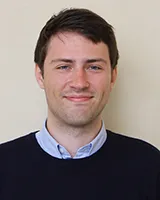
John Trajer is a doctoral researcher in law at the European University Institute in Florence, Italy. Over the course of his PhD, he has been a visiting fellow at the Amsterdam Centre for Migration and Refugee Law (Vrije Universiteit Amsterdam) and at the Dickson Poon School of Law (King’s College London). Prior to commencing his doctoral degree, he obtained a BA from the University of Oxford, a Joint MA from the universities of Göttingen and Groningen, and an LLM from the European University Institute. He has acquired professional experience in the field of migration and refugee law at a range of NGO s and international organizations, including the AIRE Centre (Advice on Individual Rights in Europe), the Hungarian Helsinki Committee, and the Council of Europe.
John’s doctoral research explores the scope of states’ protective duties towards trafficked
persons under international and regional European law. Specifically, it examines the conditions under which host states are obliged to ensure access to rehabilitative assistance for trafficked migrants, focusing on points of intersection between anti-trafficking, human rights, and refugee law. Beyond his PhD project, John is interested generally in the fields of migration, criminal, and international human rights law. At the European University Institute, he is one of the coordinators of the Migration Working Group (Migration Policy Centre) and an active participant of the Human and Fundamental Rights Working Group (Law Department). He is also a member of the Human Trafficking Research Network based at Queen’s University Belfast.
John is proficient in Hungarian and Italian, while he speaks Dutch and German at an upper-intermediate level.

I am Professor of International Law and Co-Director of PluriCourts – Centre for the Study of the Legitimate Roles of the Judiciary in the Global Order , University of Oslo, Norway. I have been Director of the Norwegian Centre for Human Rights, University of Oslo. I was Co-chair of the International Law Association’s Study Group on the ‘Content and Evolution of the Rules of Interpretation’ and am Chair of the Scientific Advisory Board, Max Planck Institute for Procedural Law, Luxembourg. I have been a member of the Executive Board of the European Society of International Law.
I will give a special course as part of the 2022 Hague Academy Winter Course on ‘Deference by International Courts and Tribunals to National Organs’. I have committed to write a book on the basis of the lectures, to be published in the Academy’s Collected Courses . I am looking forward to writing the book in the research environment provided by the University of Michigan.
English (some German and French)
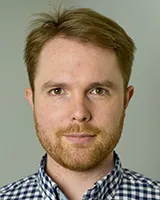
Thomas Verellen is Assistant Professor in European Union and International Law at Utrecht University (Netherlands) and a Research Fellow at the Institute for European Law, KU Leuven (Belgium). Thomas is an expert in EU and comparative foreign relations law and has a particular interest in the impact of geopolitical change on the governance of EU trade and investment policy.
Thomas defended his PhD entitled ‘ EU Foreign Relations Federalism. A Comparison with the United States, Canada and Belgium’ at KU Leuven in September 2019. From 2018 to 2020, Thomas practiced EU and international trade law at the Brussels office of Bird & Bird LLP . Thomas has held visiting positions at the University of Michigan Law School (2016-2017) and the Université de Montréal (2015) and was a trainee in the chambers of Professor Koen Lenaerts, President of the Court of Justice of the EU (2015).
At Michigan, Thomas will start a comparative research project on legal and political accountability mechanisms in EU and U.S. trade and investment policy, and he will work on the book version of his PhD, which will be published in 2022 as part of Oxford University Press’ Comparative Constitutionalism series. In addition, Thomas will teach European Union Law at Michigan during the 2022 Winter Term.
Dutch, French and English
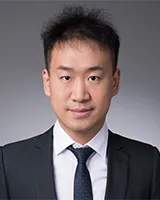
Dr. Eddie Wei is an International and Comparative Law Research Scholar at the University of Michigan Law School under the mentorship of Professors Catharine MacKinnon and Kimberly Thomas. During his stay in Michigan, he is also a postdoctoral fellow in the China- US Scholar Program, which is administered by the International Institute of Education. Dr. Wei received his PhD in Gender Studies from the University of Cambridge and JSD from City University of Hong Kong. His research interests include judges’ gender and sentencing, sexual abuse and violence, and feminist judgments project. He received the Graduate Student Paper Award from the Division on Women and Crime, American Society of Criminology in 2019, as well as the Jiang-Land-Wang Outstanding Student Paper Award from the Association of Chinese Criminology and Criminal Justice in the same year. His publications can be found in peer-reviewed journals, such as Feminist Criminology, Feminist Legal Studies, British Journal of Criminology, Asian Journal of Women’s Studies, and International Journal of Offender Therapy and Comparative Criminology . He has been a member of the All China Lawyers Association since 2008.
Legal studies worldwide have documented the ways in which sentences of rape are influenced by victims’ relationships with offenders. The systematic failure to effectively sanction private sexual violence speaks to the influence of extra-legal factors on judges’ decision-making processes. Nevertheless, what typically has been found in the literature on the categorization of rape offenders is the dichotomy between strangers and non-strangers to victims. Such classification is problematic because of the distinct nature of the relationships captured in acquaintance rape. I will use a more refined categorization of victim-offender relationships to examine the predictive power of relationship type in sentencing outcomes.
Mandarin (native) and Cantonese (proficient)
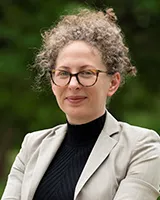
Sonya Ziaja is an assistant professor at the University of Baltimore School of Law, where she teaches Environmental Law; Climate Adaptation, Law and Equity; and Property. Ziaja holds a Ph.D. in Geography from the University of Arizona; M.Sc. in Water Science, Policy and Management from the University of Oxford; and J.D. from the University of California, Hastings College of the Law.
Ziaja’s research interests focus on the overlapping areas of environmental governance and law, technology and society: How can environmental law and institutions sustainably adjust to rapidly changing bio-geophysical conditions and societal demands associated with climate change? And with what consequences for equity and democratic participation? Her approach to these questions draws on her interdisciplinary background in geography, water policy and law, as well as her practical knowledge of energy regulation.
Prior to entering academia, Ziaja worked in energy regulation at the California Public Utilities Commission and was the research lead for the Water, Energy, Climate Nexus at the California Energy Commission. She was a lead author of California’s Fourth Climate Assessment. Her research has informed the climate adaptation strategy of the U.S. National Parks Service and the first climate adaptation regulation of investor-owned energy utilities in California.
Dr. Ziaja’s current research project examines an emerging paradox in climate adaptation and equity. Climate adaptation is necessarily dependent on algorithm assisted decision making. These algorithmic tools are new fora for deliberation and environmental lawmaking. But these necessary tools also embed value laden assumptions and biases that make them counter to democratic participation and equity. This project is based on multiple years of qualitative research and detailed analysis of two cases where decision support software has informed climate adaptation for water and energy sectors. Through these case studies, Ziaja’s research provides a novel framework for evaluating procedural and substantive equity in algorithmic tools. Early versions of this research benefitted from discussions at the University of Columbia’s Sabin Colloquium for Innovative Environmental Scholarship and the University of Michigan Law School’s Junior Scholars Conference. Ziaja’s article, How Algorithm Assisted Decision Making is Influencing Environmental Law and Climate Adaptation , is forthcoming in volume 48 of Ecology Law Quarterly .
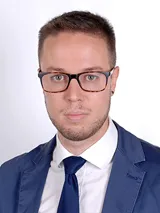
Lorenzo Giovanni Luisetto is a Ph.D. student in Comparative and European legal studies from the University of Trento in Italy. Prior to receiving his scholarship to pursue his Ph.D, studies, he received an M.A. in law at the University of Trento. Luisetto received the Giorgio Ghezzi Award - Mention of Merit in 2018 for the adoption of a comparative and multidisciplinary method in his master’s thesis, entitled “Working Conditions at “Amazon”: a Comparison between the United States and Italy.” In 2018 he was a Visiting Researcher at the American Federation of Labor and Congress of Industrial Organizations ( AFL - CIO ), Washington D.C. ( USA ), and in 2020 he was a Visiting Scholar at the Katholieke Universiteit Leuven ( BE ), where he worked at the Institute for Labour Law. His research interests include Comparative Labor and Employment Law, Antitrust Law and EU Law.
Luisetto’s research focuses on the interaction between Antitrust Law and Labor and Employment Law. He is conducting a comparative study between the United States’ and the European Union’s models of anti-competition law and their application to labor issues. His research question is based on the ineffectiveness of both Labor and Employment Law in protecting workers and the possibility of antitrust principles providing better protections for workers in different kinds of labor markets. Luisetto argues that antitrust should not only focus on consumer welfare but also on other important interests, such as the welfare of workers. More generally, he believes the goals of anti-competition law should be reconsidered in order to expand protection for labor.
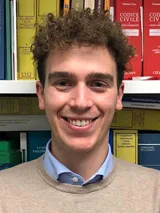
Francesco Marotta is a doctoral student in commercial law at the University of Padua. He was awarded a doctoral scholarship in 2019 after submitting a research project aimed at investigating the main legal issues posed by the Italian insolvency law reform. After graduating in Law at the same university in 2017, he worked for a year and a half as a deputy Public Prosecutor’s assistant in the section of the Prosecutor’s office specialized in economic, financial and tax crimes. He currently holds lessons and seminars for students at the university during the course of Commercial Law and Business Crisis Law. Marotta published academic articles/papers on insolvency and commercial law in various Italian law reviews. He is also a member of the American Bankruptcy Institute (International member) and the International Association of Restructuring, Insolvency and Bankruptcy Professionals ( INSOL ).
Marotta’s research interests lie primarily within international comparison of insolvency laws, with a particular emphasis on the different legislative policies aimed at preventing insolvency and promoting business rehabilitation. Marotta’s research project analyses, with a comparative approach, the differences between the Italian and American legal regimes governing the prevention of business crisis. His purpose is to verify if the U.S. system is the most suitable for preventing insolvency without jeopardizing companies themselves. In this way, it will be possible to draw several inspirations to improve the Italian insolvency law, especially considering the high percentage of businesses that will probably experience financial difficulties due to the outbreak of the COVID -19 pandemic.
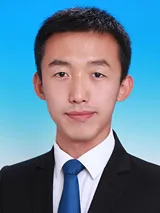
An Guohui is a Ph.D. candidate majoring in law and economics at China University of Political Science and Law. He focuses on economic analysis of law, especially administrative law and tort law. He studied law in China-Euro School of Law and received a Juris Master. Before he started his Ph.D. program, he worked in the China Export & Credit Insurance Corporation, Chinese official Export Credit Agency. He previously was in an internship at the International Finance Corporation (World Bank Group) as a temporary consultant.
The social disciplining on various wrong doings is a new and fast-growing means of regulation. The wrong doings consist of criminal offense, administrative offense, contempt of court, bad faith in civil cases, etc. These are supposed to reduce the social transaction cost by reinforcing the authority and enforcement of law. As a very new regulation with universal influences, the disciplining is lack of prudent demonstration. Especially, an economic analysis needs to be used to deliberate the cost and benefit of the regulation. Due process in the disciplining is also a key issue.
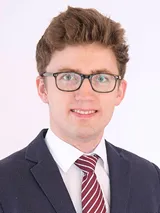
Janis Beckedorf is a fellow of the doctoral research group “Digital Law” at Heidelberg University, an interdisciplinary institution of the Faculty of Law and Computer Science carrying out fundamental research to prepare and accompany the development of legal expert systems. Janis studied law at Bucerius Law School in Hamburg, Germany and at the University of Michigan during the fall term of 2014. Currently, he works on his PhD thesis and conducts a research project on “Complex Societies and the Growth of the Law” with three other scholars. Janis’ research is funded by the Foundation of German Economy (Stiftung der deutschen Wirtschaft) and the State of Baden-Württemberg. He is co-founder of iusio, a company providing customized software to law firms and insolvency administrators.
Tax law is regularly criticized for being too complex. What does complexity mean in respect of law, how can it be quantified and what insights can be gained about law? To answer these questions, the research uses insights from economics, systems theory and network science. The first objective is to elaborate a definition of legal complexity. The second objective is to develop new methods to measure legal complexity laying a focus on network science. As underlying data for these approaches, the research uses federal laws of the United States and Germany as well as court decisions.
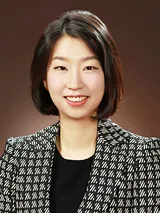
Won Kyung Chang is an associate professor in the Scranton Honors Program at Ewha Womans University, Seoul, South Korea. She received a joint doctoral degree (Ph.D. in Law and Social Science) from the Maurer School of Law and the School of Public and Environmental Affairs at Indiana University-Bloomington.
Her research addresses a broad range of issues related to society, law, and public administration, including legal consciousness and legal culture, alternative dispute resolution, collaborative public administration, biomedical law and ethics, legal interpreting, and school violence. She has published around 30 articles in journals of law and public administration, such as Asian Journal of Law and Society , Canadian Journal of Law and Society , and Public Administrative Review . She also serves as a member of the Conflict Management Committee in the Ministry of Justice, Republic of Korea, and as a member of the board of directors in the Korean Society for the Sociology of Law and the Asian Women Law Association.
Dr. Chang’s main research question has always been how to design a legal apparatus that gives a sense that the justice system is, in fact, just. In searching for answers, she studied different concepts of justice—procedural, distributive, restorative, and relational—in alternative disputes resolution, public participation in administrative procedure, and biomedical law and ethics. Currently, she is investigating the institutionalization and evolution of American class actions, a project she believes will provide a basis for analyzing the mobilization of collectivized disputes in South Korea, and, ultimately, contribute to elaborating the theory of interaction between social transition and legal systems.
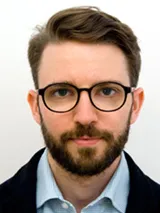
Lukáš Hrdlička is a Ph.D. candidate at the Faculty of Law of Charles University in Prague and a former bills drafter working for the Ministry of Finance. Lukáš was asked to draft a bill implementing the EU Anti-Tax Avoidance Directive (“ ATAD ”), thus becoming the author of the first rules dealing with hybrid mismatches enacted in the Czech Republic. He was also a member of the team drafting the first exit tax and CFC rules in the Czech Republic.
Regarding his studies, Lukáš is the principal investigator of the “International Co-operation in Tax Matters” research project funded by the Grant Agency of the Charles University and a researcher of several other research projects. His article about loopholes in the ATAD ’s CFC rules won the faculty prize and led to an amendment of a proposed bill implementing the ATAD . Lukáš is a co-author of a commentary to the Income Tax Act and a recipient of the prestigious Hlávka Foundation scholarship.
Lukáš’ research encompasses both taxation and financial regulations, but his visit to the University of Michigan Law School shall be focused rather on tax policy, income taxation, and, particularly, international taxation from the US and EU perspective, e.g. hybrid mismatch rules, CFC rules. In his current research, Lukáš analyzes the impact of the OECD anti- BEPS project on the European tax system and how the proposed and/or enacted EU rules implementing this project should be amended to become more effective and bring a greater fairness to the European tax system.
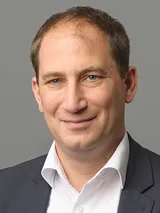
Dr. Constantin Hruschka works as a Senior Research Fellow at the Max Planck Institute for Social Law and Social Policy in Munich since November 2017. He is part of the Research Initiative of the Max Planck Society in “Challenges of Migration, Integration and Exclusion” (for further information see: https://www.eth.mpg.de/4397290/wimi ).
Before fully returning to academia, he had inter alia worked as head of the protection department at the Swiss Refugee Council (2014-2017) and as a lawyer for UNHCR , the UN Refugee Agency (2004-2014) in Nuremberg and Geneva. Dr. Hruschka studied law, history and philosophy in Würzburg, Poitiers and Paris. He holds a PhD in history from the university of Würzburg and a maîtrise en histoire from Université Paris IV (Sorbonne). In addition, he is a fully qualified lawyer and has passed his bar exam in 2002.
He is teaching European Law and European Asylum Law as well as Human Rights Law mainly at the Universities in Germany and Switzerland.
His current research project is focused on responsibility sharing mechanisms in the asylum context from a regional and global perspective. He looks into the structural challenges of regional and global asylum governance as well as into the compatibility of existing schemes with the 1951 Convention and the human rights standards. This focus derives from his longstanding research on the Common European Asylum System and on the 1951 Convention. In addition to his research on refugee law, he is currently working on a research project looking at the access of European Union citizens to welfare in other EU Member States in cooperation with the University of Lausanne. He has authored many publications on international, European, Swiss and German asylum and migration law inter alia he co-authored (with Francesco Maiani) a commentary on the Dublin III Regulation, is co-editing a comprehensive commentary on the Swiss migration law (5th edition 2019) and is the editor of the first German language commentary on the 1951 Convention (forthcoming 2020).
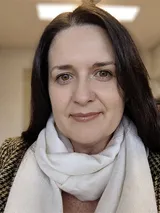
Niamh Kinchin is a Senior Lecturer at the School of Law, University of Wollongong, NSW , Australia. Niamh teaches Administrative Law, Constitutional Law and Refugee Law. From 2008-14 she was as a sessional lecturer at the University of Wollongong and the University of New South Wales ( UNSW ), teaching a variety of subjects including Administrative Law, Constitutional Law, Torts and Contracts Law. Prior to teaching, she worked at the Commonwealth Administrative Appeals Tribunal as a legal officer. Niamh was admitted as a legal practitioner to the Supreme Court of NSW in 2002. She holds a Bachelor of Social Science from University of Newcastle, a Bachelor of Laws (Hons Class 1) from Western Sydney University, a Masters of Administrative Law and Policy from University of Sydney and a PhD from UNSW . The title of Niamh’s PhD is ‘Accountability in the Global Space: Plurality, Complexity and United Nations High Commissioner for Refugees’.
Niamh’s primary research interests are in global accountability and administrative justice, administrative decision-making within the refugee context and constitutional interpretation within the international and Australian settings. Her current research includes projects on the potential and risks of artificial intelligence in refugee status determination, the accountability of UNHCR in a time of Global Compacts, the interpretation of the constitutions of international organizations, NGO participation in the United Nations ( UN ) and the evolution of constitutional principles in Australia. In December 2018, Niamh published a monograph with Edward Elgar Publishing ( UK ) focusing upon Administrative Justice within the UN .
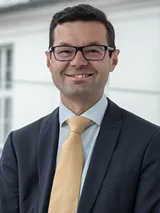
Andreas Th. Müller is Full Professor at the Department of European Law and Public International Law of the University of Innsbruck, Austria. He studied law and philosophy at the Universities of Innsbruck, Strasbourg and Yale Law School. He has been a regular Visiting Professor at the University of Alcalá, Spain, the Universidad Panamericana, Mexico, as well as Addis Ababa University, Ethiopia. In 2009/2010, he clerked for Judges Abdul G. Koroma and Bruno Simma at the International Court of Justice. His habilitation thesis dealt with Effet direct. The Direct Effect of EU Law. He is the principal investigator of the research project “Permissive Rules in Public International Law”, funded by the FWF (Austrian Science Fund). His teaching activities include courses on public international law, EU law, constitutional law, asylum and migration law and legal philosophy.
Müller’s research focuses on international human rights law, international humanitarian law, international criminal law, international and European migration and asylum law, EU constitutional law and questions of legal philosophy and legal theory. His current research project starts from the observation that lawyers are trained to focus on rules ordering or prohibiting a certain conduct. However, numerous examples for permissive rules can be found also in public international law. The research project seeks to identify and systematize them and examine whether a distinction between thin and thick permissive rules may help to better conceptualize the architecture of contemporary public international law.
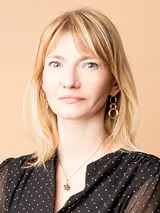
Tatjana Papić ( LL .B. Belgrade, LL .M. Connecticut, PhD Union Belgrade) is a professor of international law at the Union University Belgrade Law School. She teaches courses in public international law, international human rights law, and the European Court of Human Rights. She was a Visiting Professor at the Washington and Lee University School of Law (2013). She is a former Head of Legal Department of the Belgrade Centre for Human Rights. Tatjana received Ron Brown Fellowship and OSI ’s Civil Society Scholar Award. She has published on questions of law of international responsibility, human rights, European Court of Human Rights and domestic reception of international law. Her work has been cited by the UN International Law Commission and the High Court of England and Wales.
Tatjana’s research addresses interactions between international law and domestic politics in post-conflict societies. Specifically, she explores impact of the international dispute settlement mechanisms – both on a dispute as such and on parties in the dispute – by focusing on highly political cases involving the states of the former Yugoslavia. Tatjana is, in particular, interested to see if, how and to what extent these proceedings have affected bilateral relations of the states involved, as well as their internal political dynamics and discourse. This will provide a background against which broader conclusions can be reached on the potential of legal means of settling international disputes in a post-conflict setting.
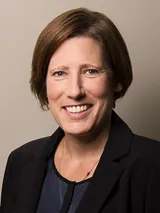
Louise Southalan is a lawyer working in the area of prison and detention health systems and is currently undertaking a Churchill Fellowship examining ways in which national agencies can best support state-based prison and jail mental health services. As part of this travelling fellowship, she is delighted to be spending September at the University of Michigan Law School as a Michigan Grotius Research Scholar.
Louise works in the Western Australian Department of Justice on prison health projects and as a researcher with the Justice Health Unit in the University of Melbourne’s School of Population and Global Health . Her current projects with the University of Melbourne include undertaking a review for the Australian National Mental Health Commission on justice and health policies and strategies at federal and state levels, to identify ways in which they could better meet the mental health needs of justice-involved people. Her previous roles include:
Working for Australian Red Cross monitoring conditions of detention in immigration detention facilities,
In the Western Australian Mental Health Commission , commissioning prison mental health services and developing forensic policy, and
Practicing as a lawyer.
She is very interested in international collaborations involving prison and detention health and would welcome opportunities to collaborate with colleagues from the University of Michigan. Louise is a steering committee member of WEPHREN , the Worldwide Prison Health Research and Engagement Network , a non-executive director of HepatitisWA , and a collaborator on several international justice health projects. She has a law degree and masters degrees in International Development and in Mental Health Policy and Services and is a graduate of the Australian Institute of Company Directors .
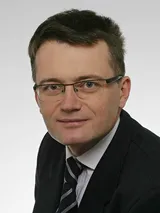
Piotr Tereszkiewicz is a tenured Associate Professor of Private Law at Jagiellonian University in Kraków, Poland, and a Senior Research Affiliate at the University of Leuven, Belgium. After obtaining his PhD at Jagiellonian University and a Magister Juris Degree at University of Oxford, Tereszkiewicz spent several years as a post-doctoral researcher at the University of Heidelberg, working on comparative contract law, funded by German Research Council. At Jagiellonian University, Tereszkiewicz teaches core private law courses (including contracts, torts, succession) as well as international commercial contracts. His published works deal in particular with contract and commercial law, financial services regulation, mostly from a comparative, international and European perspective. Tereszkiewicz held visiting positions among others in Zurich, Ferrara and Bloomington (Mauer School of Law).
Tereszkiewicz’s research analyzes the practice and theory of commercial cooperation between manufacturers and their suppliers and dealers in the automobile industry in the United States and selected European countries. It explores what legal and non-legal (economic, social, cultural) factors determine the content of long-term cooperation between manufacturers and their suppliers and dealers. The central assumption of the study is that an in-depth examination of network governance within the automotive industry should build upon three major perspectives: the economic approach, the sociological approach and the contract law approach. In particular, a profound comparative study of contract law rules dealing with manufacturer-supplier and manufacturer-dealer relationships is undertaken.
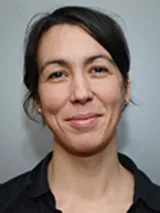
Sina Van den Bogaert, Dr. jur. (2017), Johann Wolfgang Goethe-University (Frankfurt am Main), is a Legal Officer at the European Commission in Brussels, and a voluntary research affiliate at the KU Leuven Centre for Global Governance Studies. She is a former Research Fellow of the Max Planck Institute for Comparative Public Law and International Law in Heidelberg. Her doctoral dissertation on Segregation of Roma Children in Education (Brill Nijhoff: 2018) was awarded magna cum laude. The dissertation examines how the Framework Convention for the Protection of National Minorities (Council of Europe) and the Racial Equality Directive 2000/43/ EC (European Union) have contributed towards desegregation of Roma children in education in Europe. Sina has also published several articles on European Non-discrimination Law.
Sina has been awarded a post-doc Fulbright and BAEF grant to study how US desegregation injunctions can be of inspiration for European judges when they seek to establish a proportionate, dissuasive and effective sanction mechanism in cases of school segregation. She argues that European judges should impose positive desegregation measures on infringers, if the effectiveness of the Racial Equality Directive is to be ensured. She identifies a recent shift in jurisprudence of the Court of Justice of the European Union towards ‘effective judicial protection’ for practicing rights derived from EU law, to the detriment of procedural autonomy of the EU Member States. She will focus on two intertwined developments: tackling domestic obstacles to effective enforcement and the possible creation of remedies otherwise unavailable in domestic law, based on the notion of ‘effectiveness’ and on Article 47 of the EU Charter of Fundamental Rights.
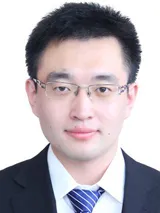
Wang Qi is a Ph.D. candidate at the School of Law of Renmin University of China ( RUC ). He studies commercial law as his major and works as a research assistant in the Research Center of Civil and Commercial Jurisprudence of RUC , which is funded by the Ministry of Education of China. Wang Qi received his master’s degree from RUC and bachelor’s degree from Wuhan University both in law. He was awarded the “Outstanding Graduate” by the Beijing Municipal Education Commission in 2017. He has been awarded a scholarship under the China Scholarship Council ( CSC ) to pursue study at the University of Michigan Law School. Wang Qi has participated in several research projects, including “The Theory and Practice of Dual-Class Share Structure”, “The Institutional Structure of the Initial Compensation of Sponsors”, and “The Regulation of Securities Investor Protection”. He has published a number of academic papers in numerous Chinese journals.
Wang’s research focuses on the securities investor protection in China. He chose to study this issue, because minority investors constitute the main body of China’s capital markets; therefore, the protection of their interests is closely related to the effective operation of the stock markets. By comparing the investor protection systems between China and the US , he analyzes the institutional deficiencies of investor protection in China based upon China’s Securities Law Amendment and the reform of the registration-based IPO system at the Shanghai Stock Exchange. He is exploring the approaches to improve the investor protection system in China.
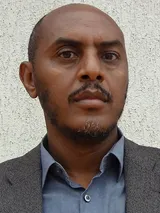
Dr. Tadesse Kassa Woldetsadik is an Associate Professor of International Law and Human Rights at Addis Ababa University (Ethiopia) and Principal Advisor to the Ethiopian Investment Commission on Investment Policy and Jobs Compact. He was a Visiting Scholar at the Xiangtan University (China), Martin Luther University of Halle Wittenberg (Germany) and Fulbright Visiting Scholar at the UC Berkeley. He has published a book titled International Watercourses Law in the Nile Basin, Three States at a Crossroads (Routledge, Oxfordshire 2013) and co-authored edited books including Ethiopian-African Perspectives on Human Rights and Good Governance ( NWV Pub., Graz, Austria 2014). He is deeply involved in the drafting of national investment, industrial park, CRRF and refugee related laws and policies in Ethiopia, and has extensively published articles, book chapters and policy briefs on refugee law, human rights, labor rights and legal aspects of Ethiopian foreign policy.
Tadesse’s research focuses on the fast-evolving refugee law and policy setting in Ethiopia. It addresses lingering issues relating to legal frameworks, institutional response mechanisms, challenges and opportunities in the implementation of the new refugee policy and the Comprehensive Refugee Response Framework in Ethiopia. Specifically, the research analyzes what the new normative and institutional responses on refugees imply in terms of the rights of refugees recognized under international instruments and whether such approaches represent sustainable solutions.

Andrew Woodhouse is a lecturer in law at the University of Liverpool and co-director of the EU Law @ Liverpool research unit. Andrew received his PhD in EU law from the University of Liverpool with no corrections. He has engaged with a number of European universities, co-organizing a transnational PhD colloquium with the Universities of Leiden and Oslo and spending time as a visiting researcher at the University of Antwerp. He has taught and lectured on courses in EU law, UK constitutional law and comparative constitutional law. As part of the EU Law @ Liverpool research unit, Andrew has helped to shape the debate on the UK ’s withdrawal from the European Union. This has included engaging with governmental actors, as well as contributing to the public debate through national ( LBC ) and international media ( Yahoo ).
Andrew’s research interests lie in the area of constitutional law and theory. His PhD research focused on the role of national parliaments in the European Union assessing the limits of national representative democracy in a multi-level governance framework. His work on the potential for judicial review of national parliamentary action in the EU legislative process was published in the Common Market Law Review . Andrew will continue to explore the role of national parliaments in the European Union as a Michigan Grotius Scholar, reflecting on the extent to which they are being instrumentalized in the EU . In particular, he will ask whether the symbolism of national parliaments is being used by a range of national and European actors in pursuit of political ends.
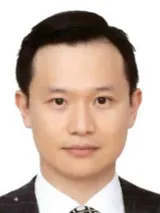
Junseok Yoon has been a judge of the Supreme Court of the Republic of Korea for seven years. He has obtained a Master of Laws degree from and has completed Ph.D. coursework in tax law at Seoul National University School of Law. He is also a member of the International Association of Tax Judges and the International Fiscal Association. He has published articles and given presentations on tax issues, such as “Tax Statutory Interpretation in Law and Economic View“, “A Study on Notification on Changes in Amount of Income”, “Requirements of Acquisition Tax Exemption on Real Estate for Religious Organizations”, “Commercial and Tax Accounting in Korea” and “Withholding Tax on Domestic Source Income”. Since he has been interested in and conducted research on other legal issues as well as tax issues, he participated in the WIPO IGC 35th Session and UNCITRAL Working Group 3 ( ISDS Reforms) 37th session as a member of a Korean Delegation. He is also a member of the Task-Force Team for Judicial Support for the Disabled.
Junseok’s main research topic is “Prevention of Treaty Abuse and Limitation on Benefits of U.S. Model Income Convention”. He argues that in light of the substantial interaction between Korea and the United States, they might agree to revise the current income tax treaty and align their agreement with contemporary international tax policy on the prevention of treaty abuse. Because there have been few studies on the Korean Supreme Court’s Decision on LOB provision or comprehensive LOB in Korea, his research on the LOB provision will serve as valuable guidance for both judges and researchers.
Also of Interest

IMAGES
VIDEO
COMMENTS
The Coordinated JD/PhD Program is designed for students interested in completing interdisciplinary work at Harvard University and is founded on the belief that students' legal studies and their arts and sciences graduate studies can be mutually enriched through this pursuit. Students completing the coordinated program receive a JD from ...
The JD/PhD Combined Degree Program prepares students to conduct innovative research on law at the cross section of disciplines. Recognizing that a growing trend among top law schools is to hire faculty who have PhDs as well as law degrees, Northwestern offers the most efficient, cohesive, and affordable option for future academics wishing to ...
New York University School of Law (Law) and Graduate School of Arts and Science (GSAS) offer coordinated dual degree programs leading to a Juris Doctor (JD) and either a PhD or MA degree in two Arts and Science disciplines: Economics. Politics. Law and GSAS also offer dual degree programs leading to a JD and MA in the following disciplines:
JD-PhD. Northwestern's JD-PhD program is open to students who intend to pursue an academic or research career and whose teaching and research will be enriched by both degrees. The program is designed to allow students to complete both degrees more effectively than they would through consecutive degree programs.
The Graduate School of Arts and Sciences and Columbia Law School cooperate in offering combined programs of study leading to the JD degree and the sequential MA, MPhil, and PhD degrees in less time than would be required if each program were pursued separately. GSAS does not offer a JD/PhD dual-degree program with any other university.
A JD may not be qualified to practice law, as they will become a JD before they take the bar exam. However, you do not need a JD to take the bar exam. A Juris Doctor degree is technically a professional doctorate. But unlike other Ph. D. holders, lawyers don't hold the title of "Doctor.". Instead, they can.
Juris Doctor diploma conferred by Columbia Law School. A Juris Doctor, Doctor of Jurisprudence, or Doctor of Law (JD) is a graduate-entry professional degree that primarily prepares individuals to practice law.In the United States, it is the only qualifying law degree, while other jurisdictions, such as Australia, Canada, and Hong Kong, offer both JD degrees and undergraduate qualifying law ...
Coordinated JD/PhD program. The Harvard Kenneth C. Griffin Graduate School of Arts and Sciences is a leading institution of graduate study, offering PhD and select master's degrees as well as opportunities to study without pursuing a degree as a visiting student. Harvard University.
Students pursuing a JD/PhD in law and psychology generally go on to academic careers in law schools, psychology departments, policy jobs, and think tanks. However, issues pursued through this joint degree program are also highly relevant to legal practice. Every day, litigators and negotiators make strategic decisions based on accounts of human ...
JD/PhD Psychology. The JD/PhD Program is an in-depth, cross disciplinary path designed to expose lawyers and psychologists to the growing number of issues that involve both fields, such as competence, mental illness, and incapacity, and the field of behavioral law and economics. Program Course Overview. Financial Aid.
No, a JD is not equivalent to a PhD. PhDs require research, independent study, and thesis components that JDs do not. While PhD holders are considered doctors, JD holders are not. 3. Is a JD the Same as a Bachelor's Degree? No, a JD is much more extensive than a bachelor's degree. A bachelor's degree is a prerequisite to a JD.
The Juris Doctor degree-or J.D. for short-is a graduate degree awarded by law schools in the United States. A Juris Doctor is technically a Doctor of Jurisprudence just as an MD is a Doctor of Medicine or a PhD is a Doctor of Philosophy. In order to become a licensed attorney in most states, an applicant must graduate from an accredited law ...
Juris Doctor - JD: A Juris Doctor degree, or JD, is a law degree in the United States that was originally designed as a replacement to the Bachelor of Laws (LL.B) degree. A Juris Doctor or Juris ...
The first law school in Southern California and among the most distinguished nationwide, the USC Gould School of Law is committed to providing a legal education that trains tomorrow's leaders in law and society. USC Gould's Juris Doctor (JD) degree program prepares students to pursue their passions and launch meaningful careers across legal ...
The Juris Doctor (JD) degree at ASU's Sandra Day O'Connor College of Law is a three-year full-time program that incorporates practical learning and experiences. ... (MSW), Master of Sports Law and Business (MSLB), or a PhD in Justice Studies. Mayo Clinic School of Medicine students also have an opportunity to pursue a dual JD/MD degree ...
Specialized J.D. Programs. Business and Tax Law. Environmental, Energy and Land Use Law. International Law. The College of Law's three-year curriculum for the Juris Doctor degree begins with traditional courses and expands to include the latest in theoretical and interdisciplinary analyses.
Experience a Transformative Legal Education. Pepperdine Caruso School of Law awards the Juris Doctor (JD) degree after the successful completion of 88 units of course work which includes the completion of the upper-division writing requirement, the upper-division skills requirement, the experiential learning requirement, along with other requirements.
Juris Doctor (J.D.) Degree. At the University of Idaho College of Law, the Juris Doctor degree is a three-year program in which you work closely with faculty experts from a variety of backgrounds and with many decades of experience. In thinking about studying law close to home, students have the option to complete all three years in either ...
The Drexel University JD/PhD program in Law and Clinical Psychology is a cross-disciplinary course of study that combines the juris doctorate (JD) degree offered by the Thomas R. Kline School of Law with the doctoral (PhD) degree in Clinical Psychology offered by the Department of Psychological and Brain Sciences in the College of Arts and Sciences. . Students are simultaneously enrolled in ...
University of Arizona Law provides an outstanding legal education at a cost lower than private law schools and many public university law schools, particularly those of comparable quality. Our robust scholarship program reduces the cost of law school even further, and you will be automatically considered for scholarships when you apply.
Fast Facts. Comprehensive emphasis areas of study in Business Law & Entrepreneurship, Native American Law, Natural Resources & Environmental Law, and Litigation and Alternative Dispute Resolution. Innovative second and third year in Boise. Nationally recognized experiential clinic, semester in practice, and externship programs.
Here's a breakdown of tuition rates (all figures are based on out-of-state tuition). $17,580 is the most affordable PhD program option and it is available at the Georgia Institute of Technology. $86,833 is the average cost of a cybersecurity PhD and is based on tuition rates from all 26 schools.
She graduated from Waseda Law School with a Juris Doctor degree. After she passed the Japanese Bar Exam, she was appointed Public Prosecutor in December 2017 and has been working at the Sapporo District Public Prosecutors Office since 2023. ... His PhD project ("Self-Judgment in International Law") investigates to what extent states can ...